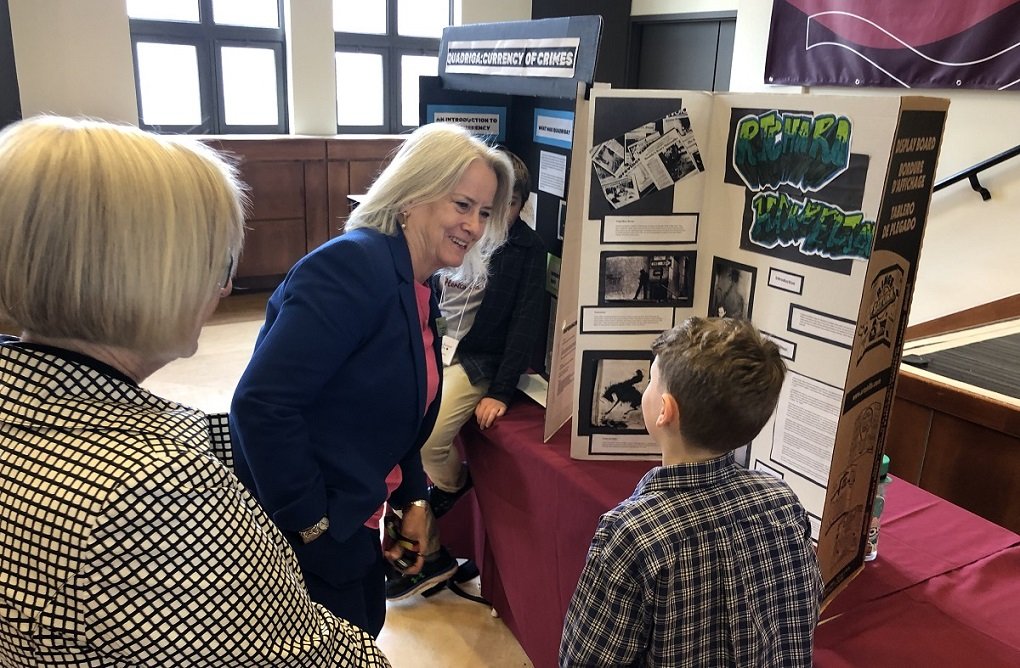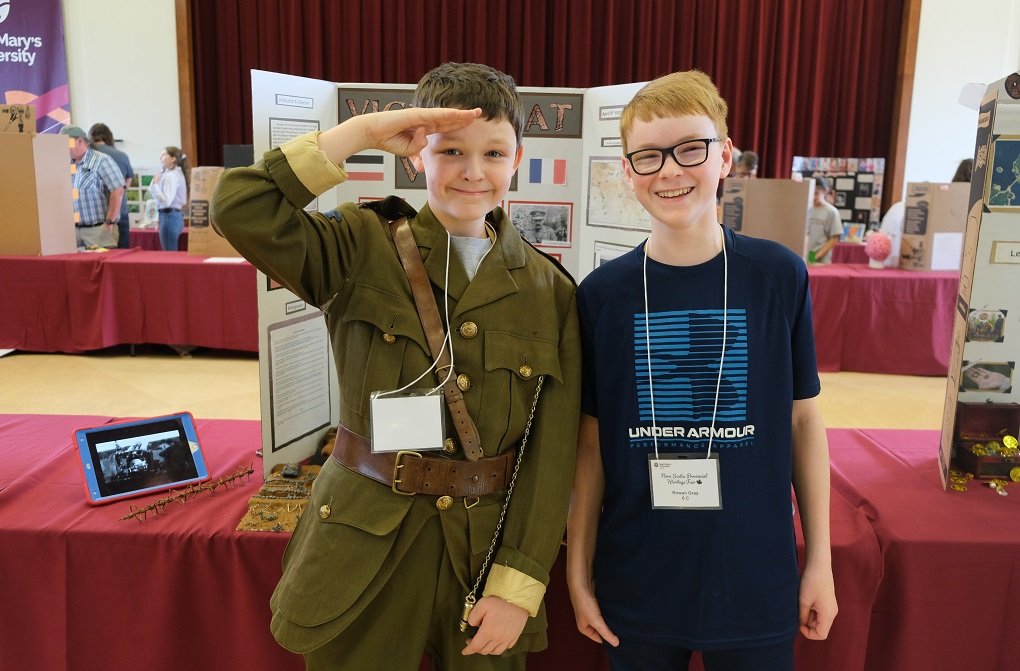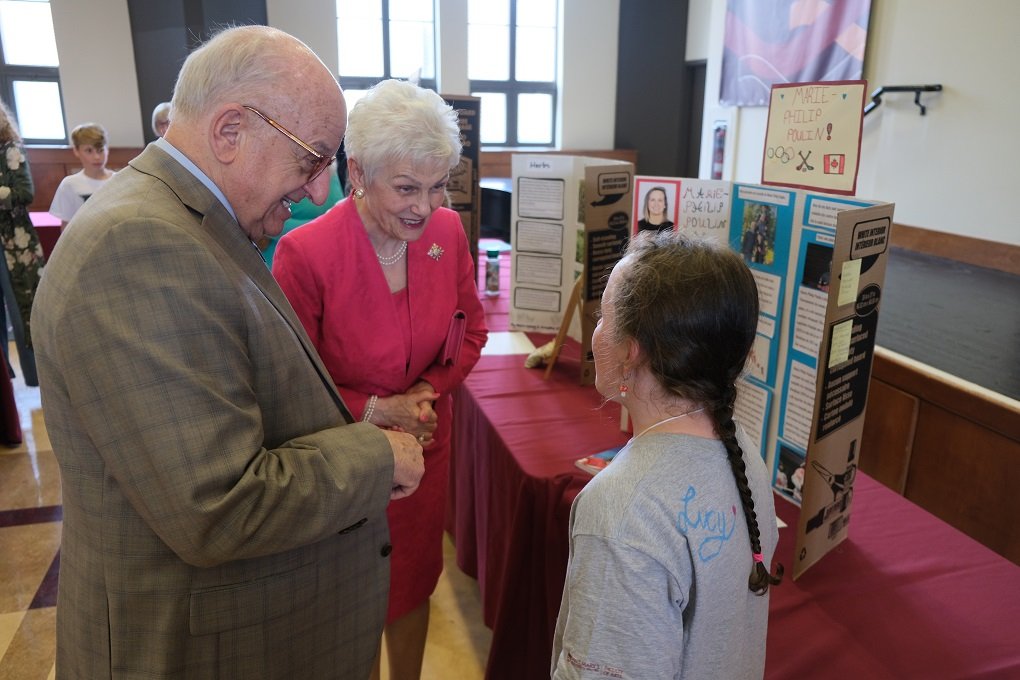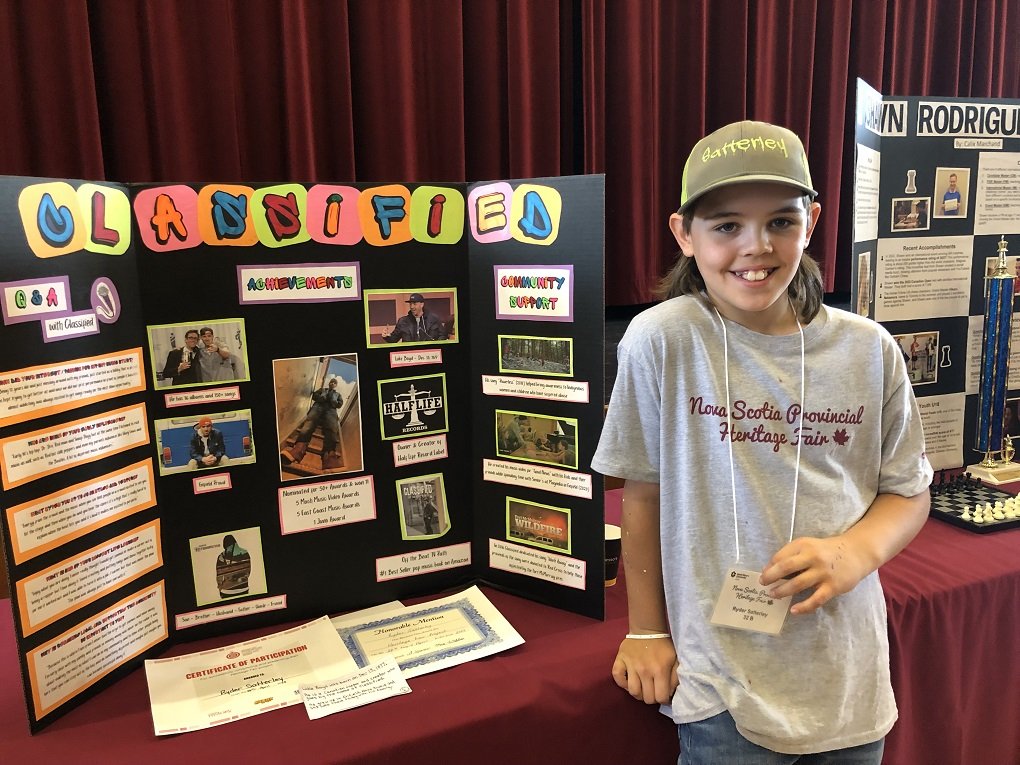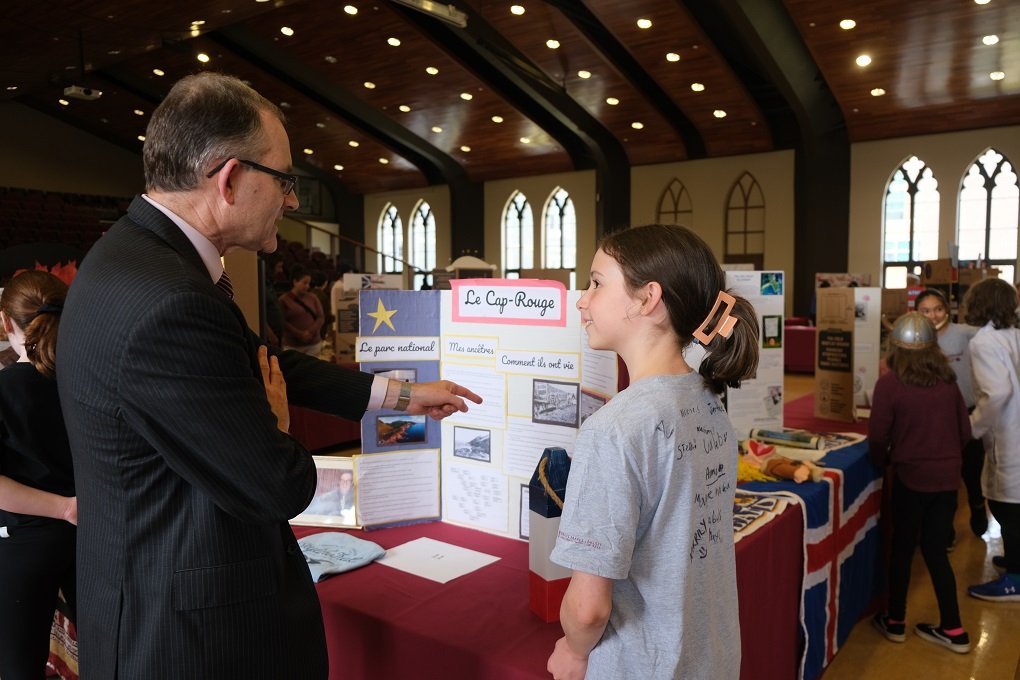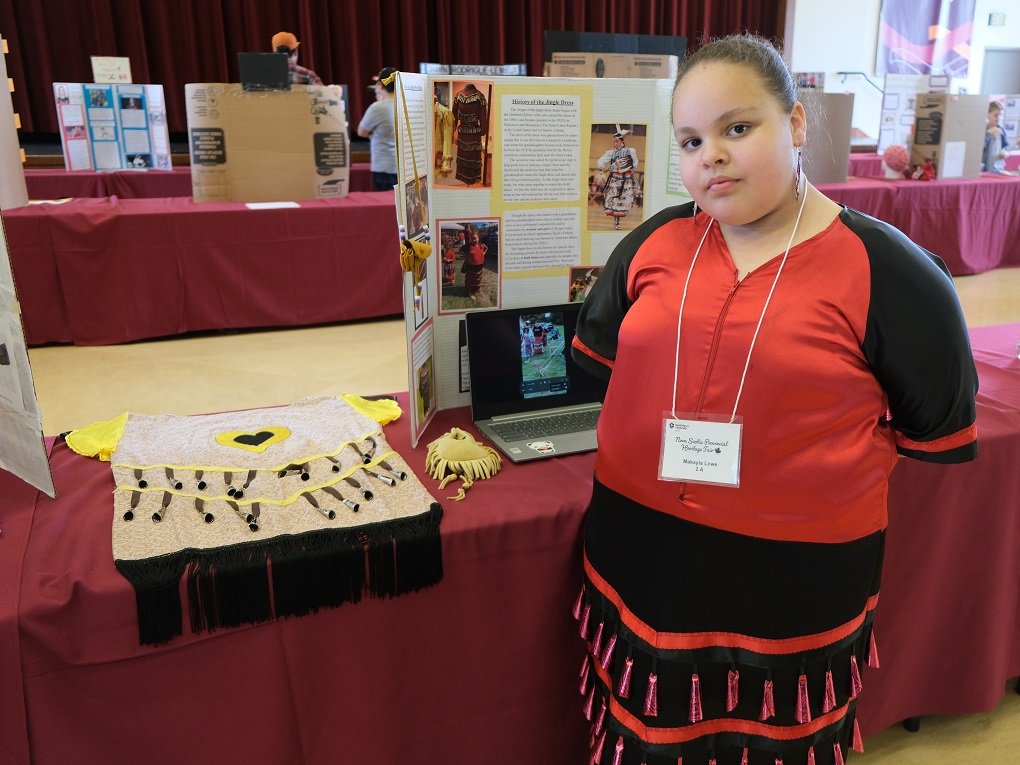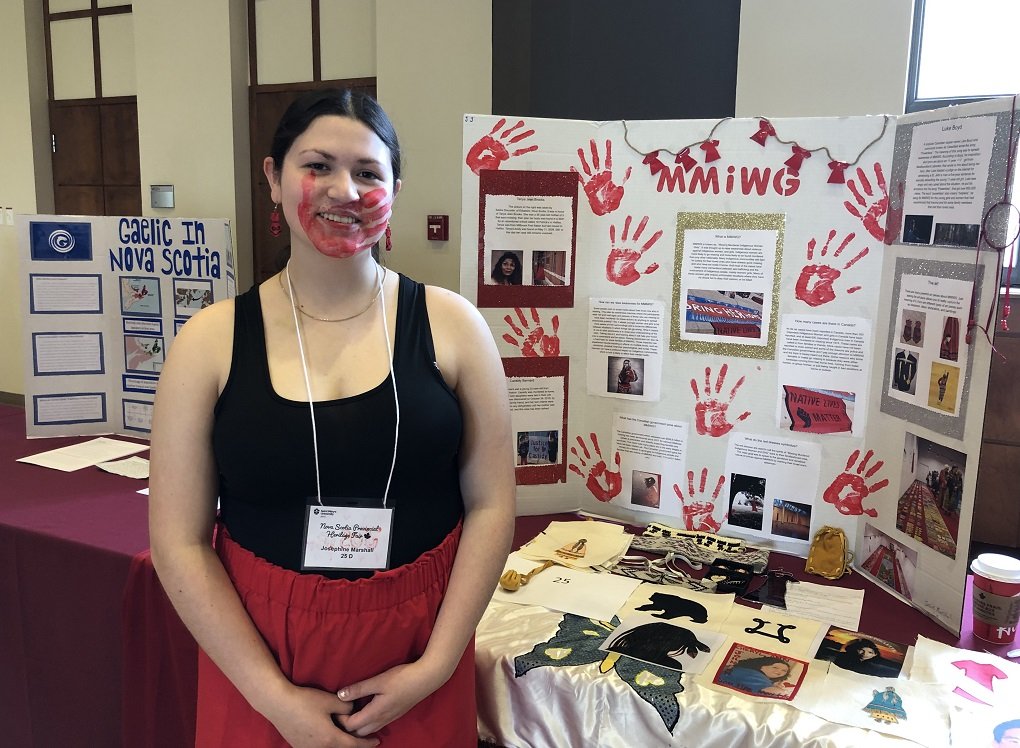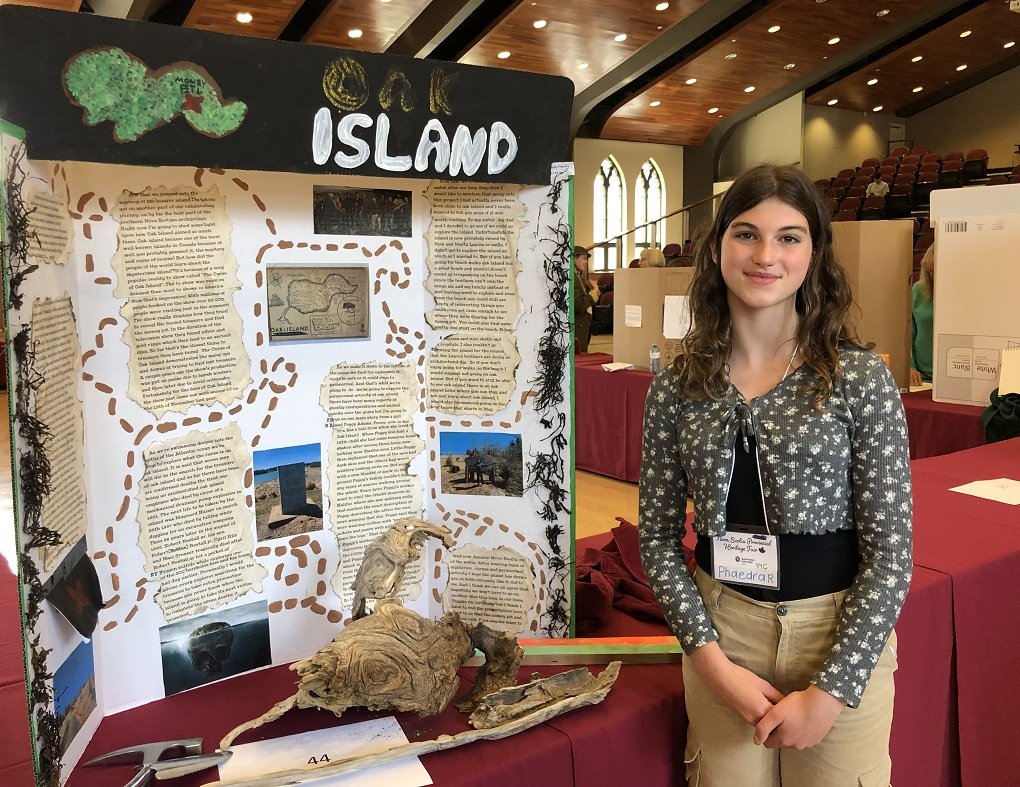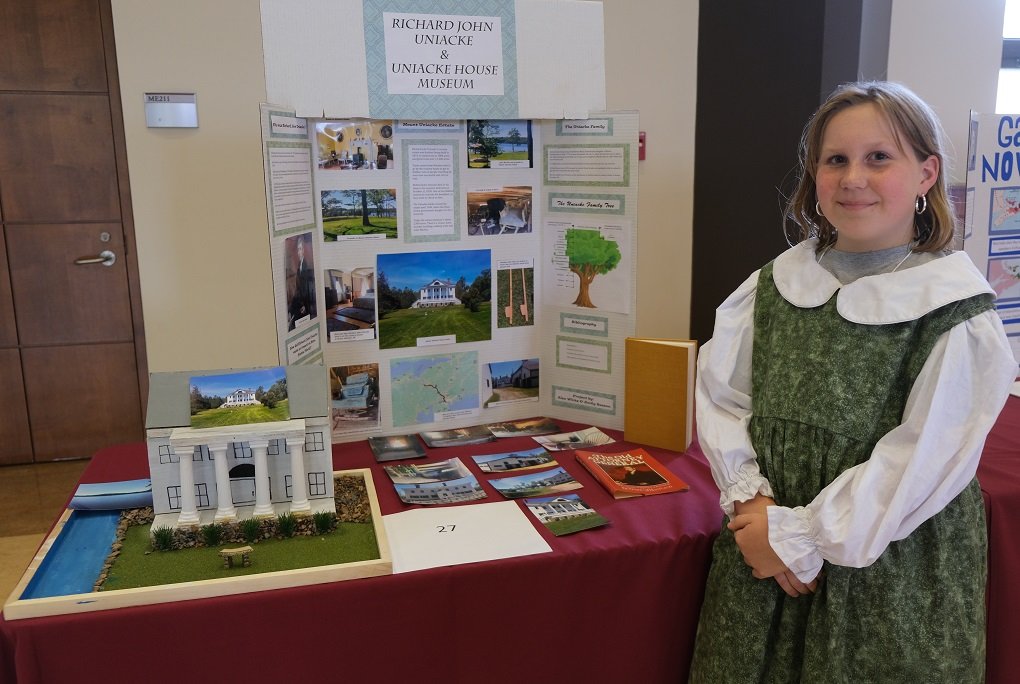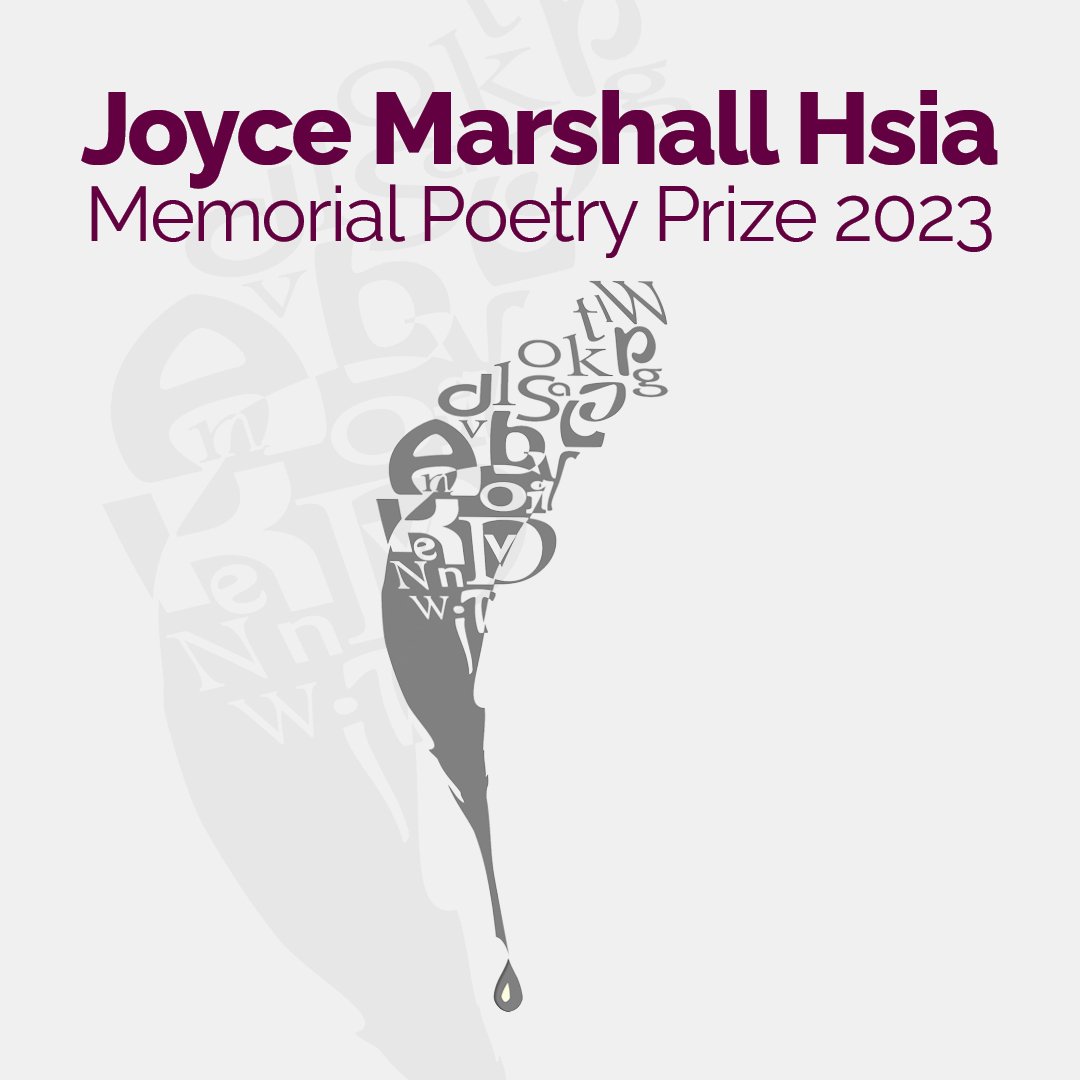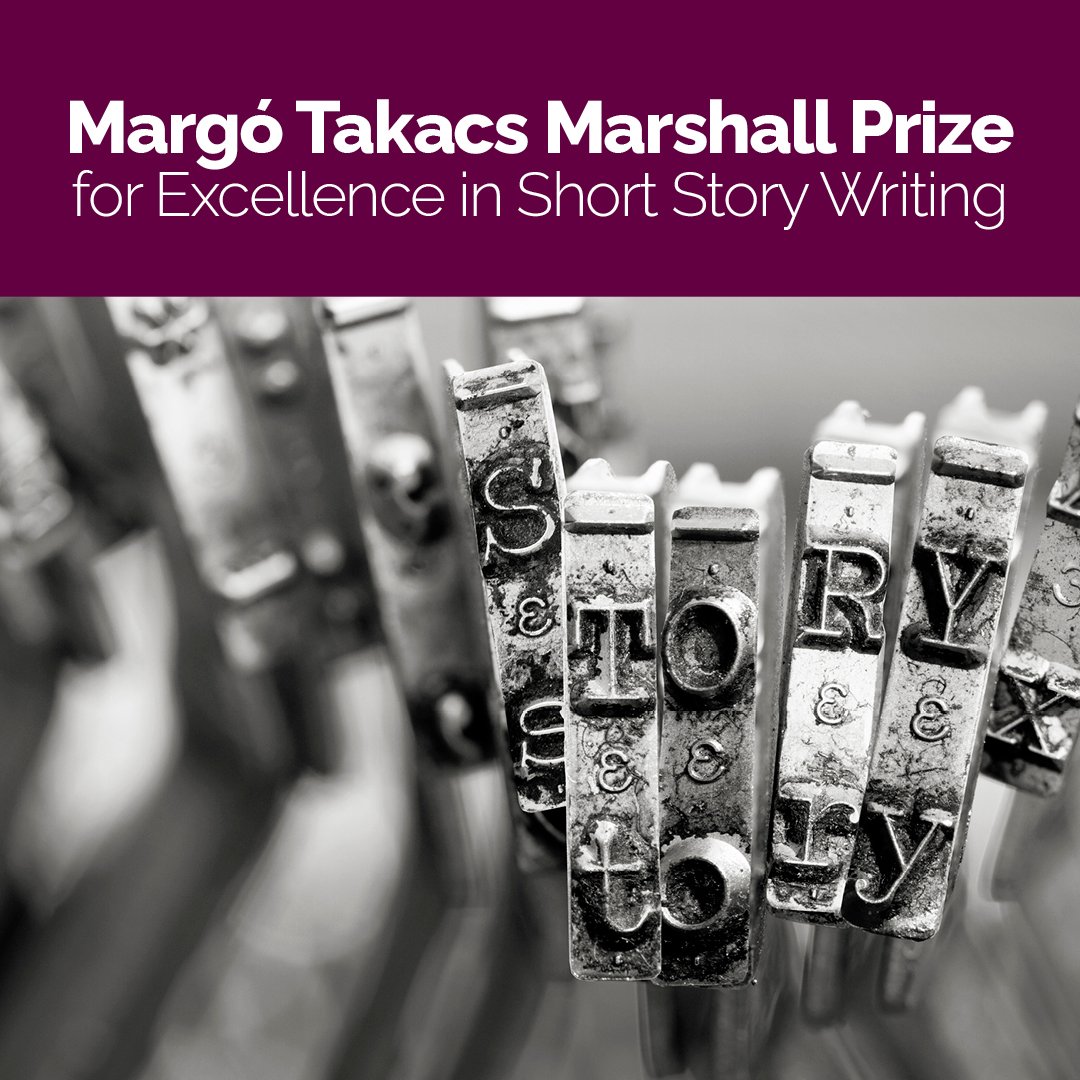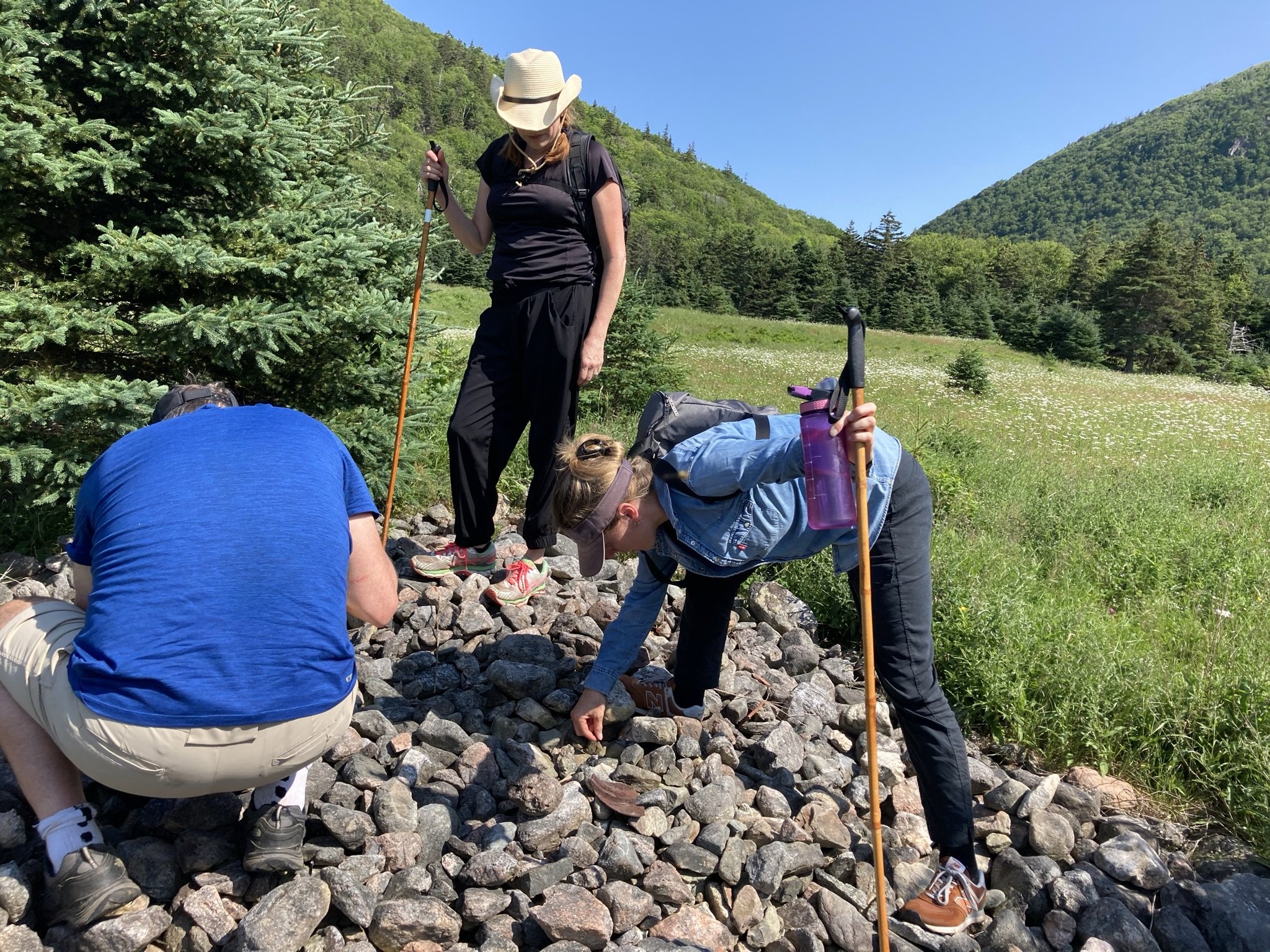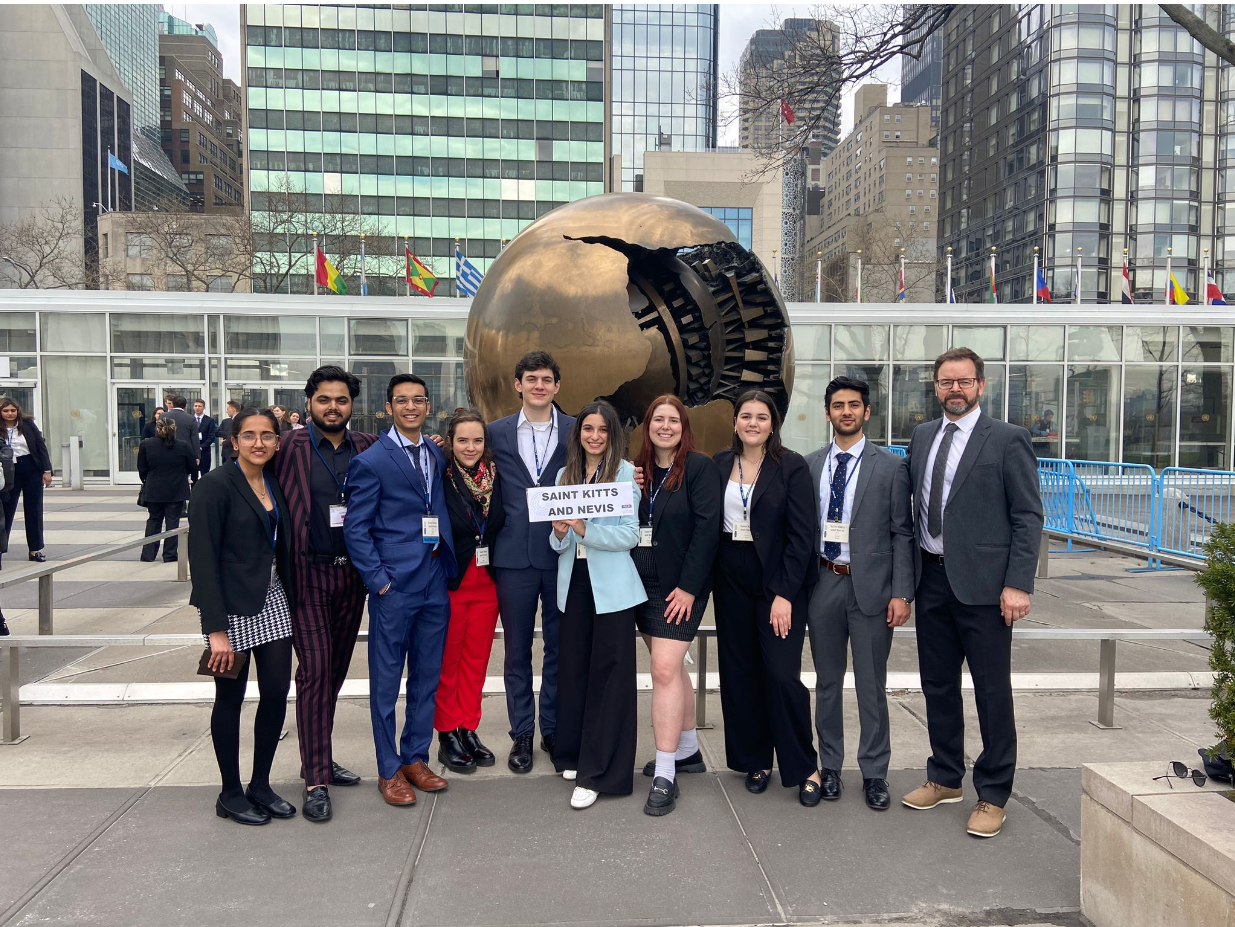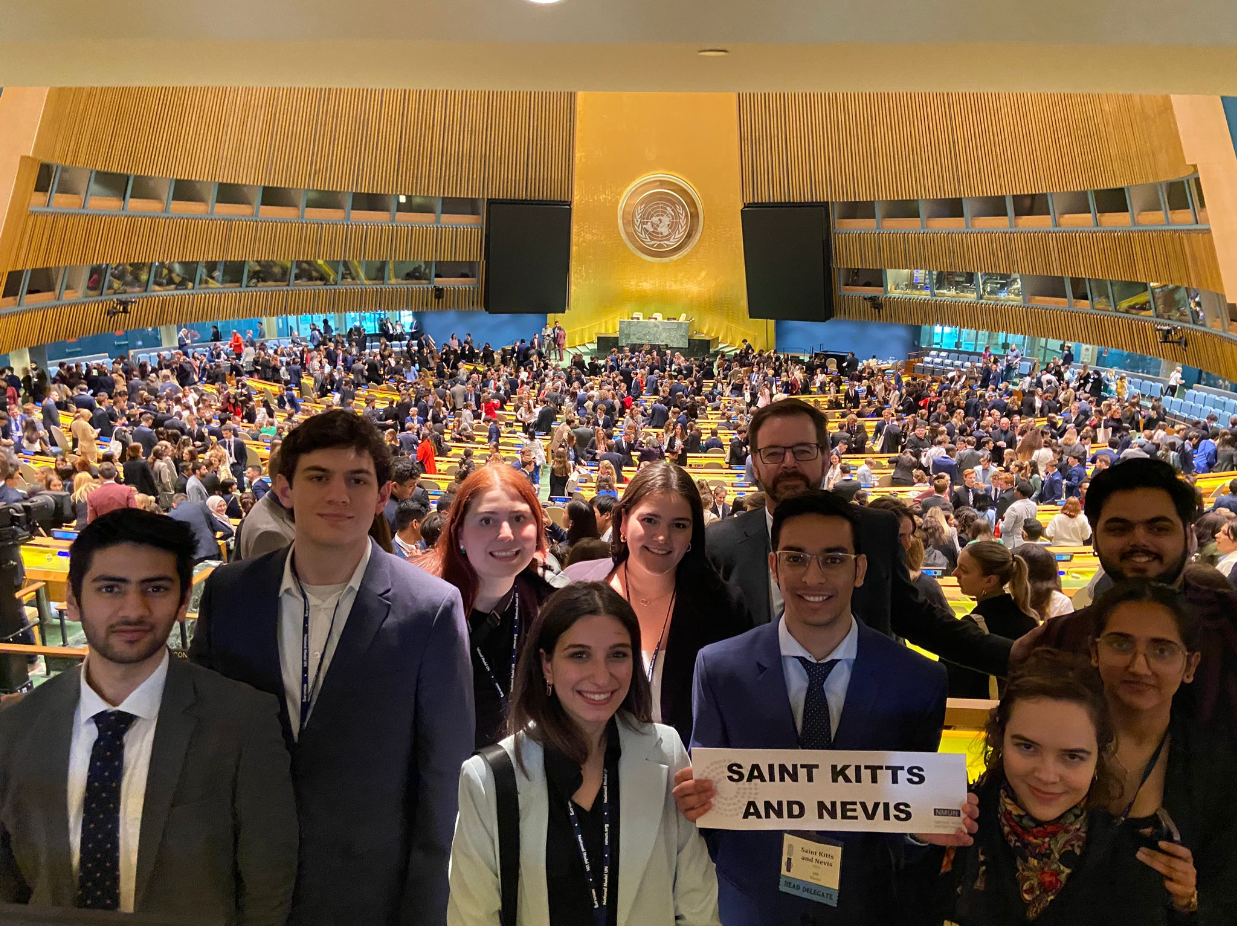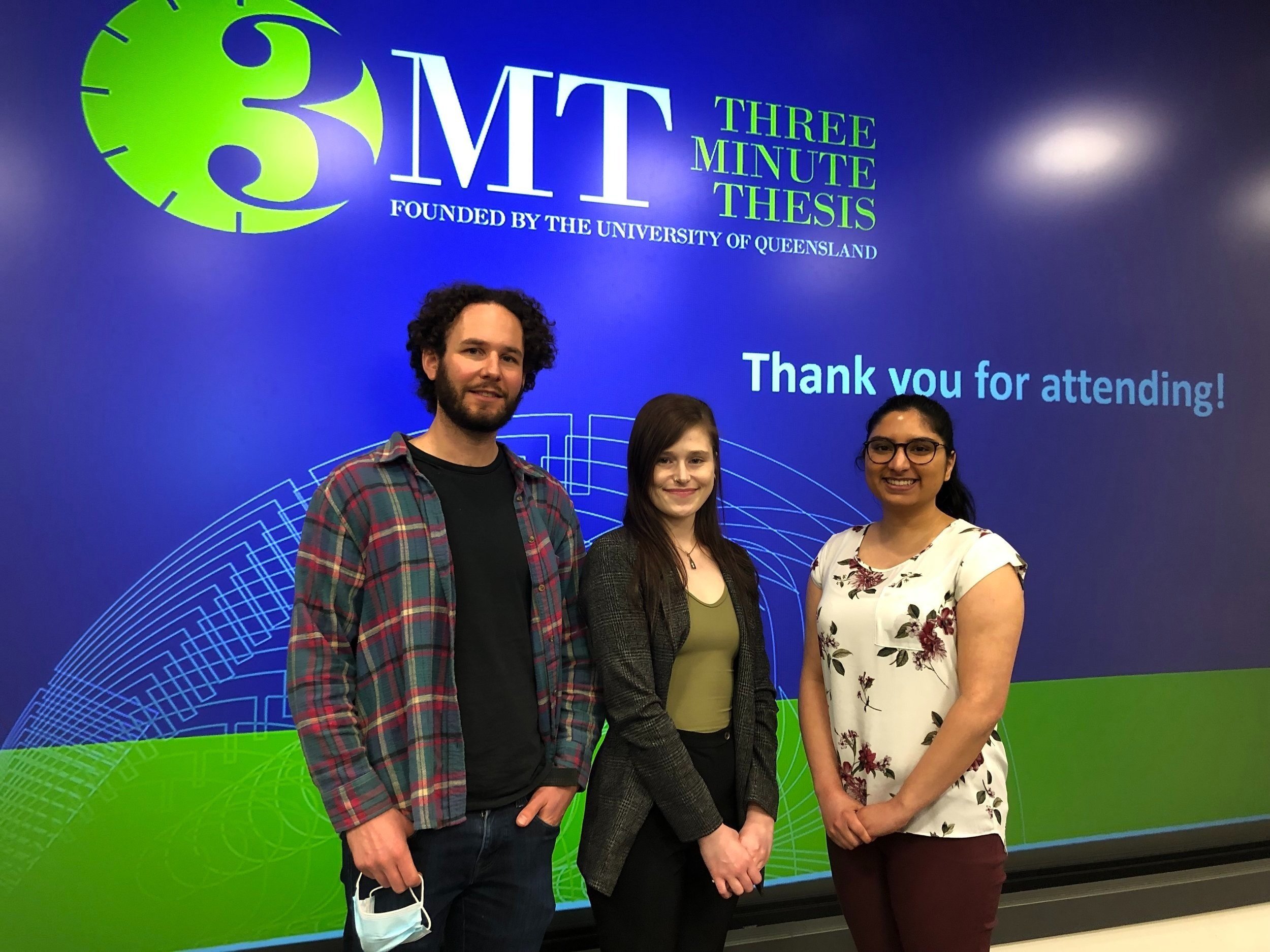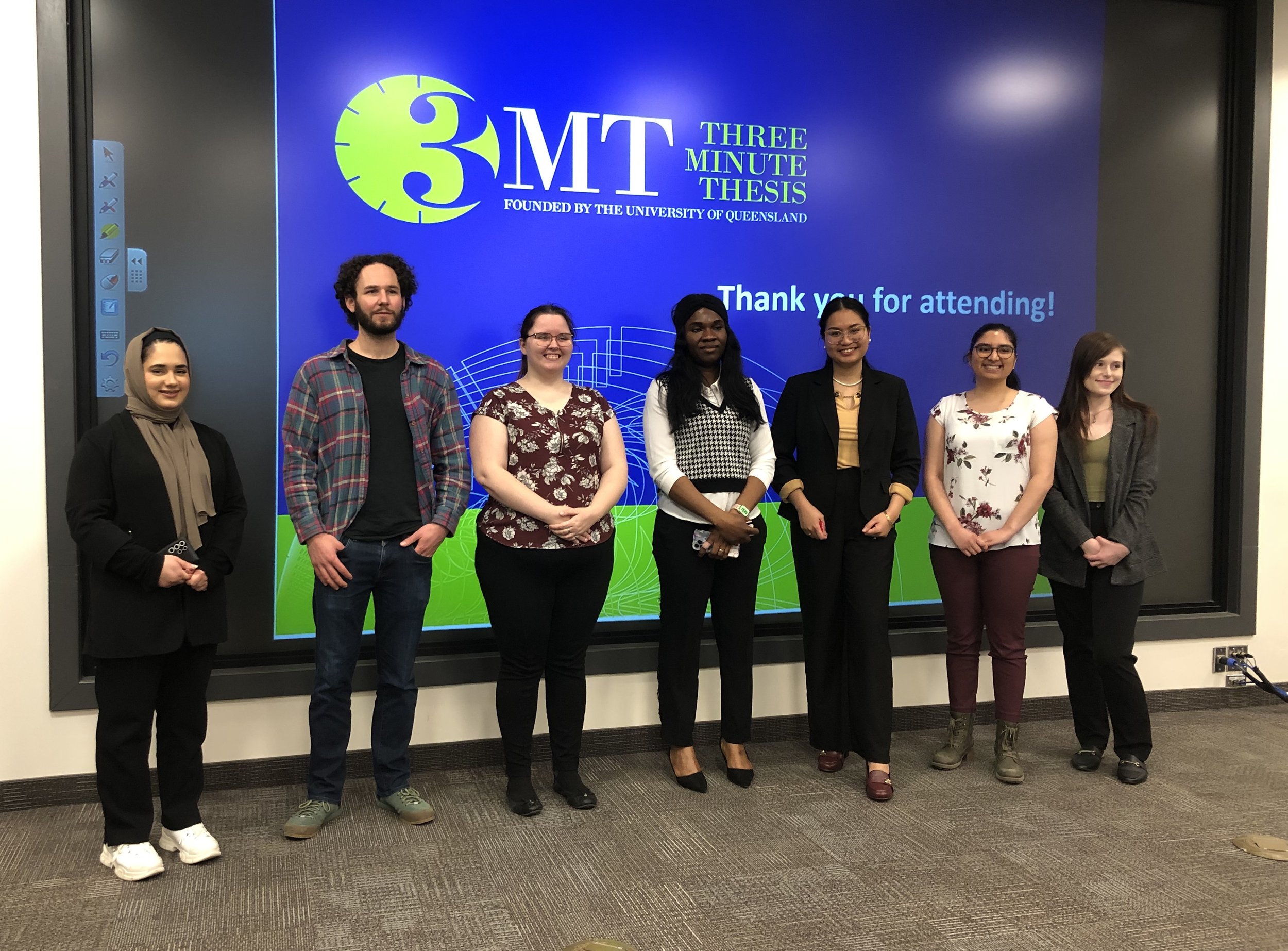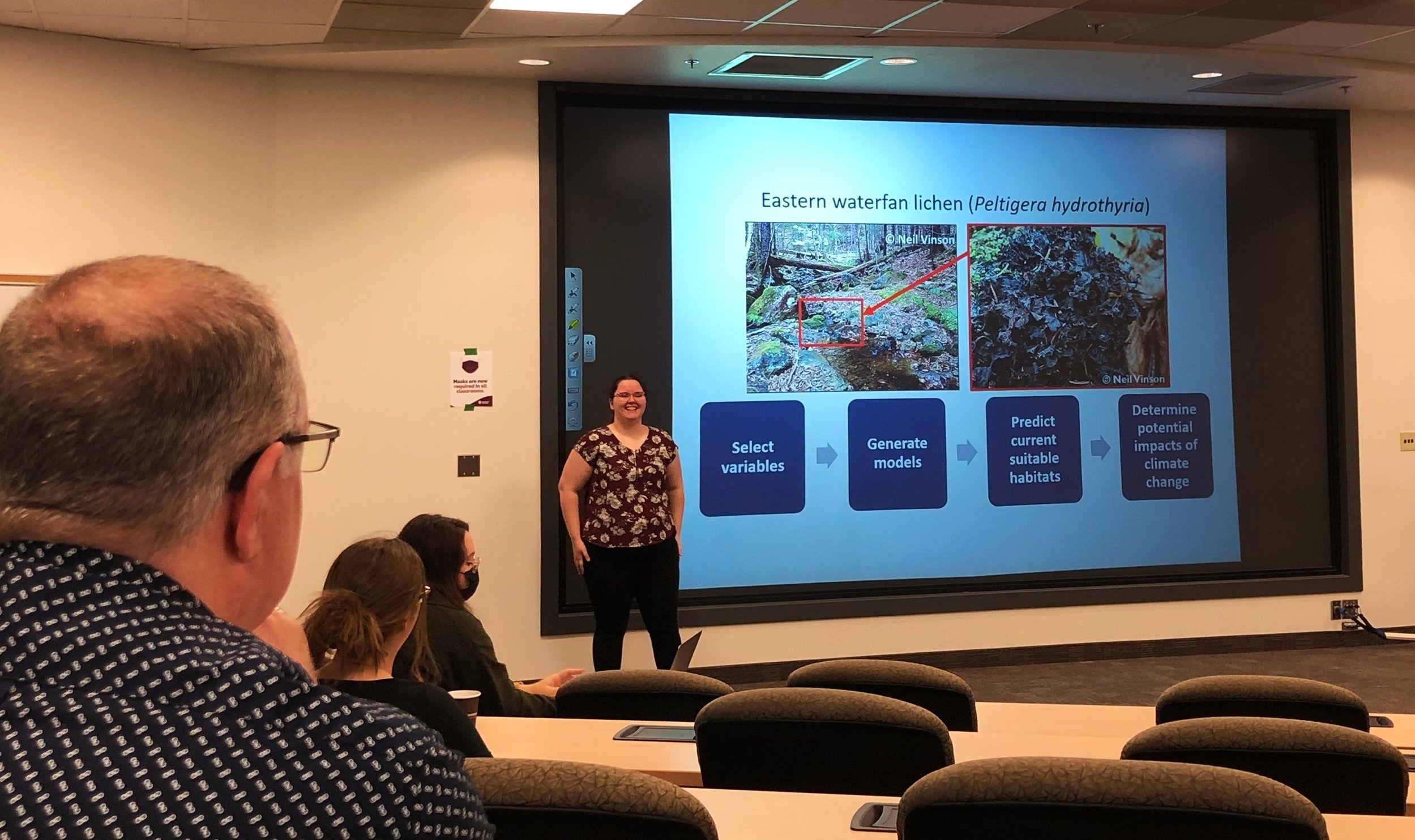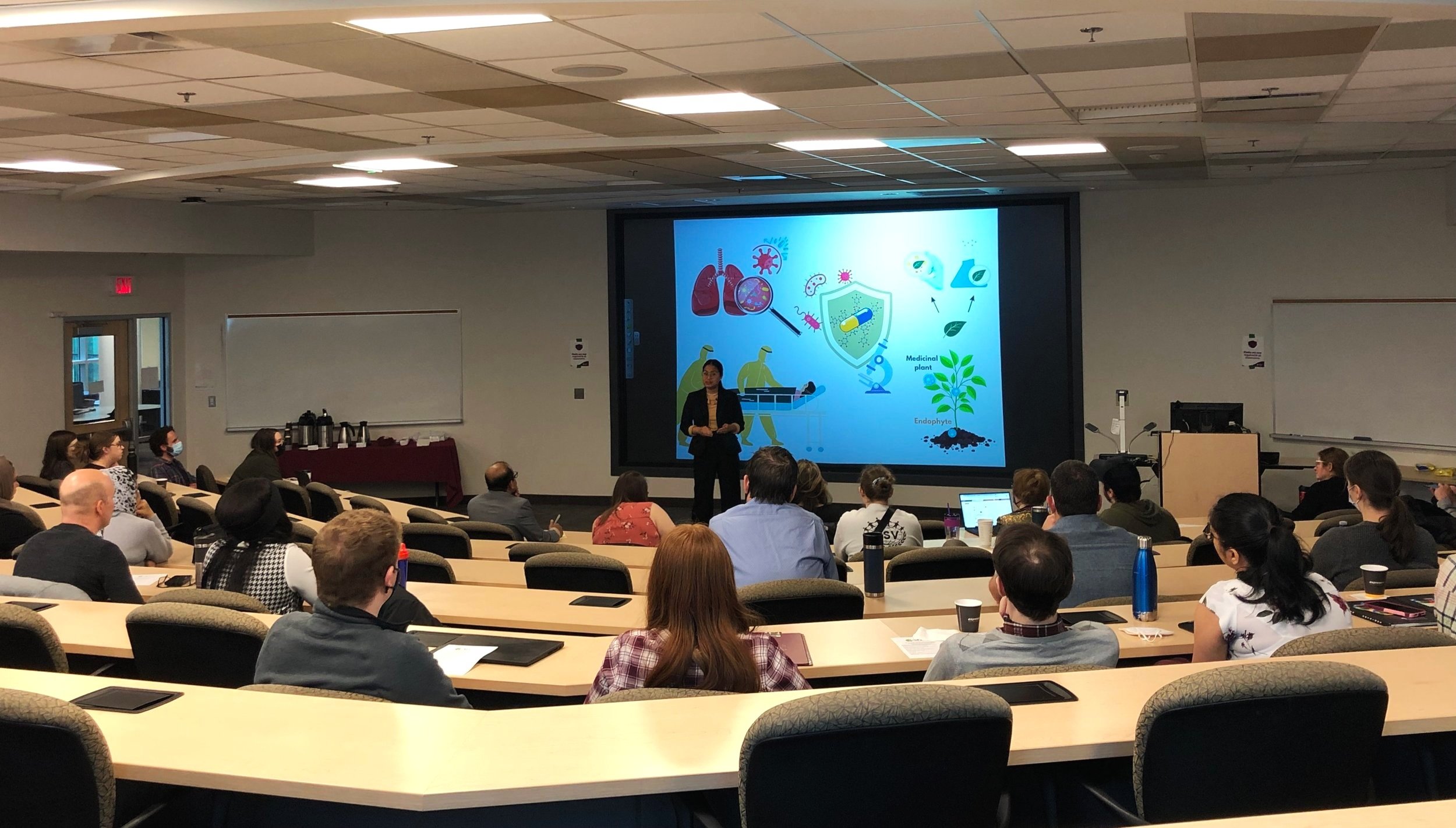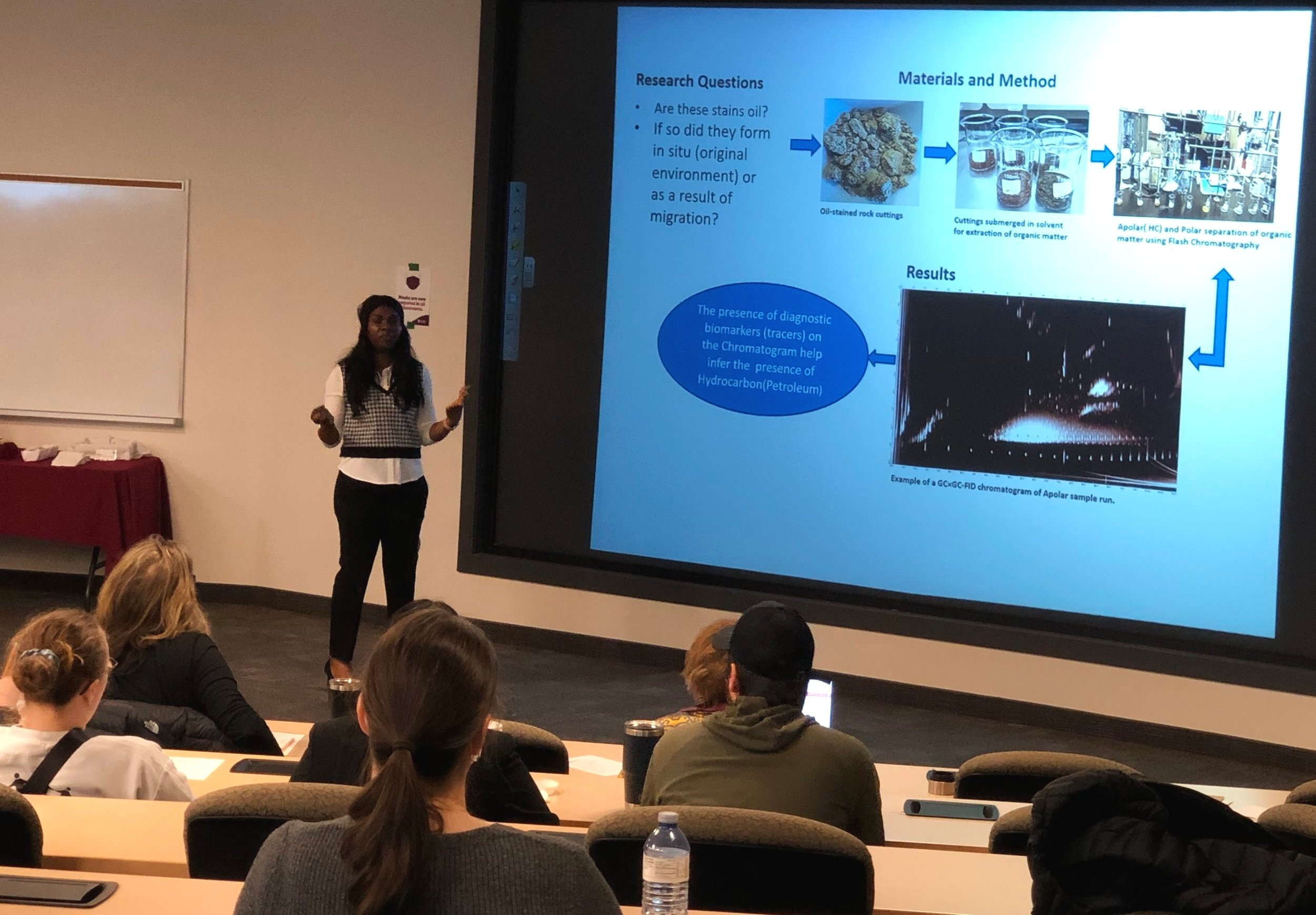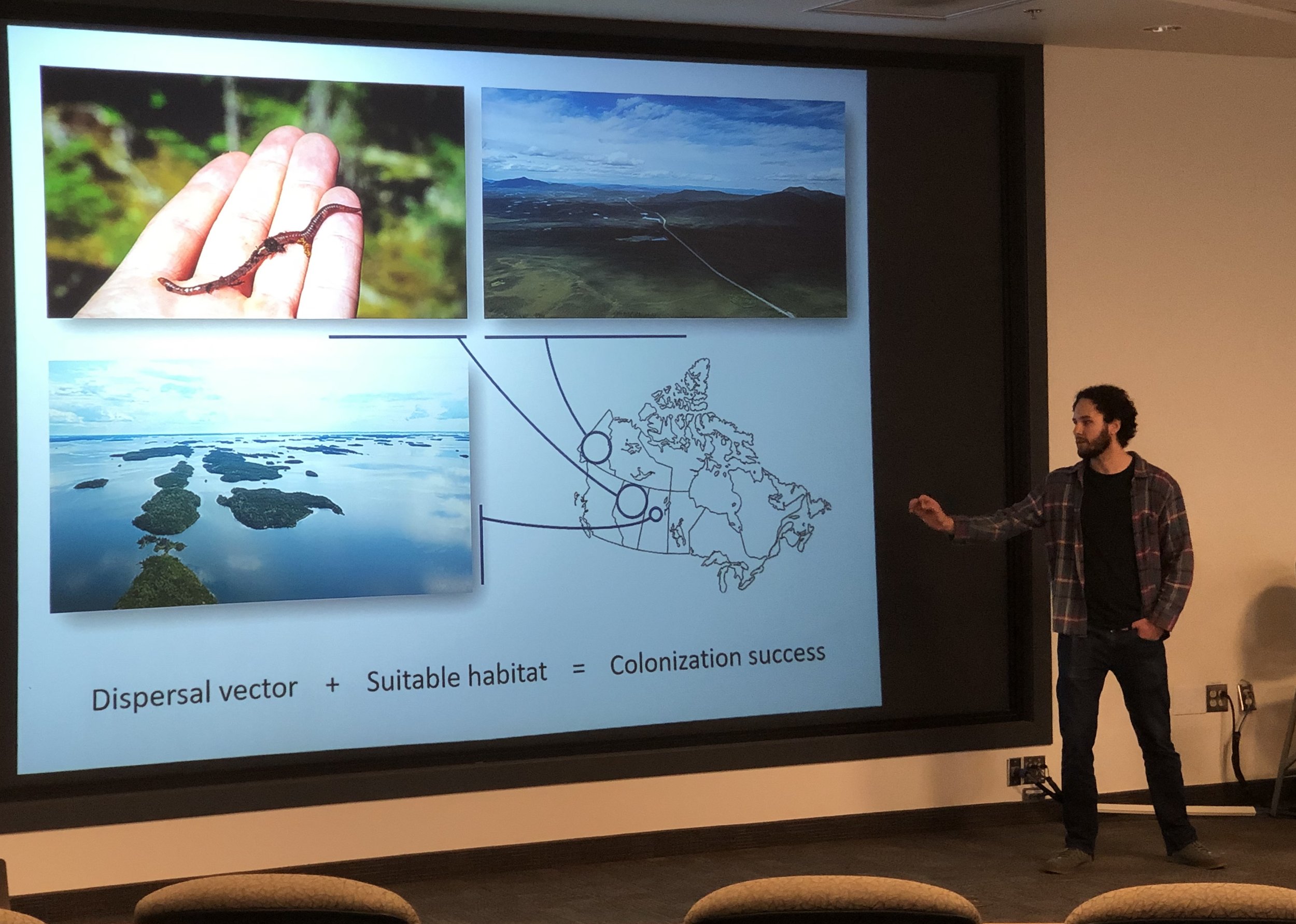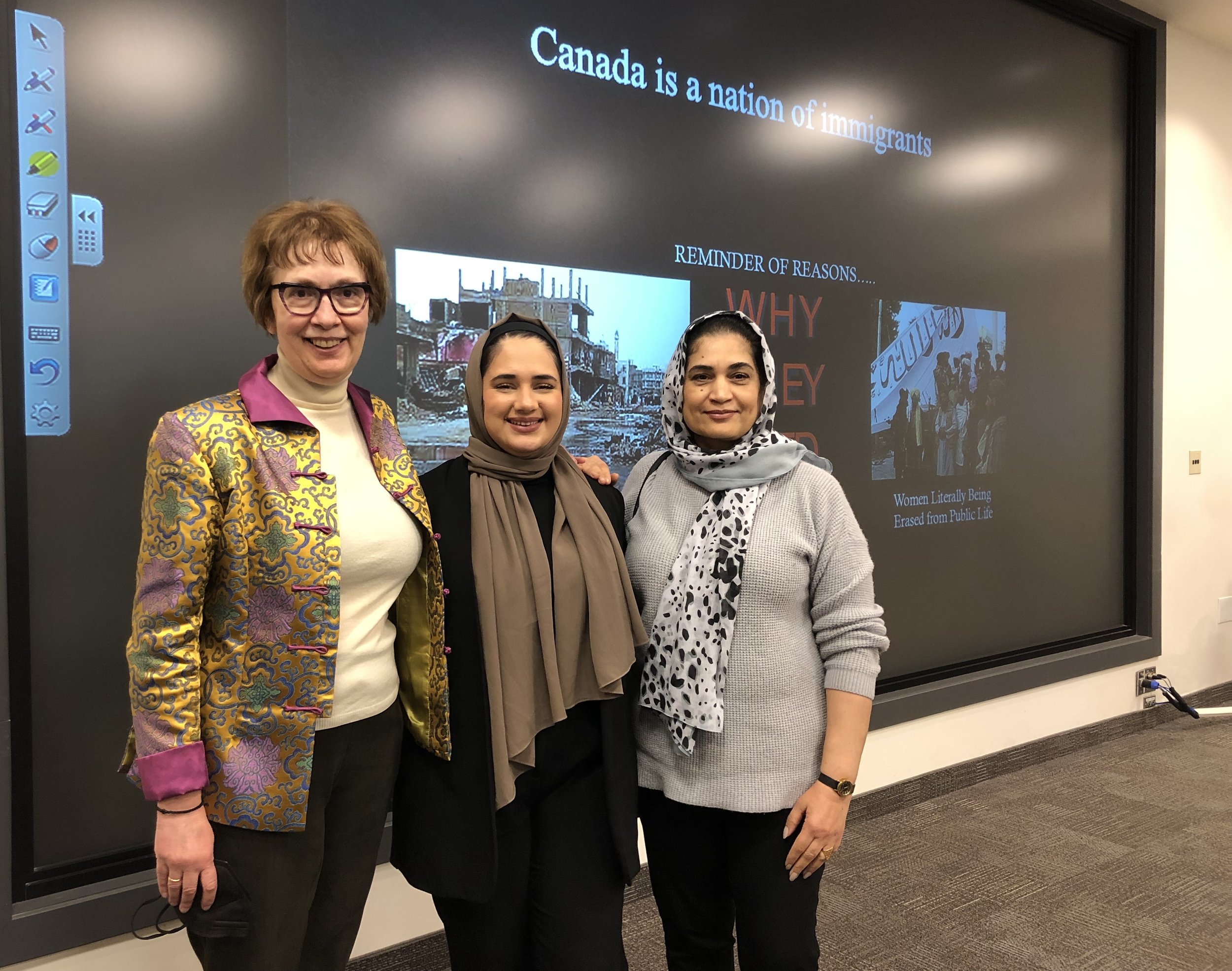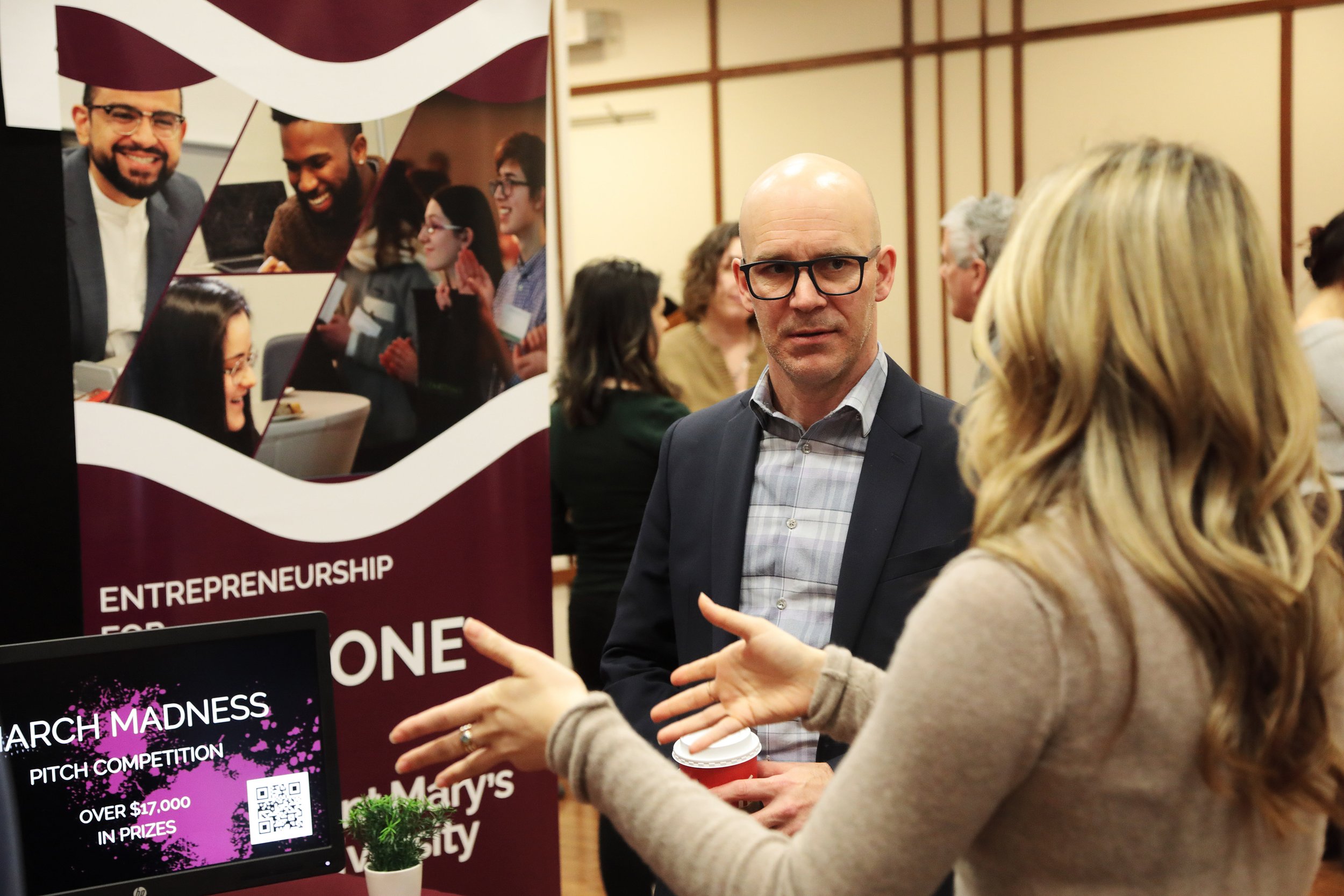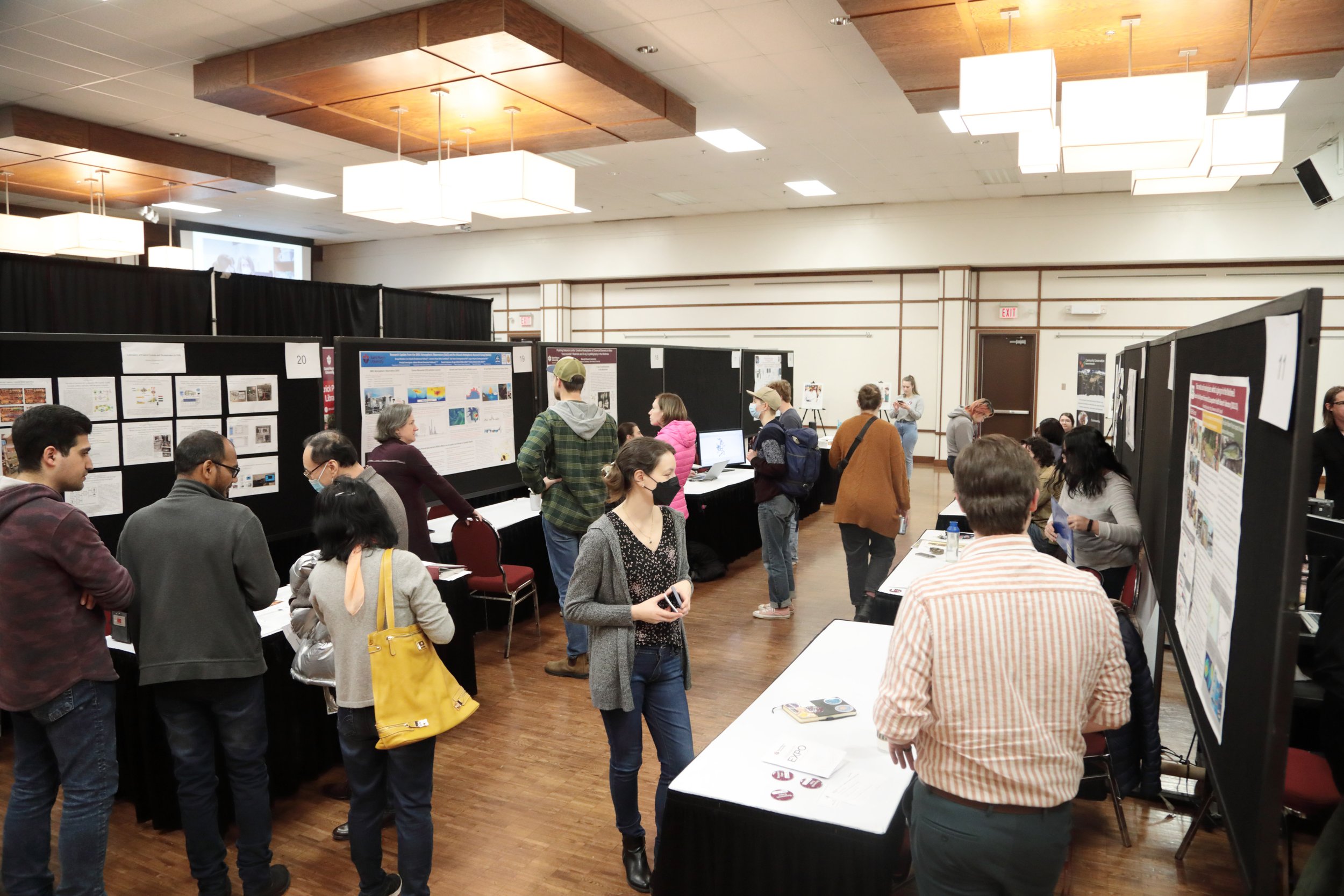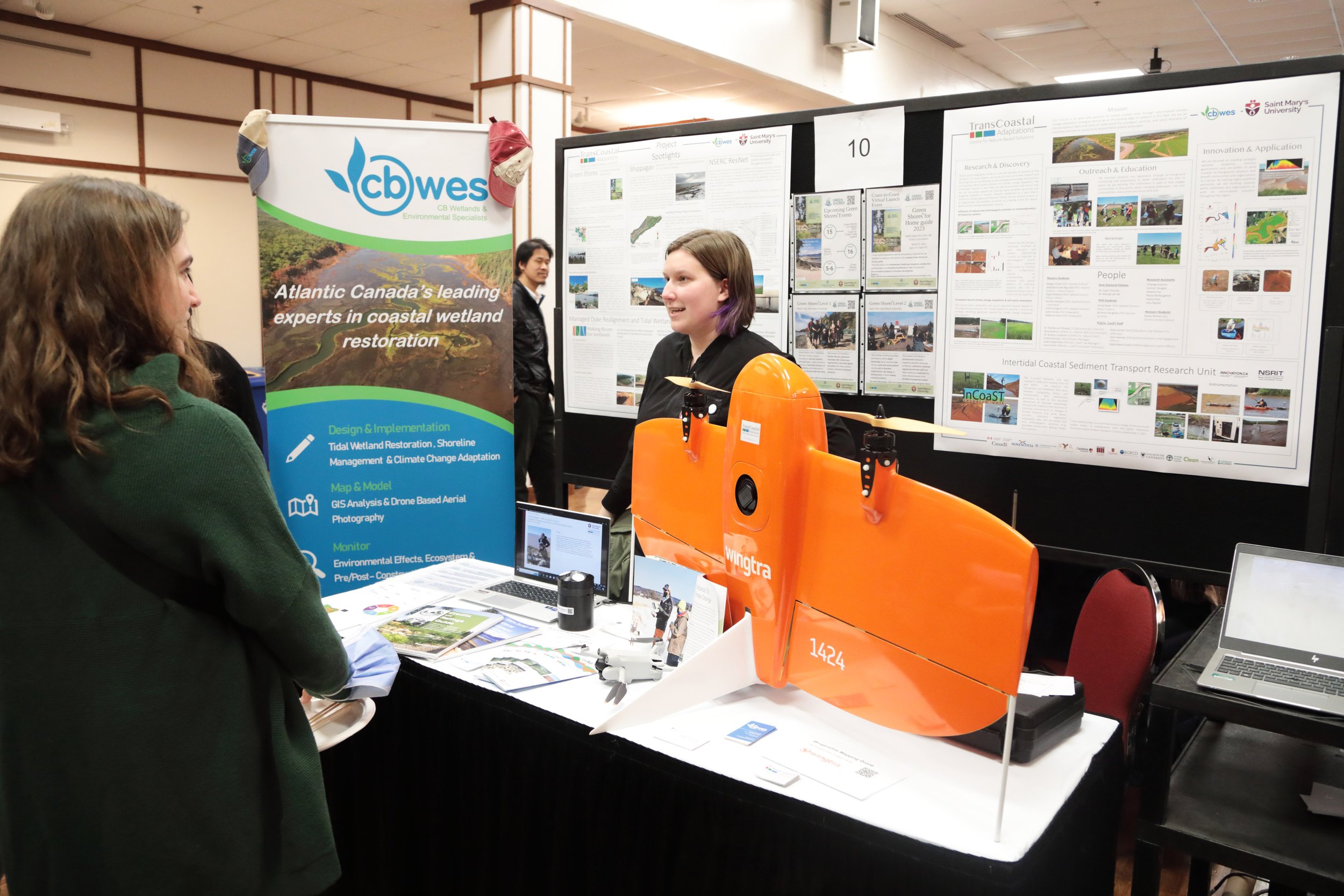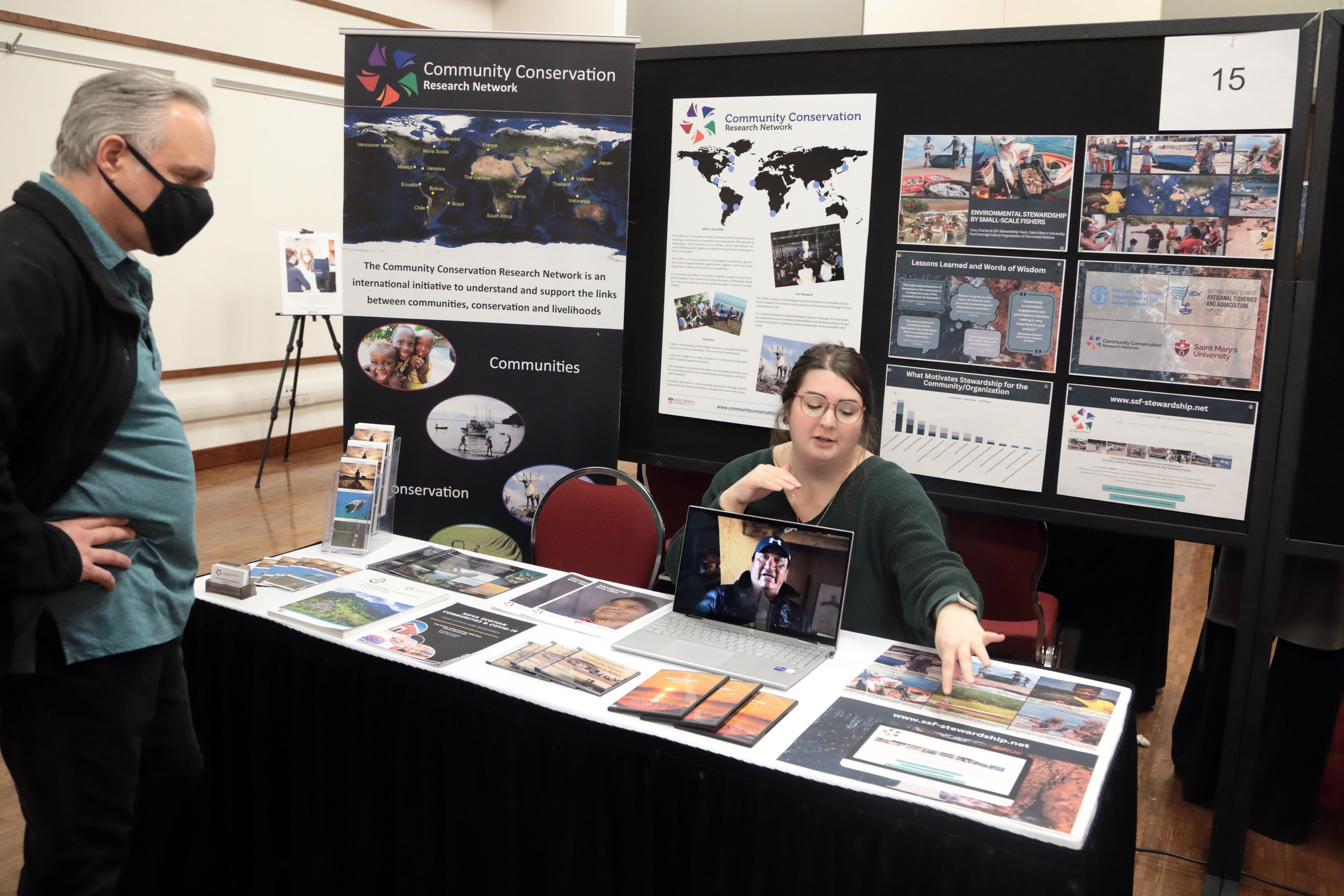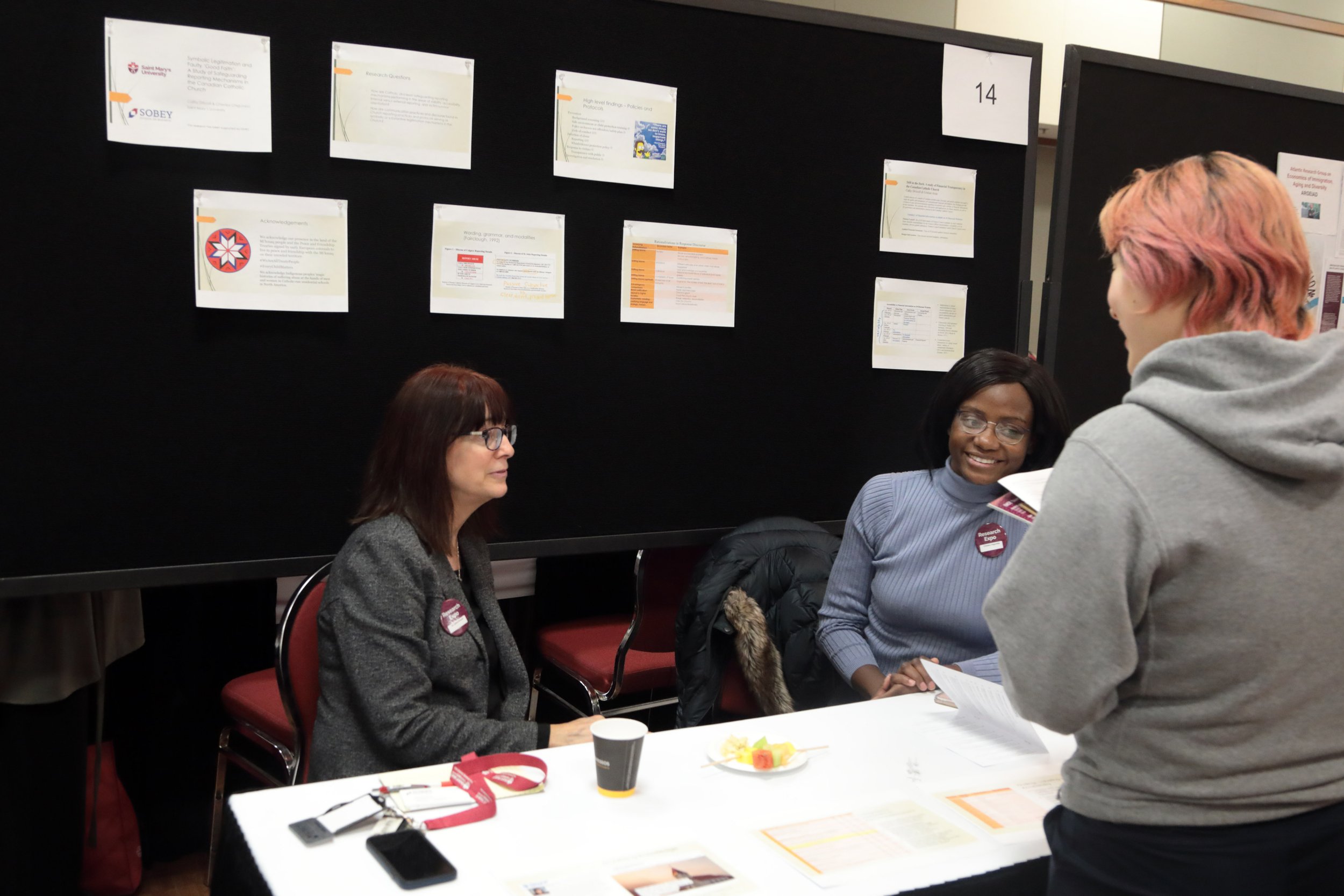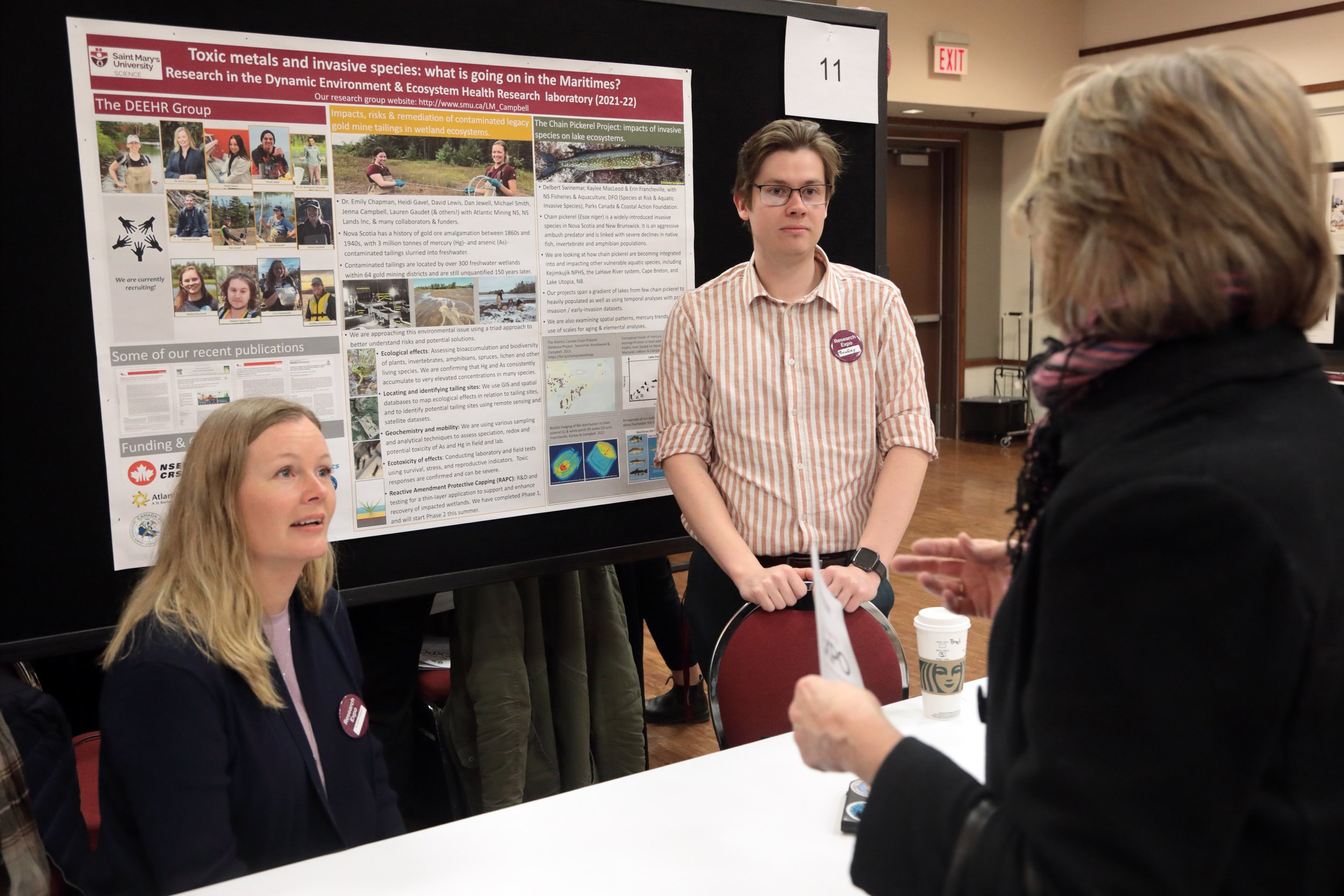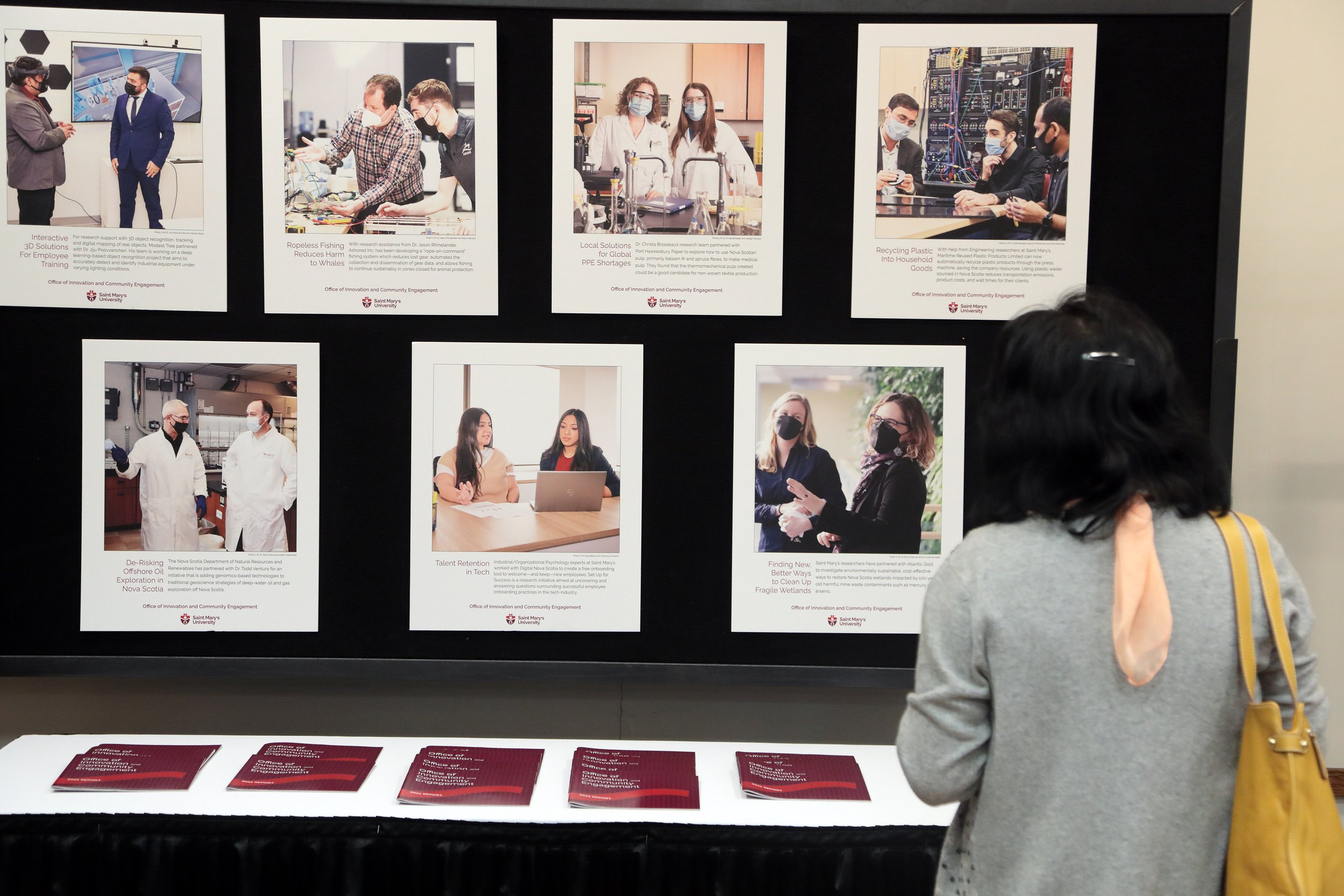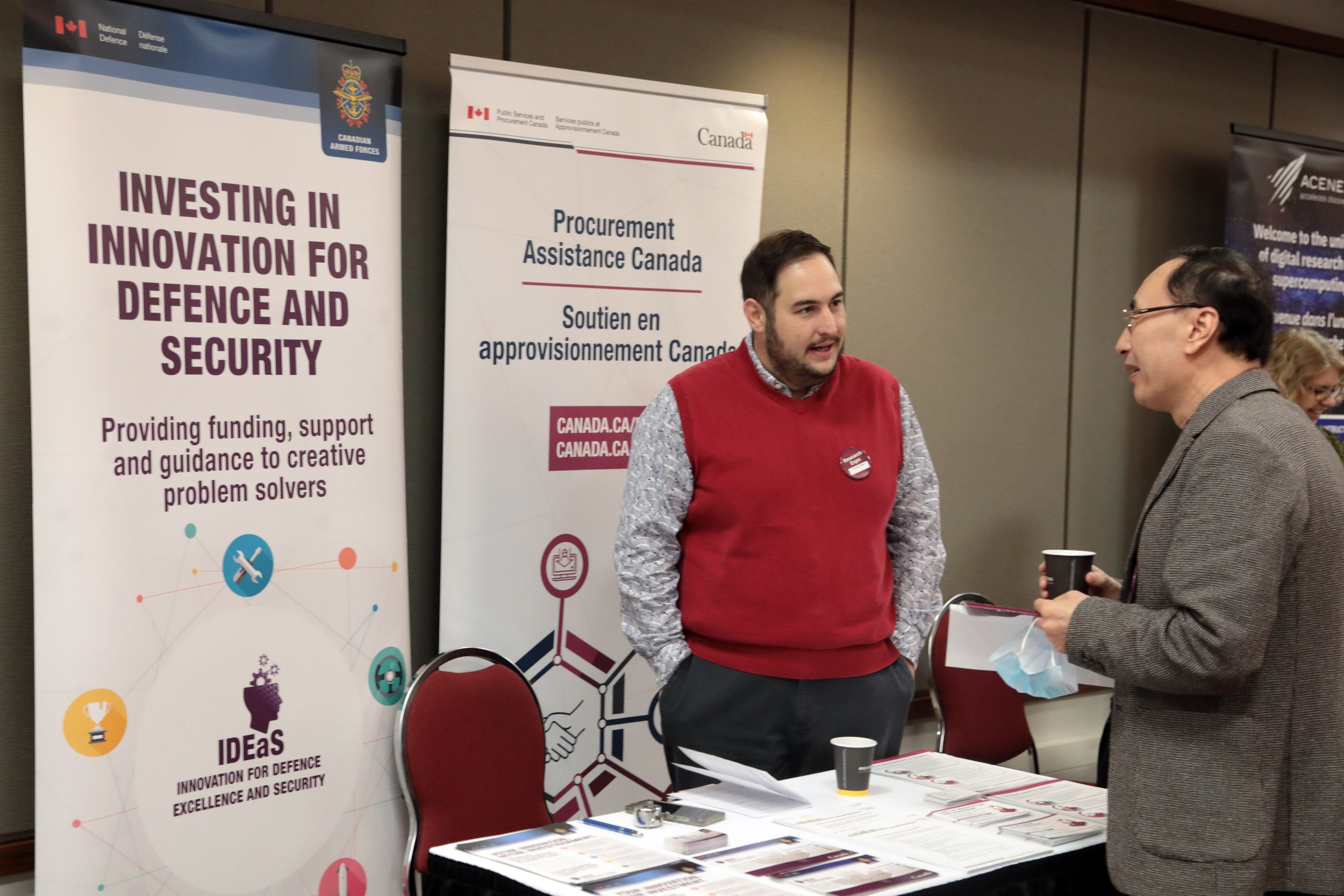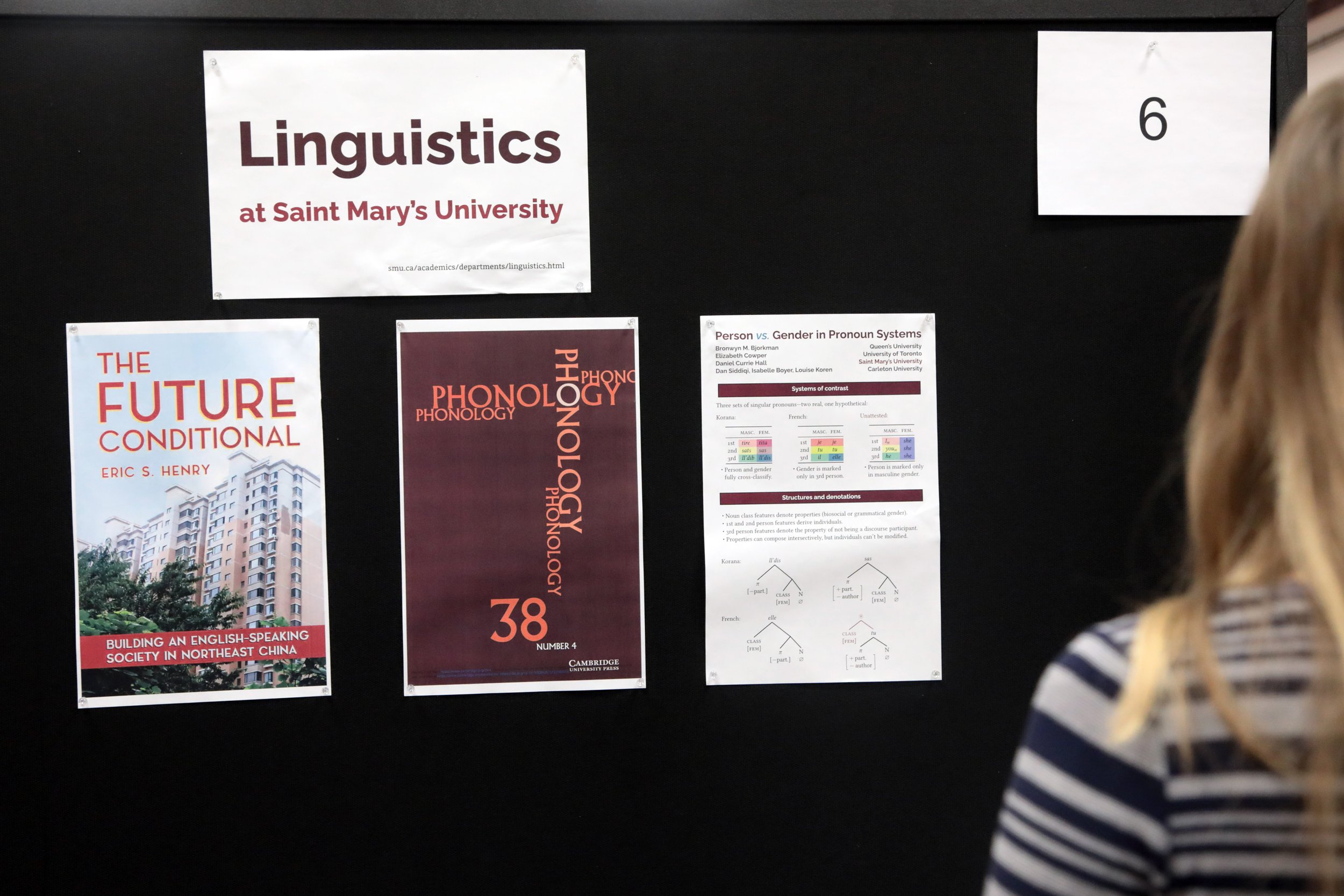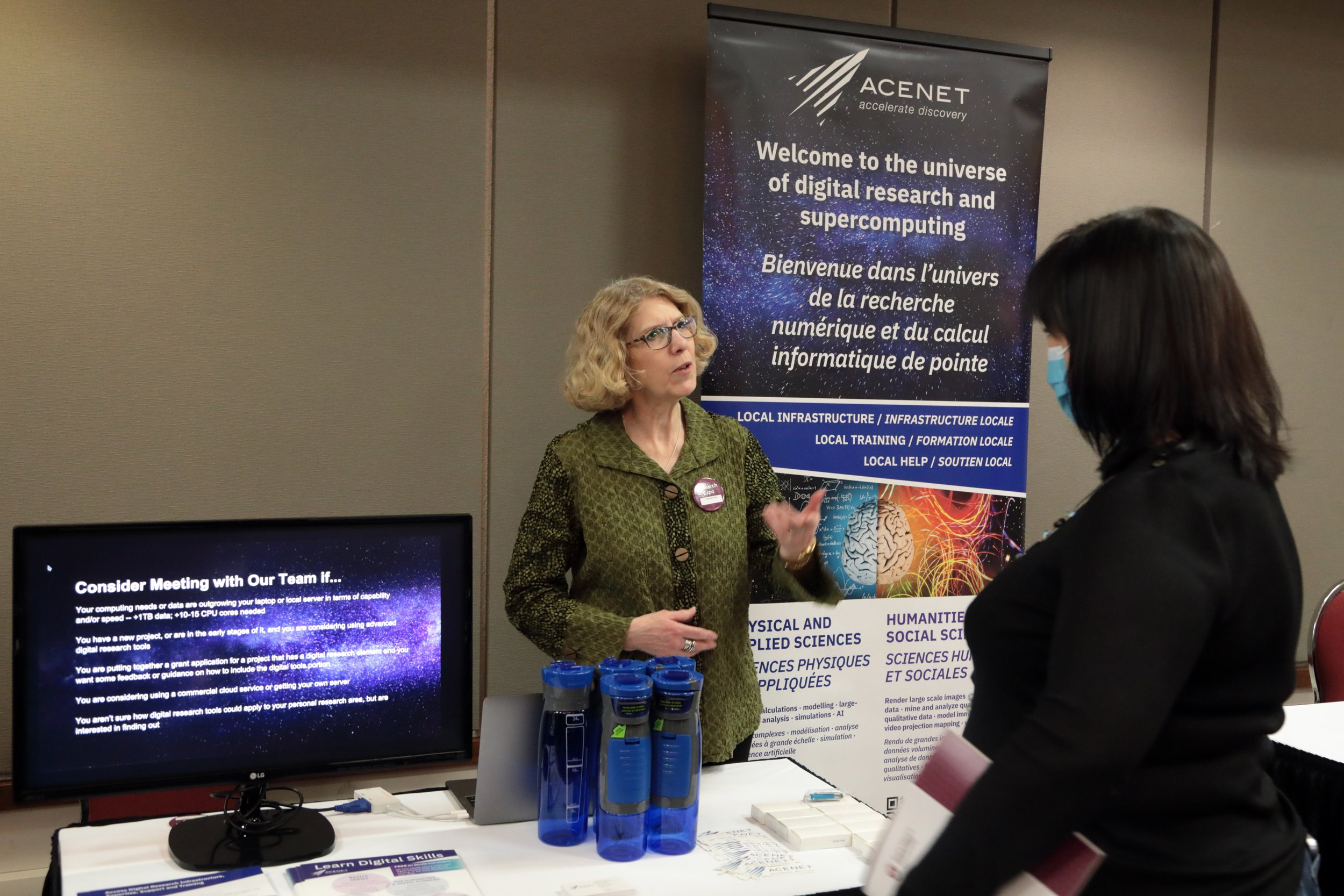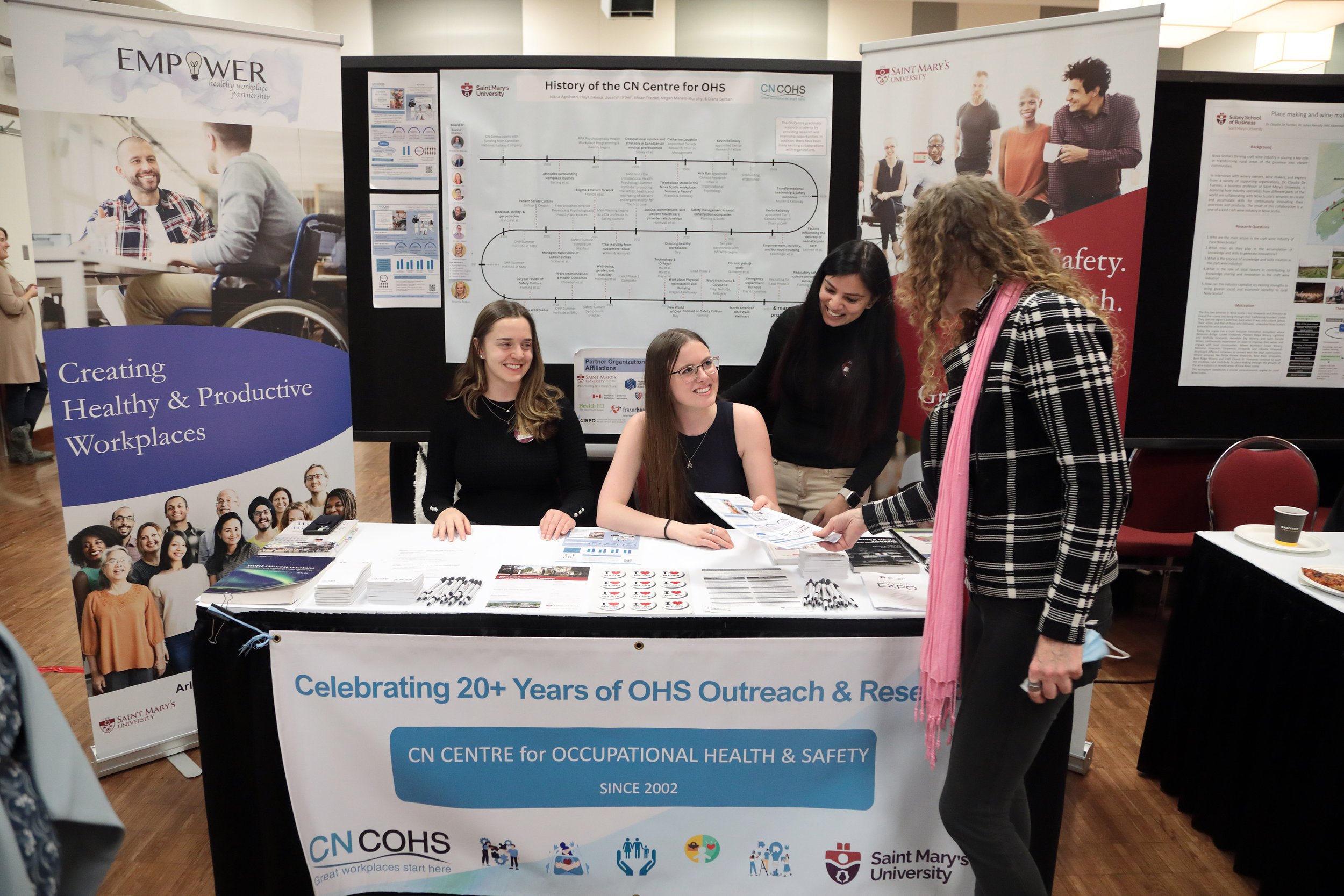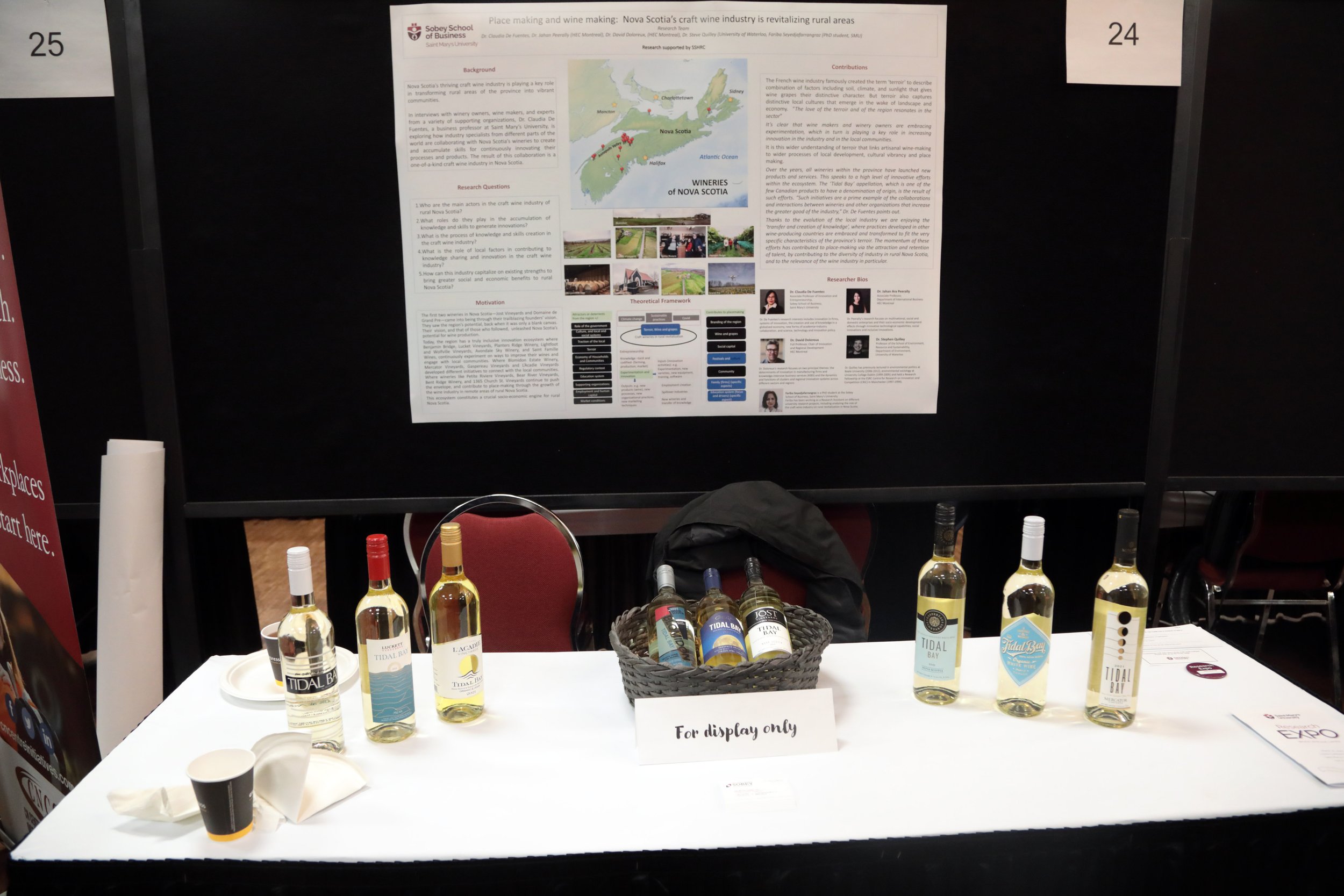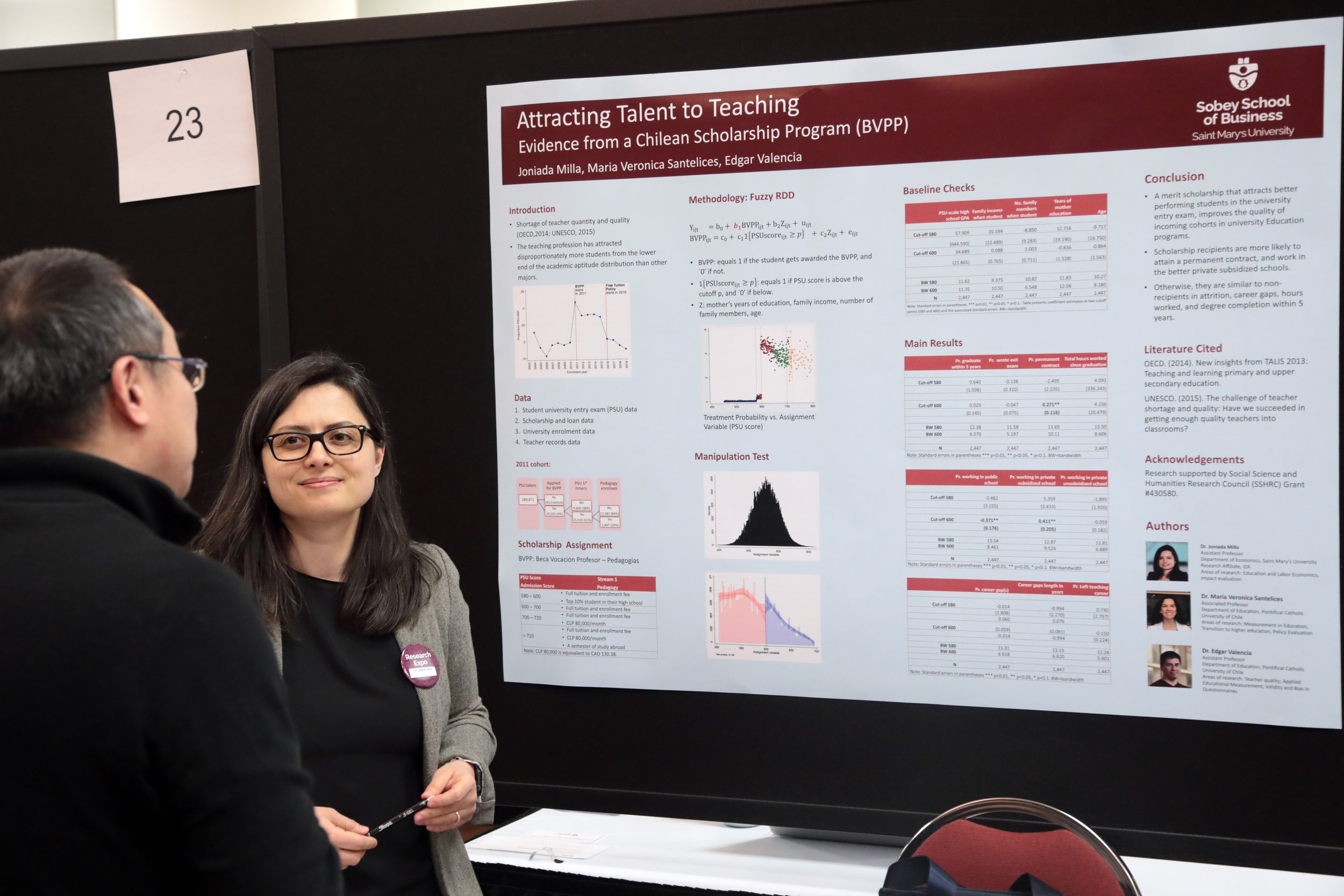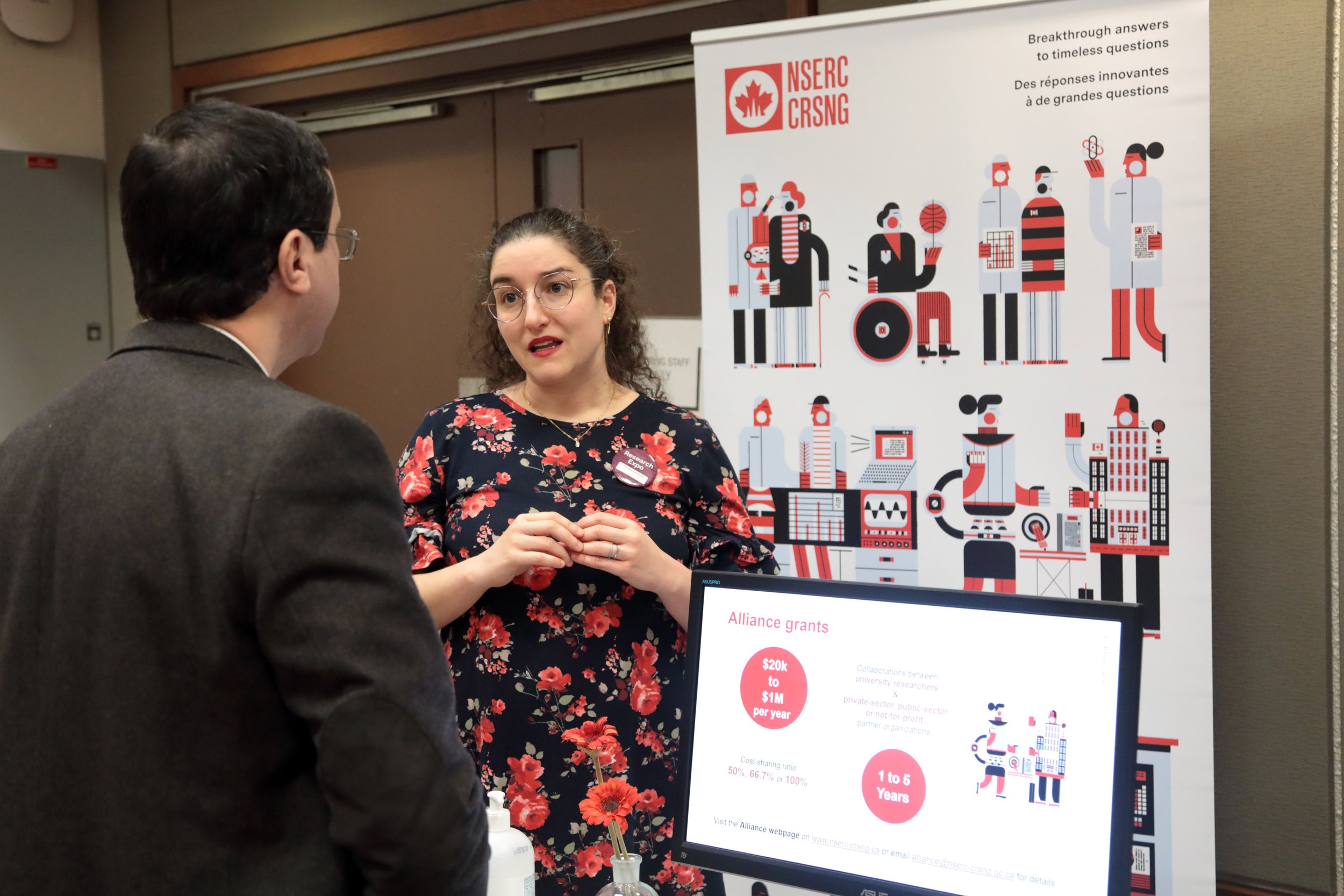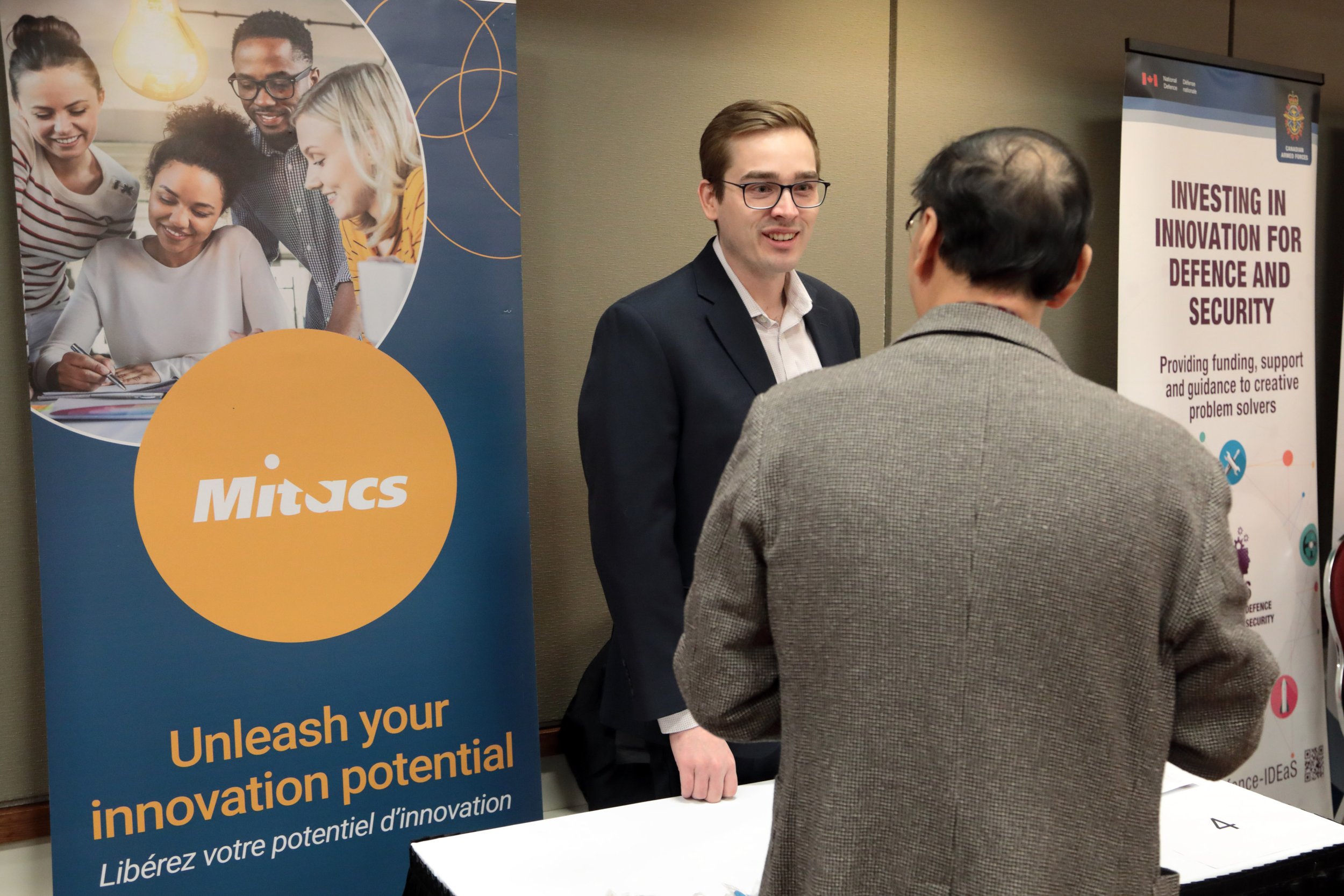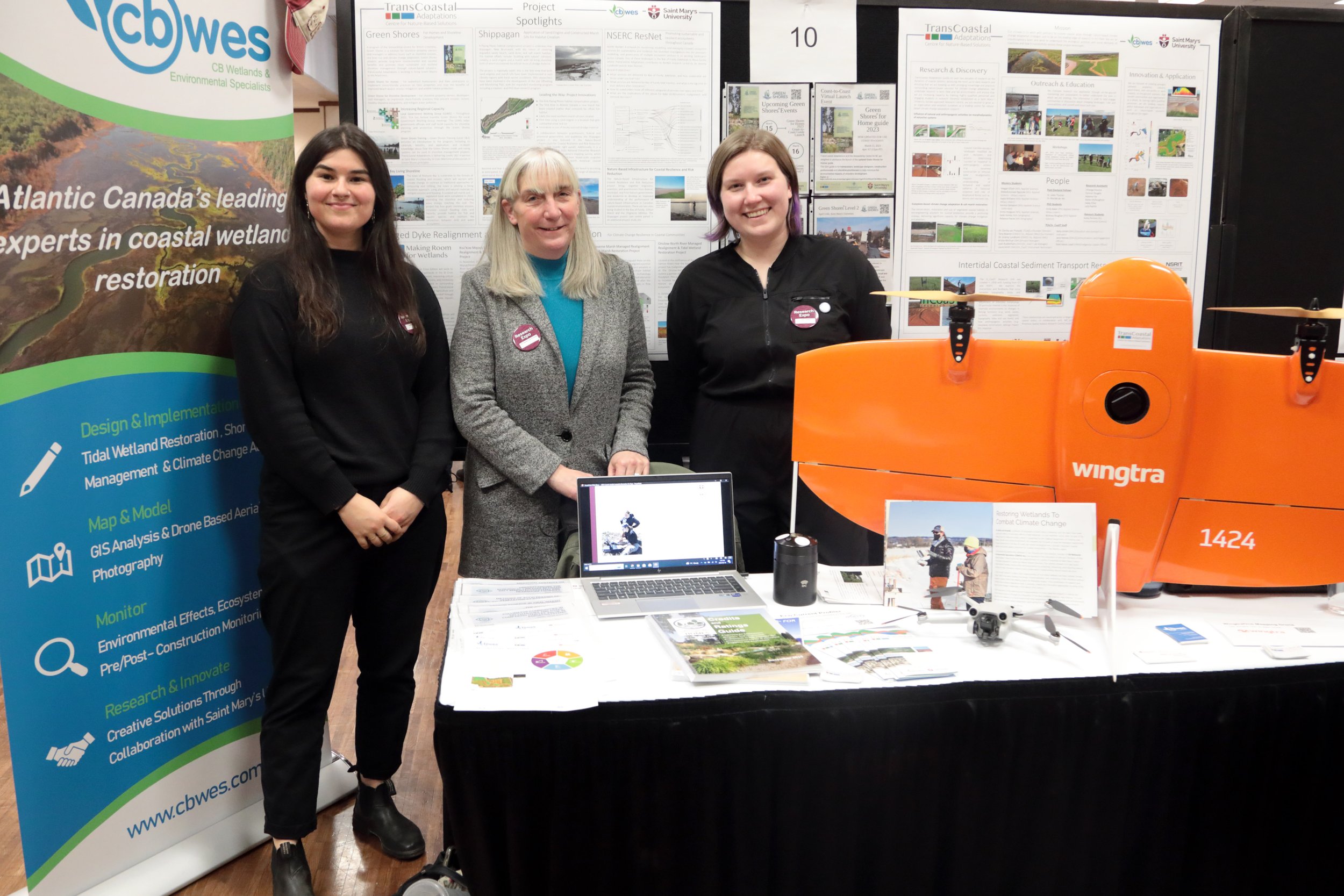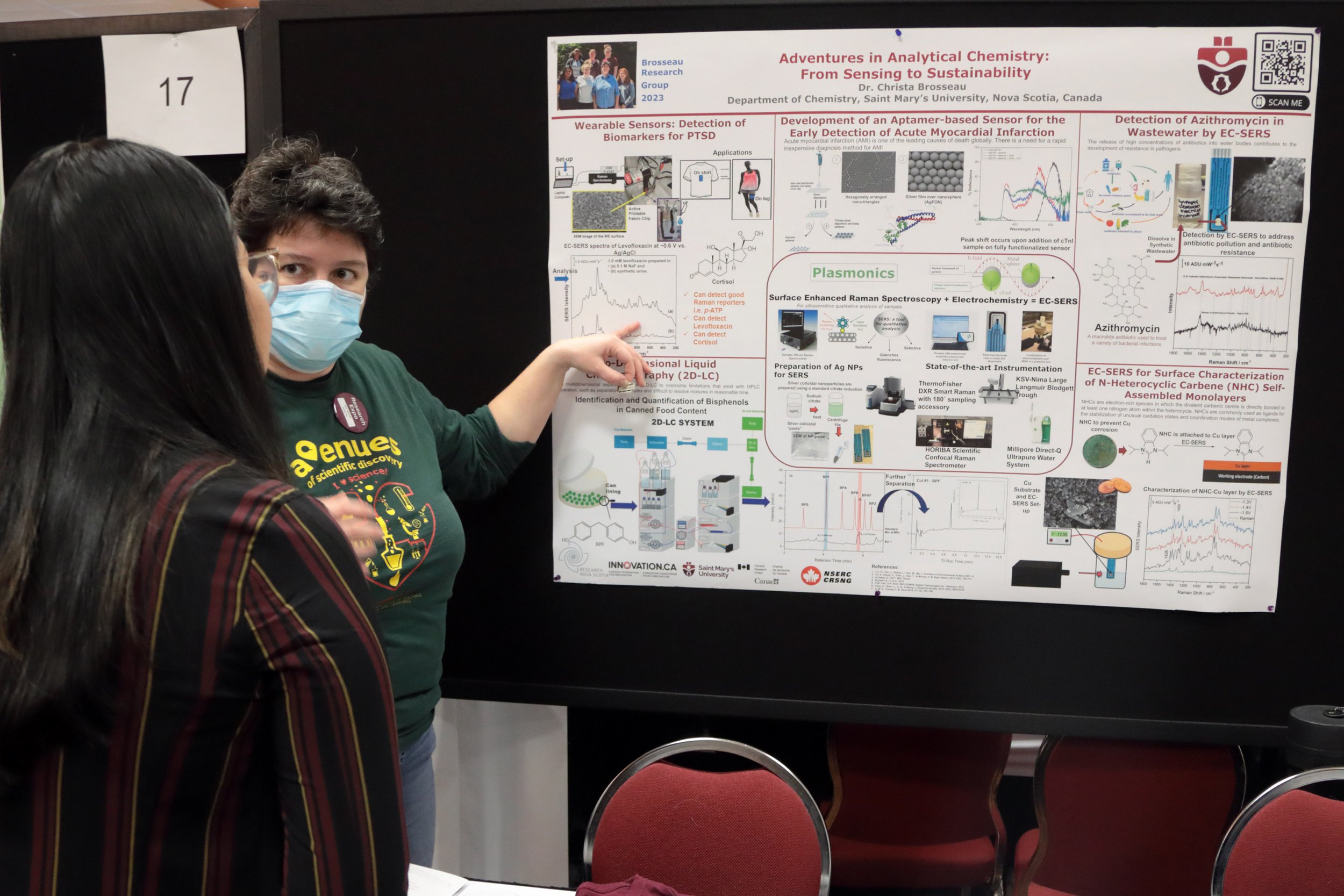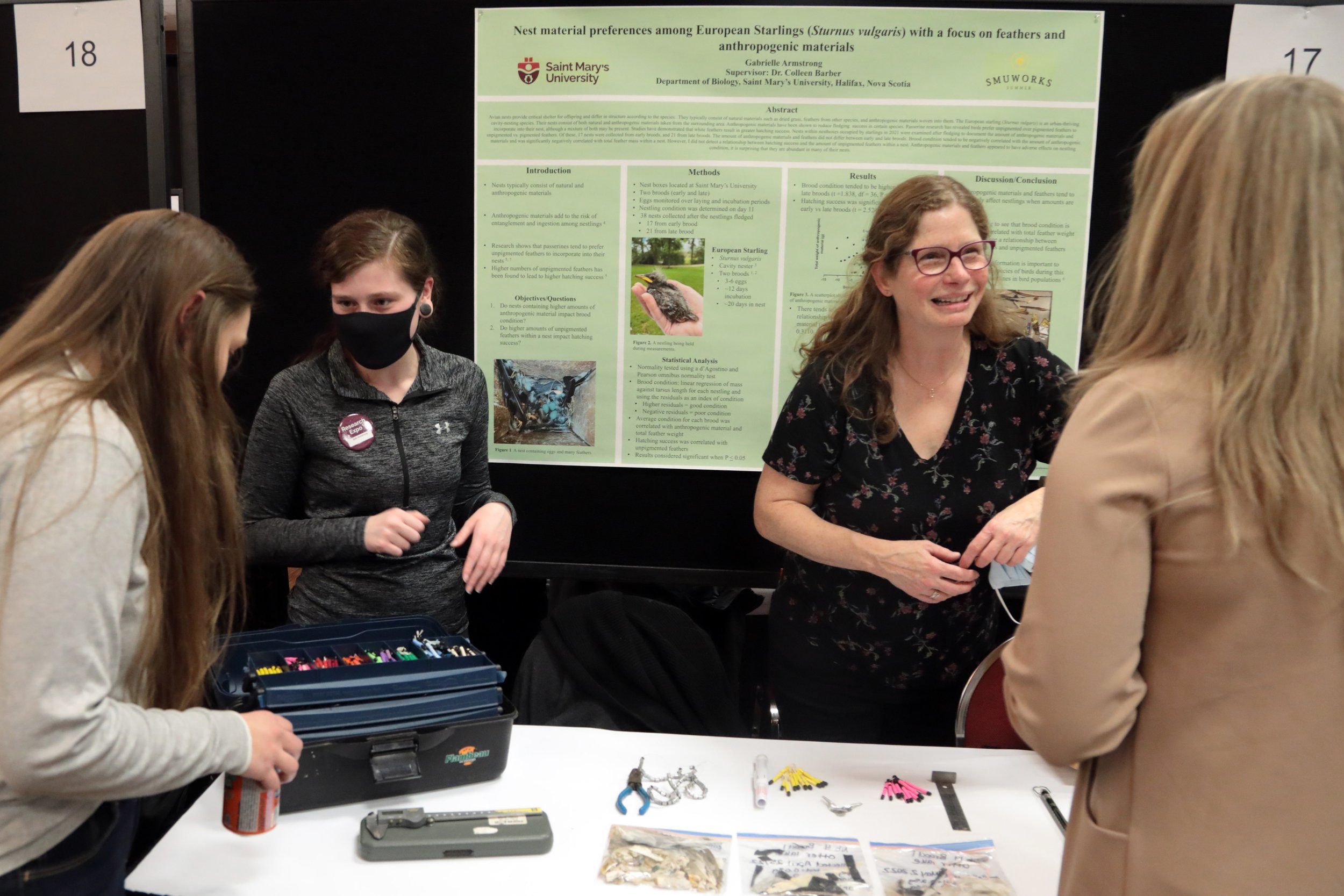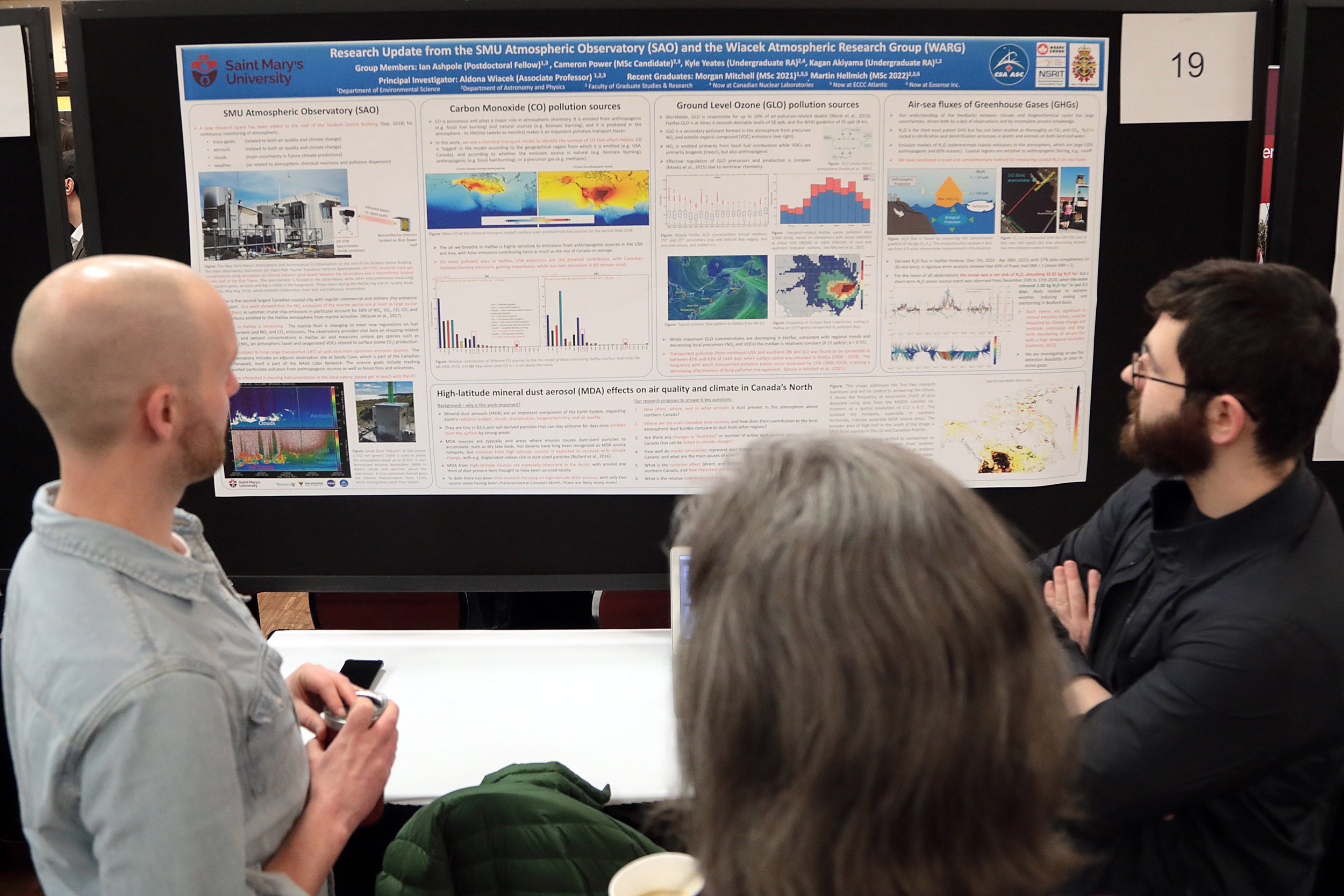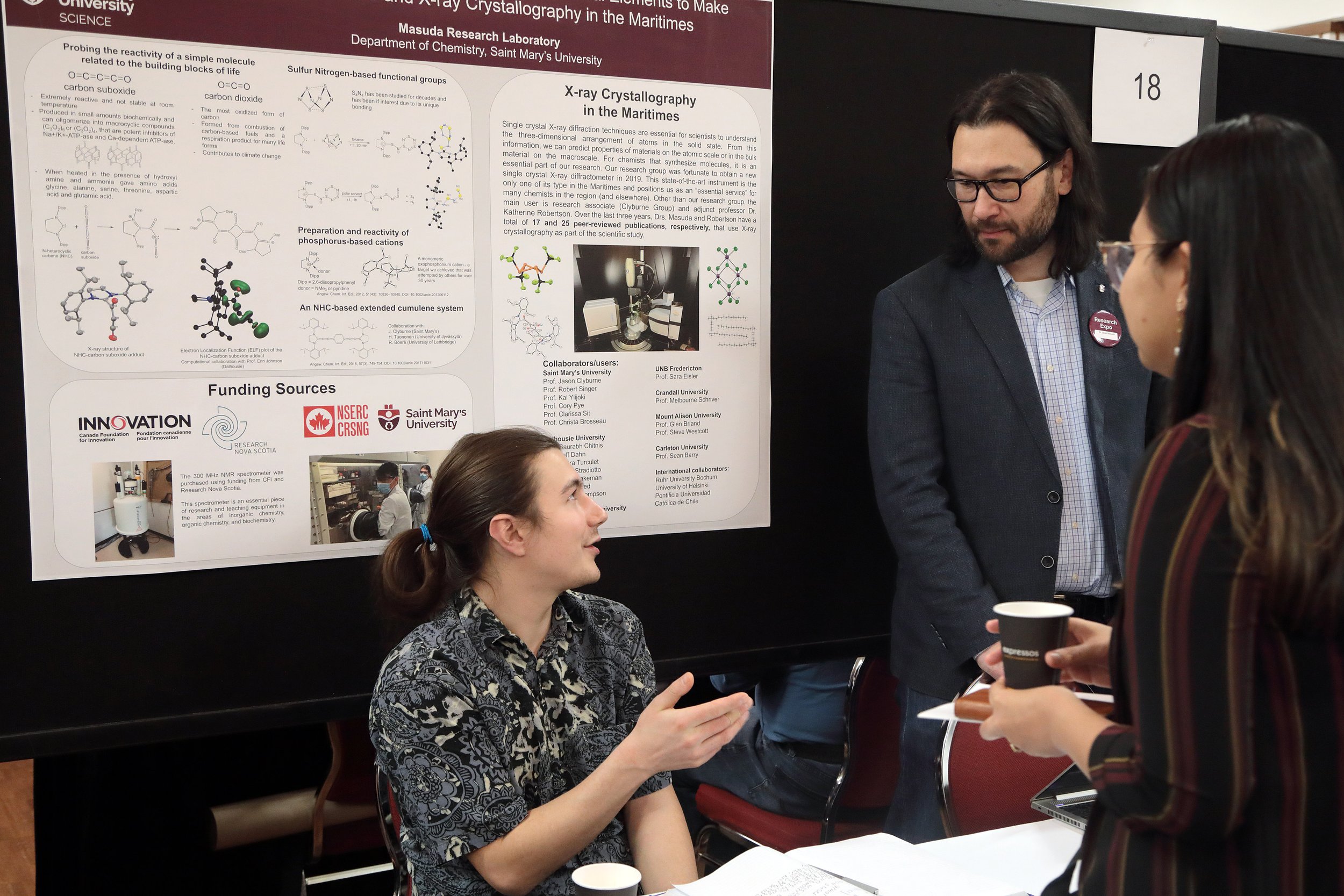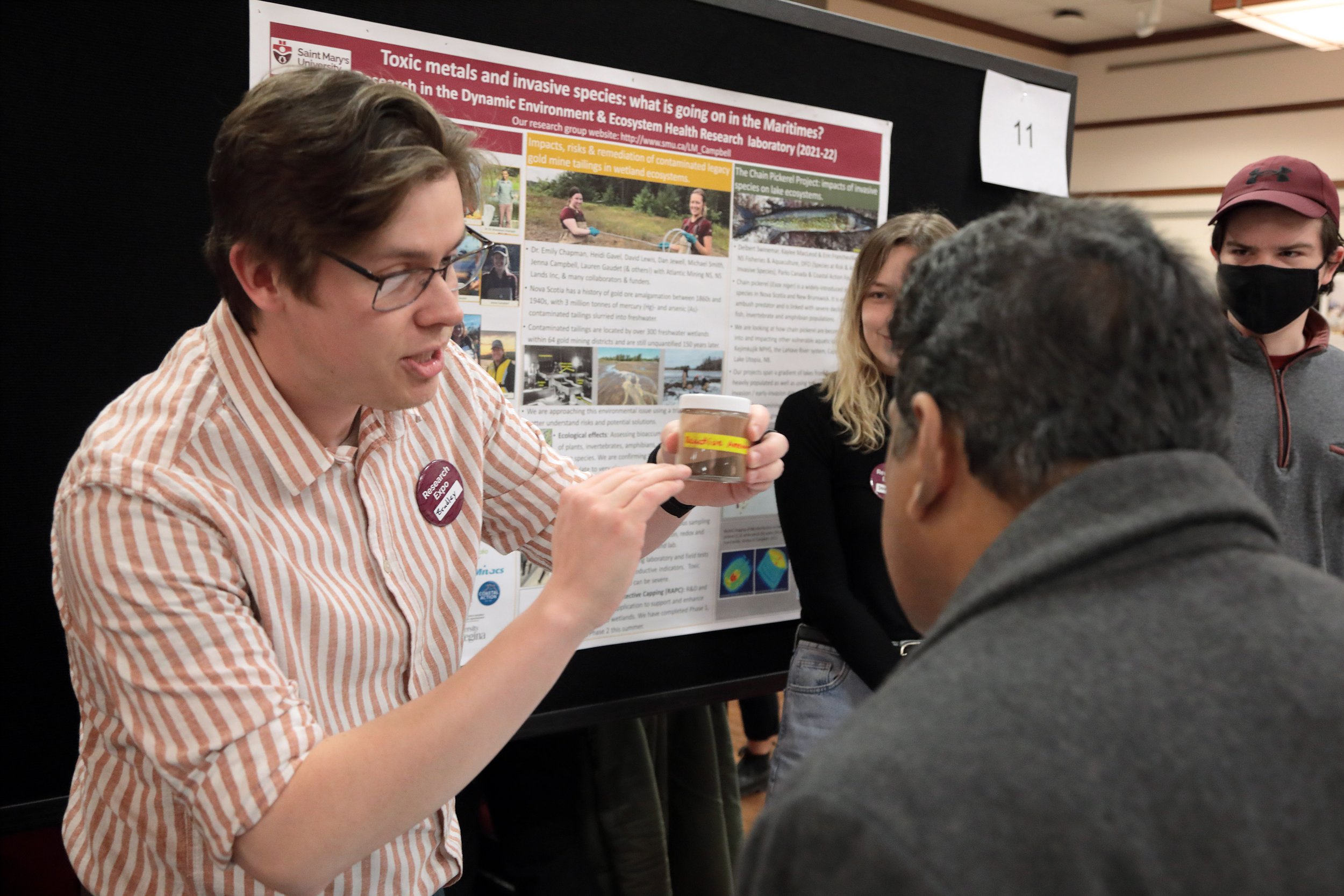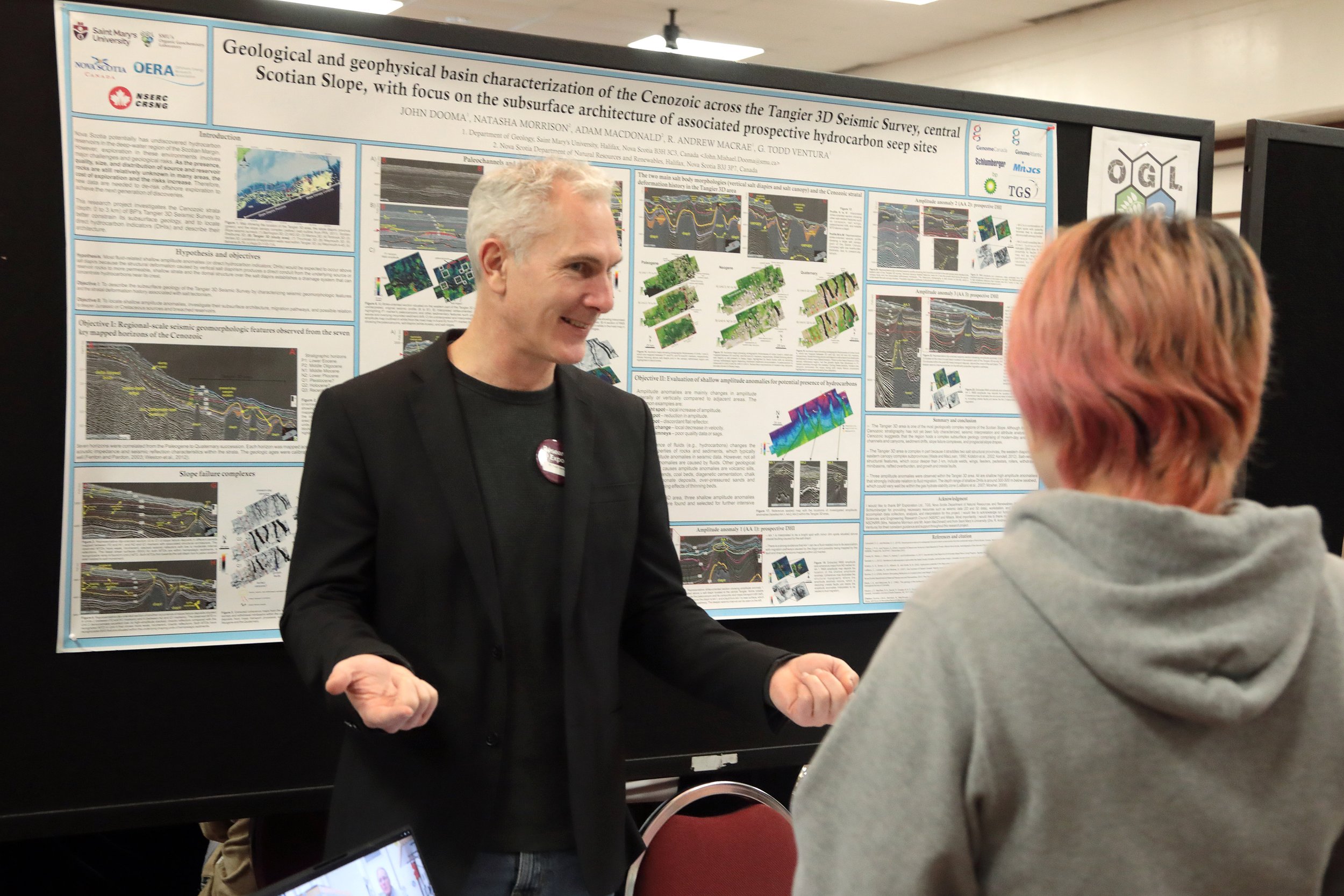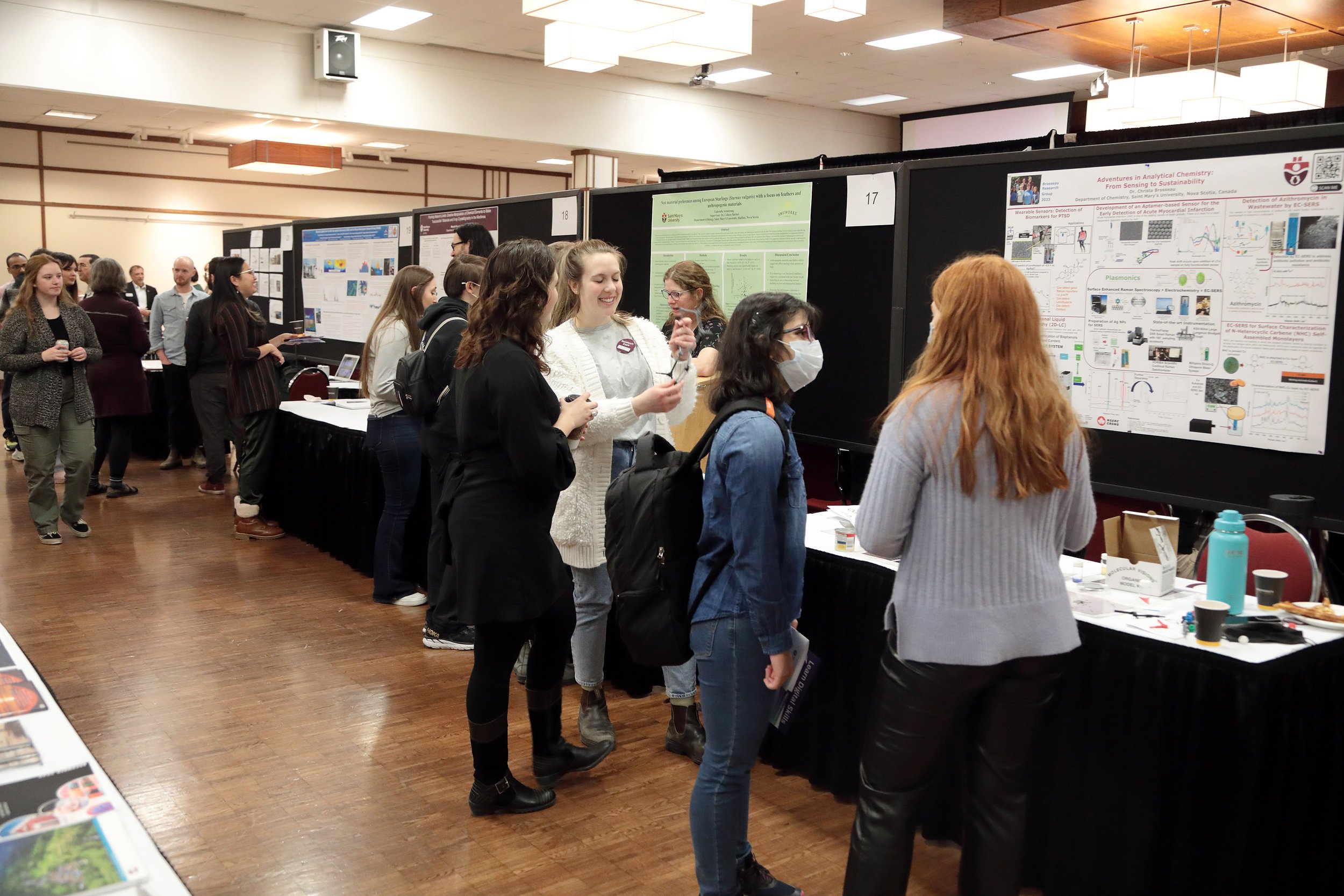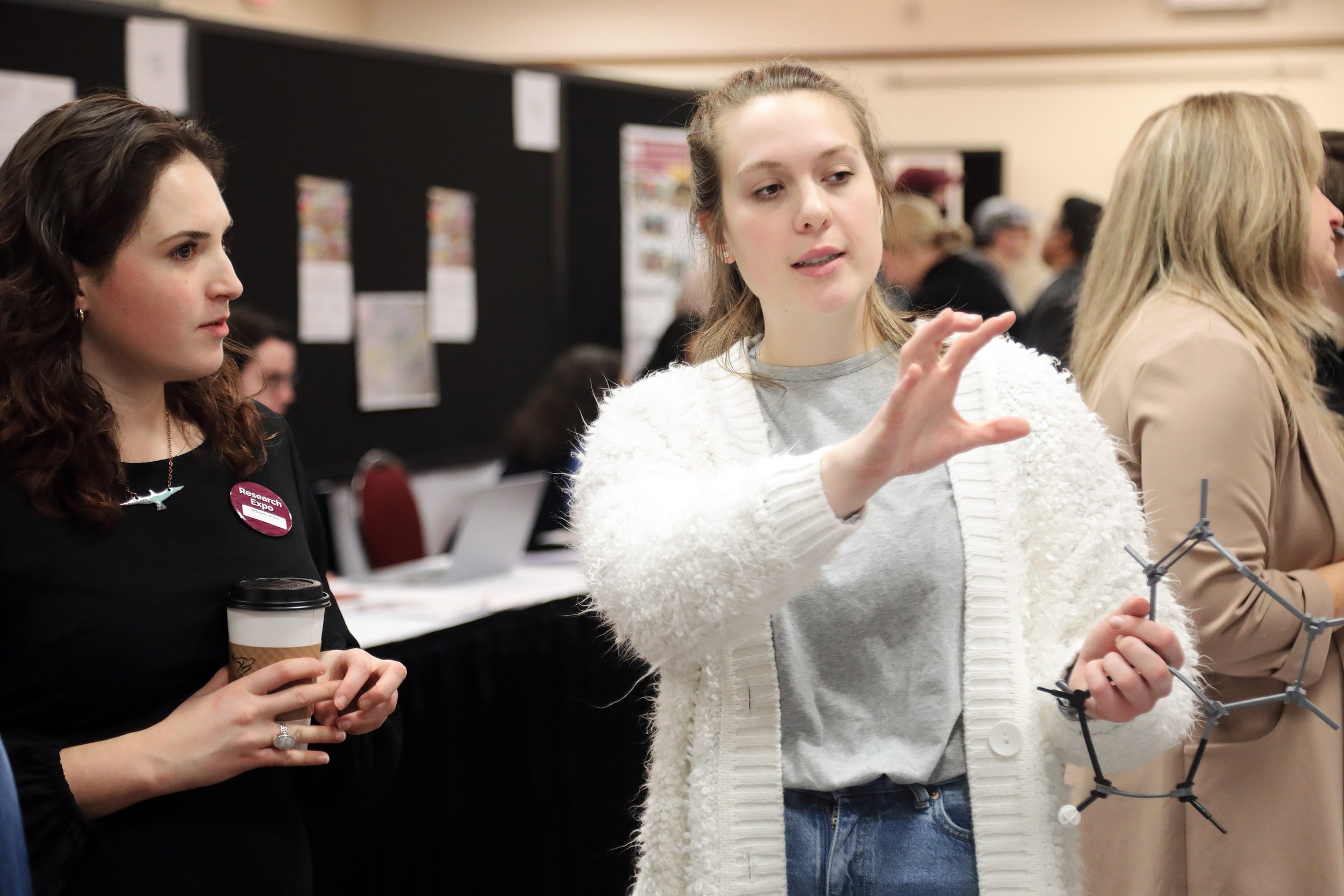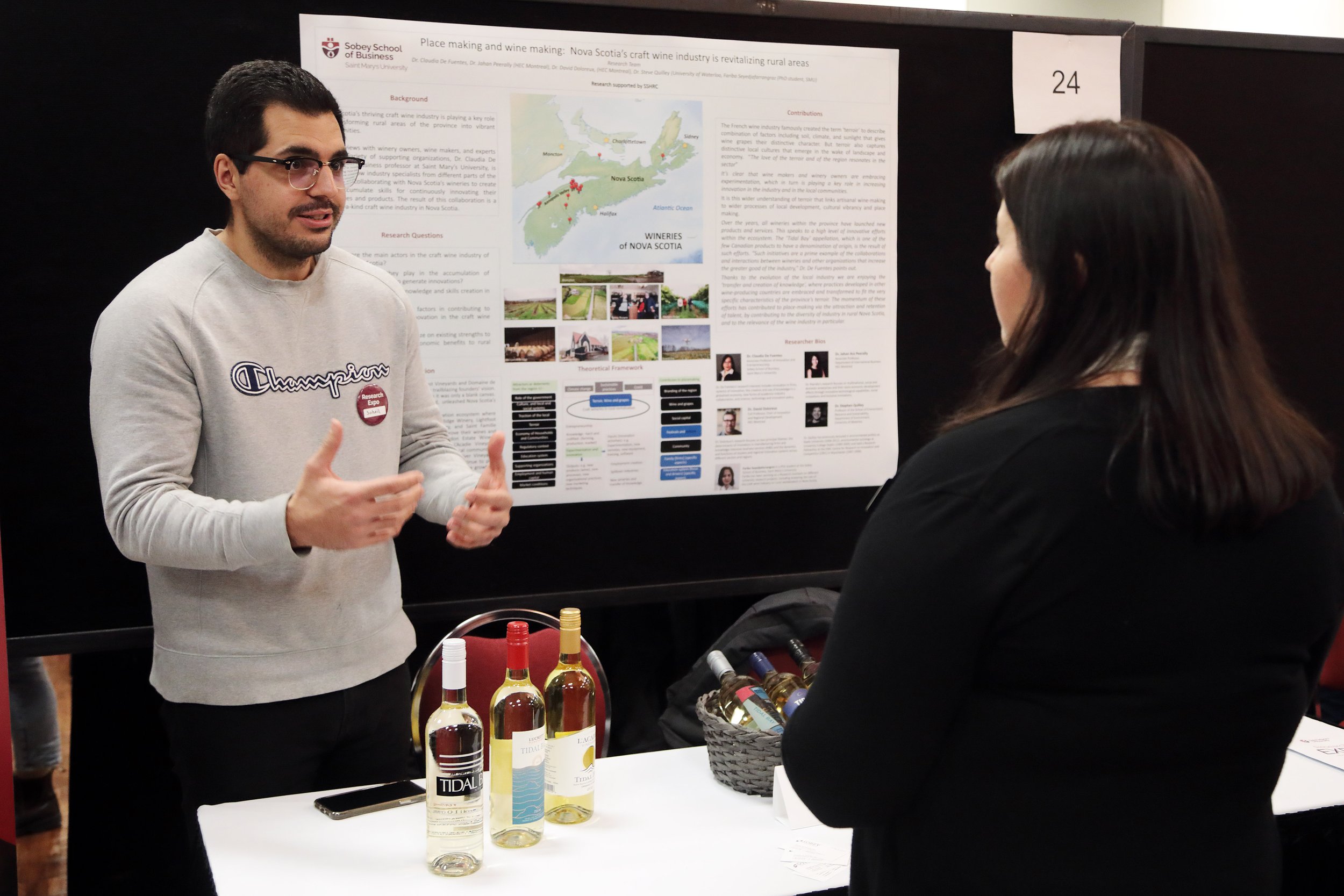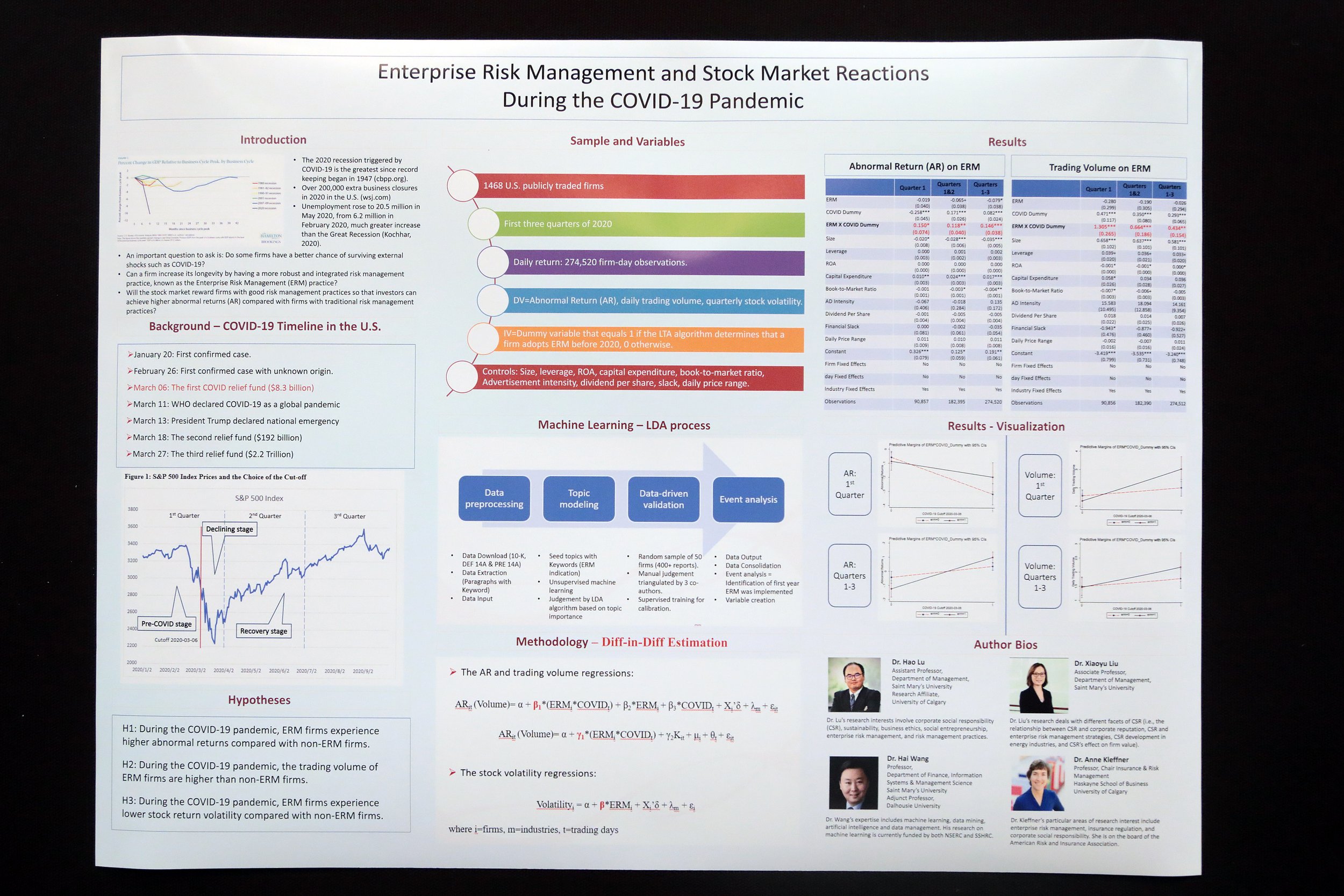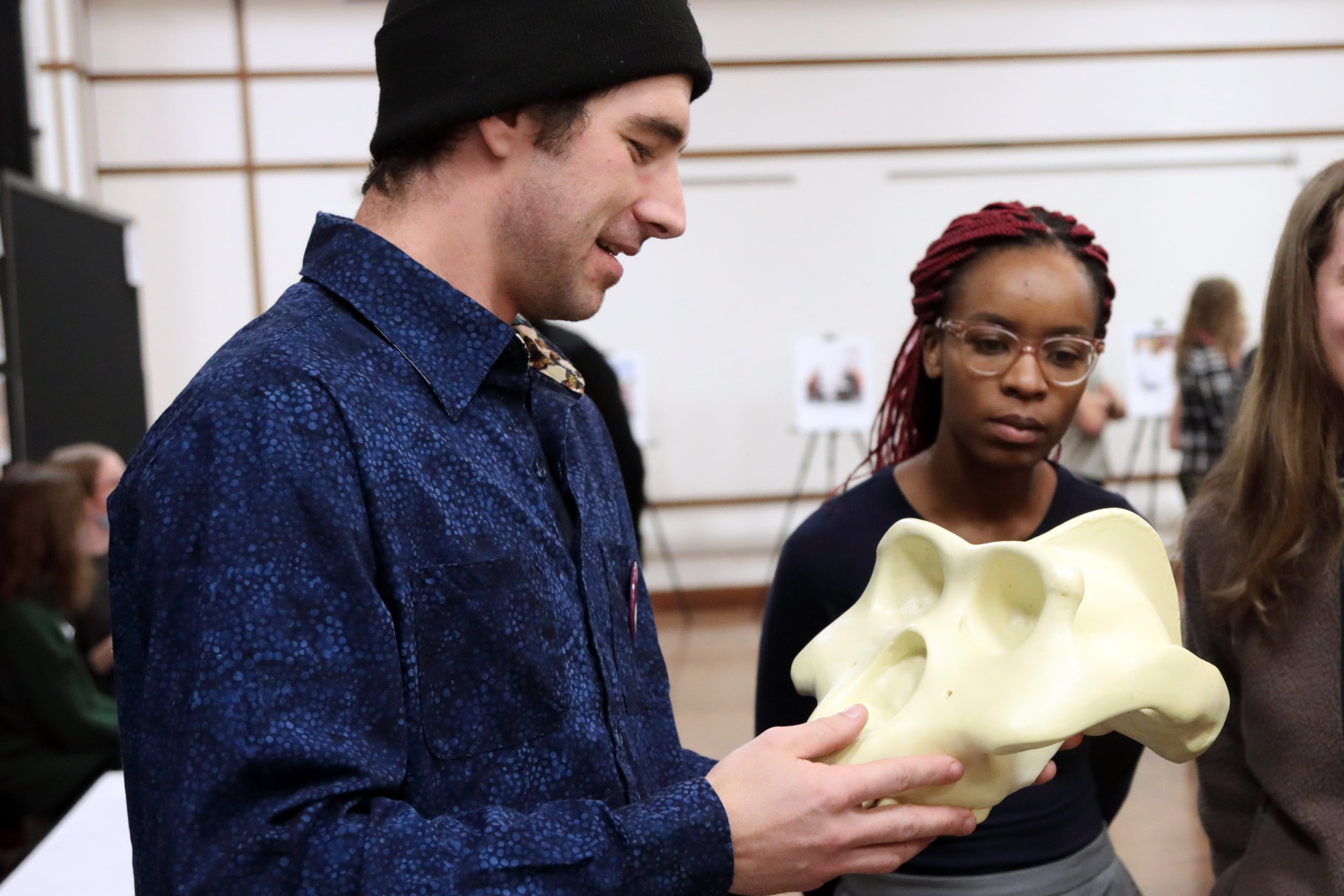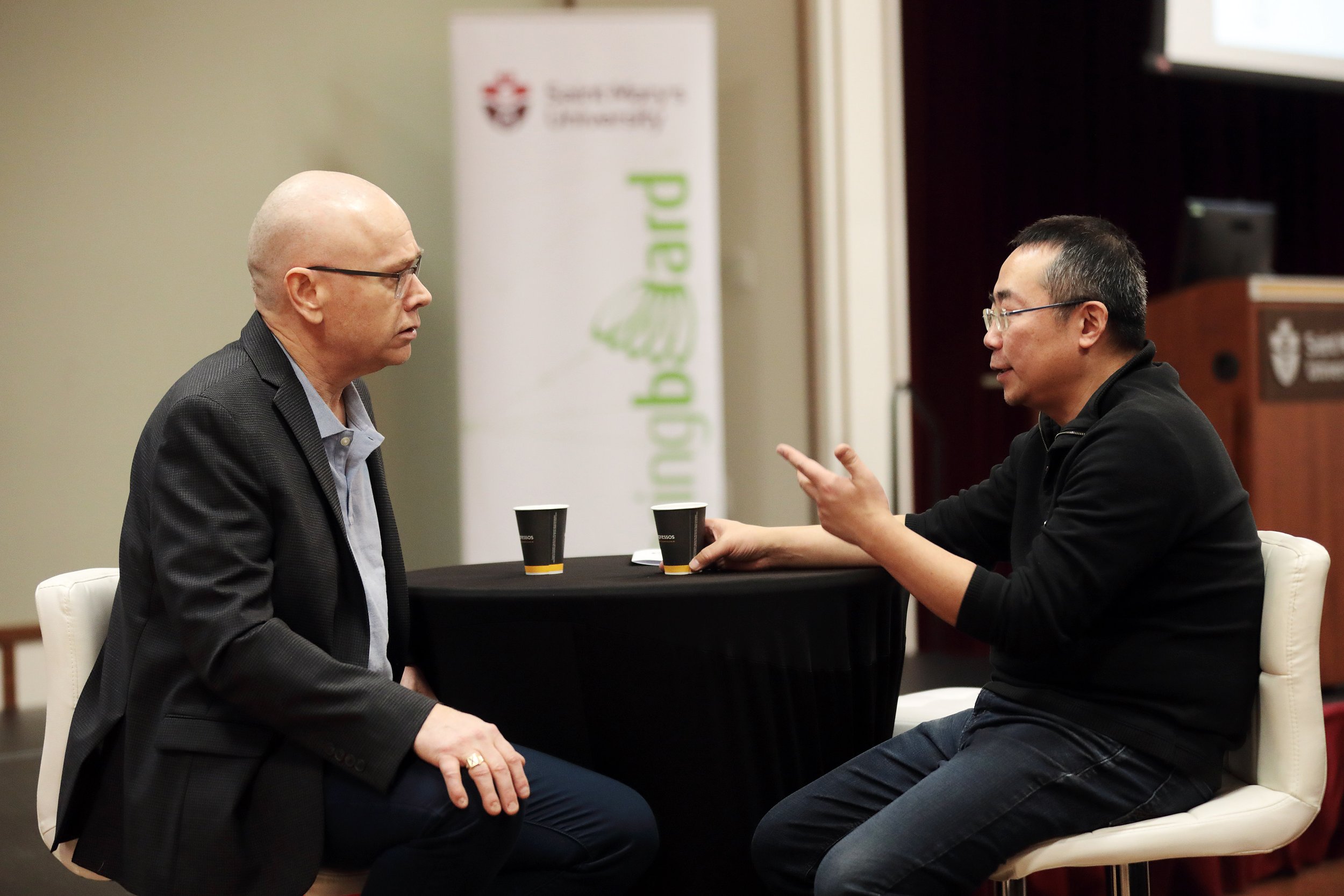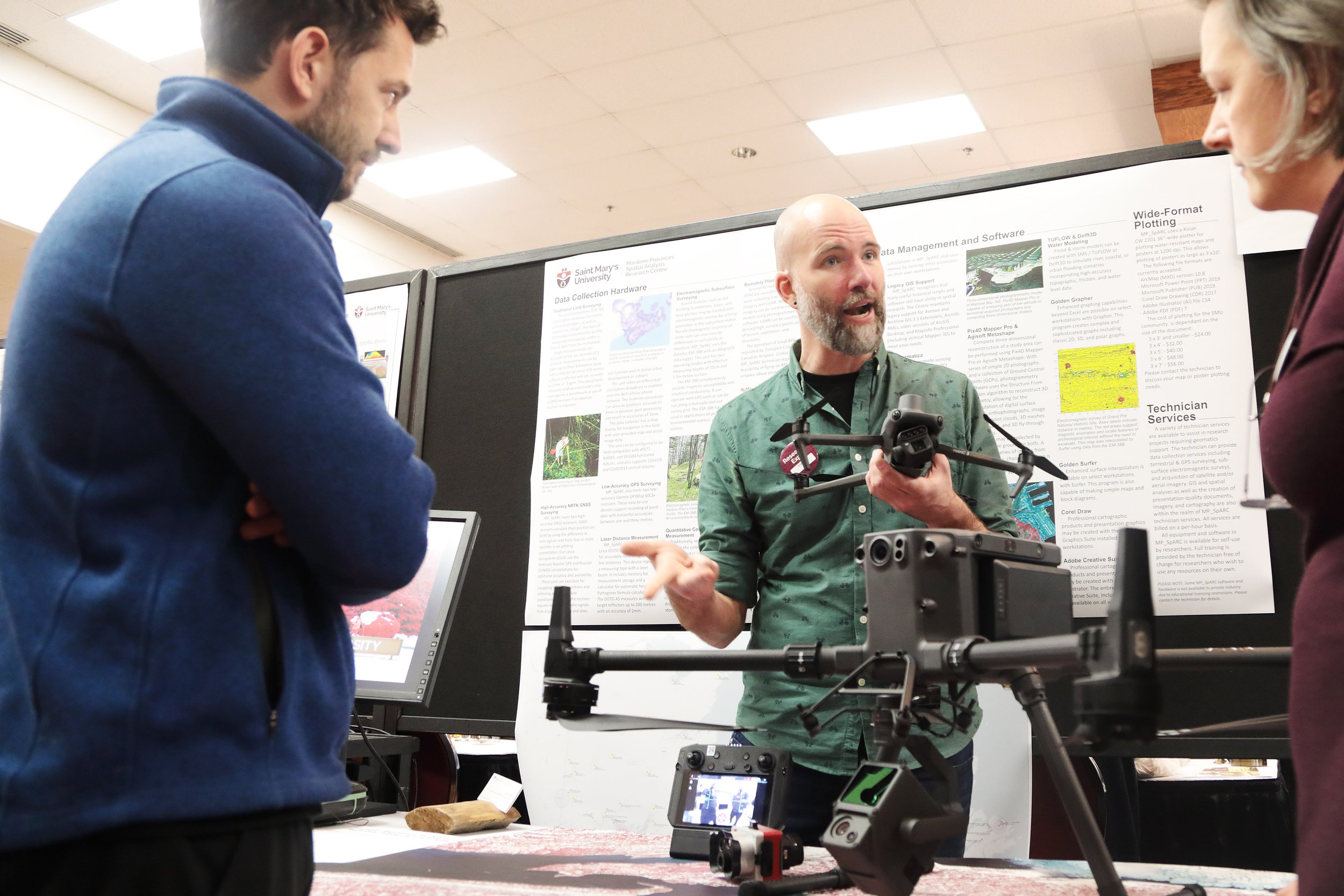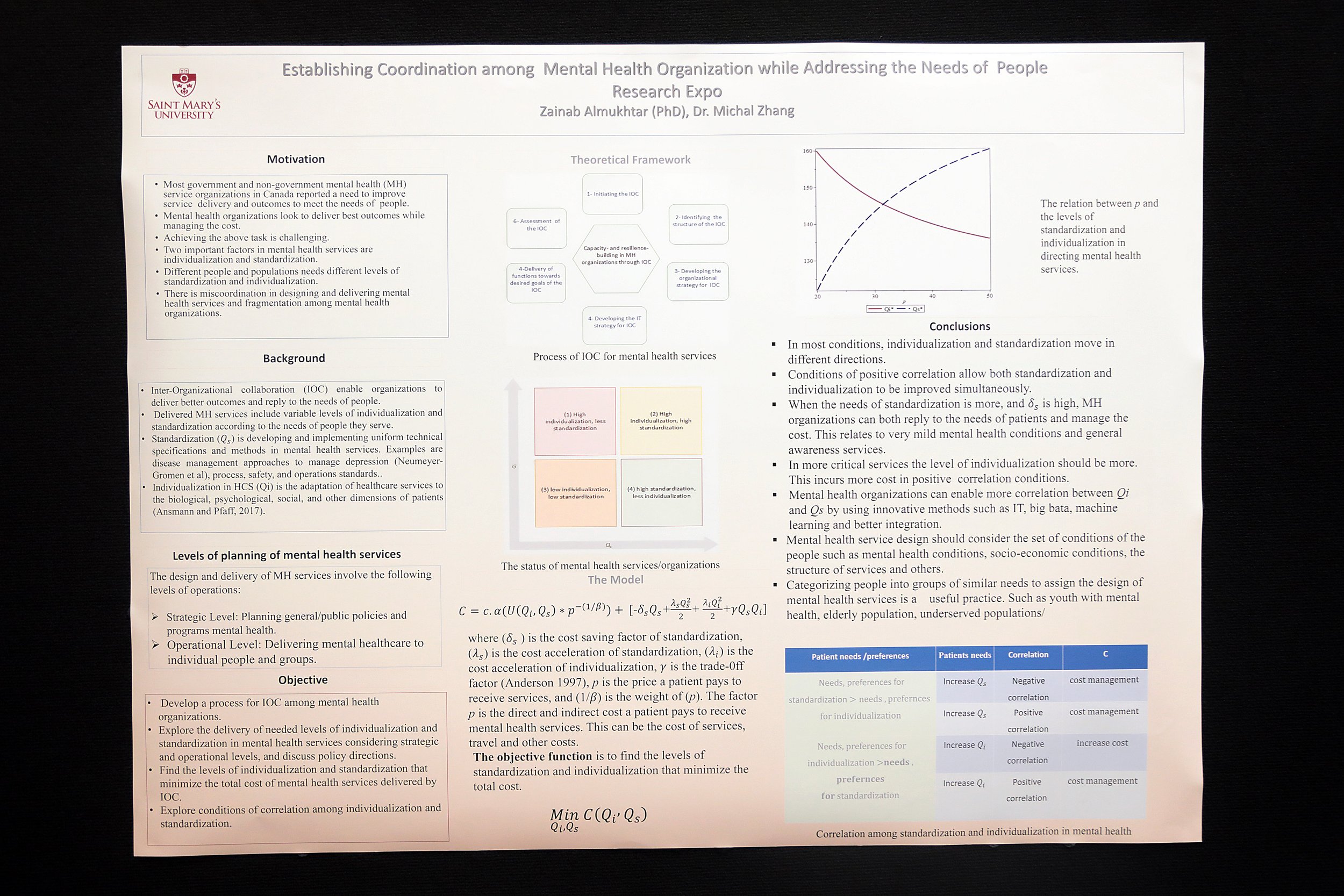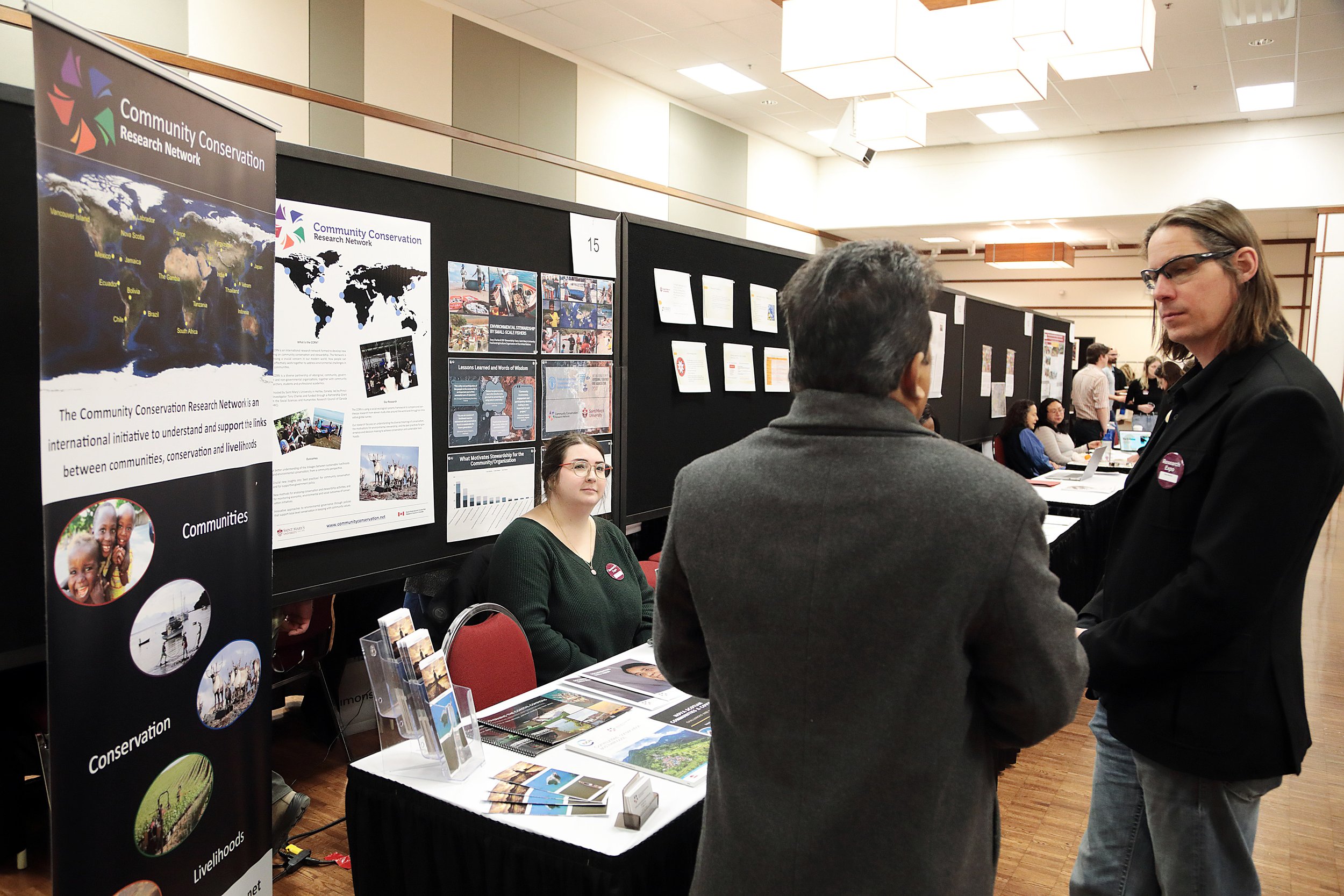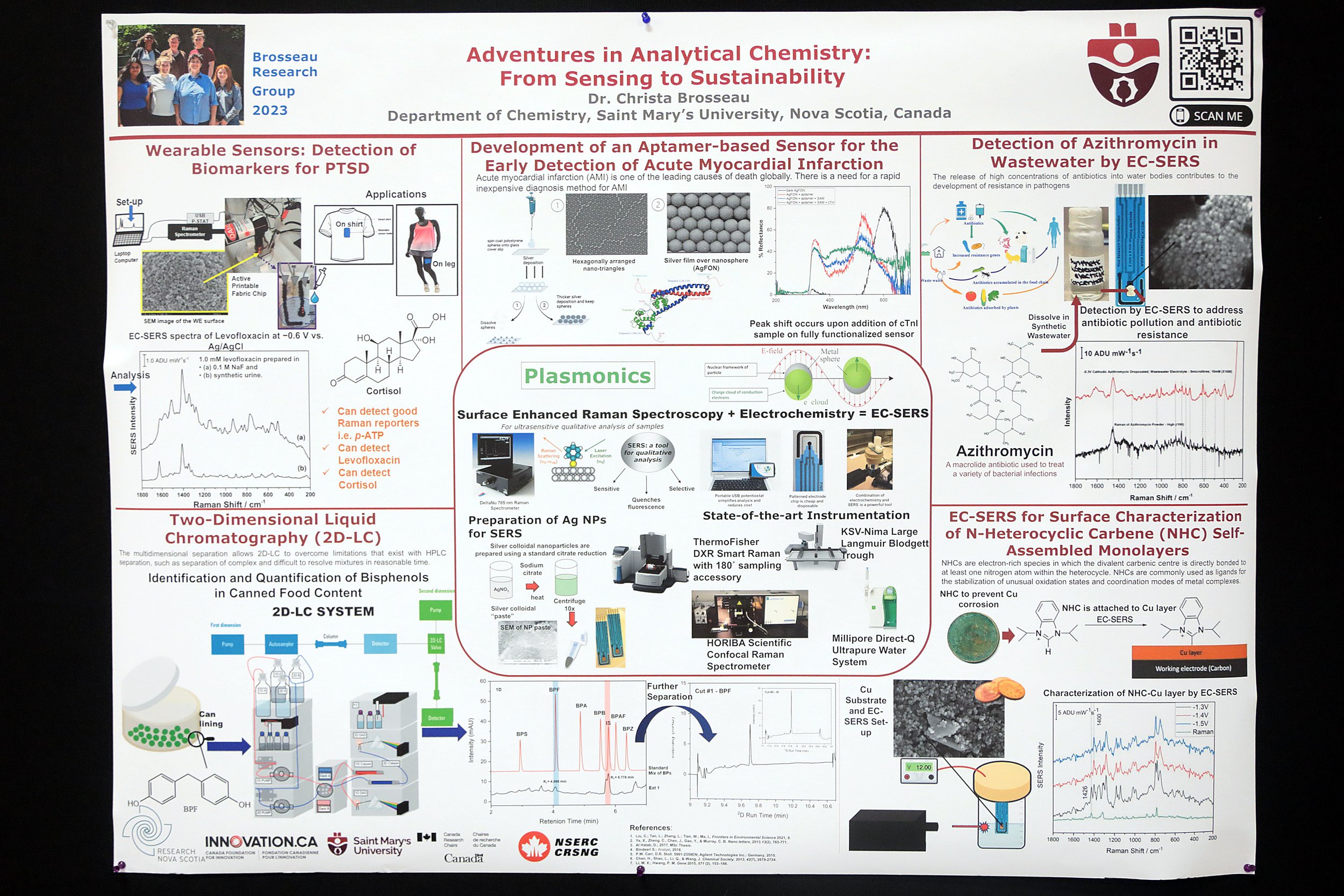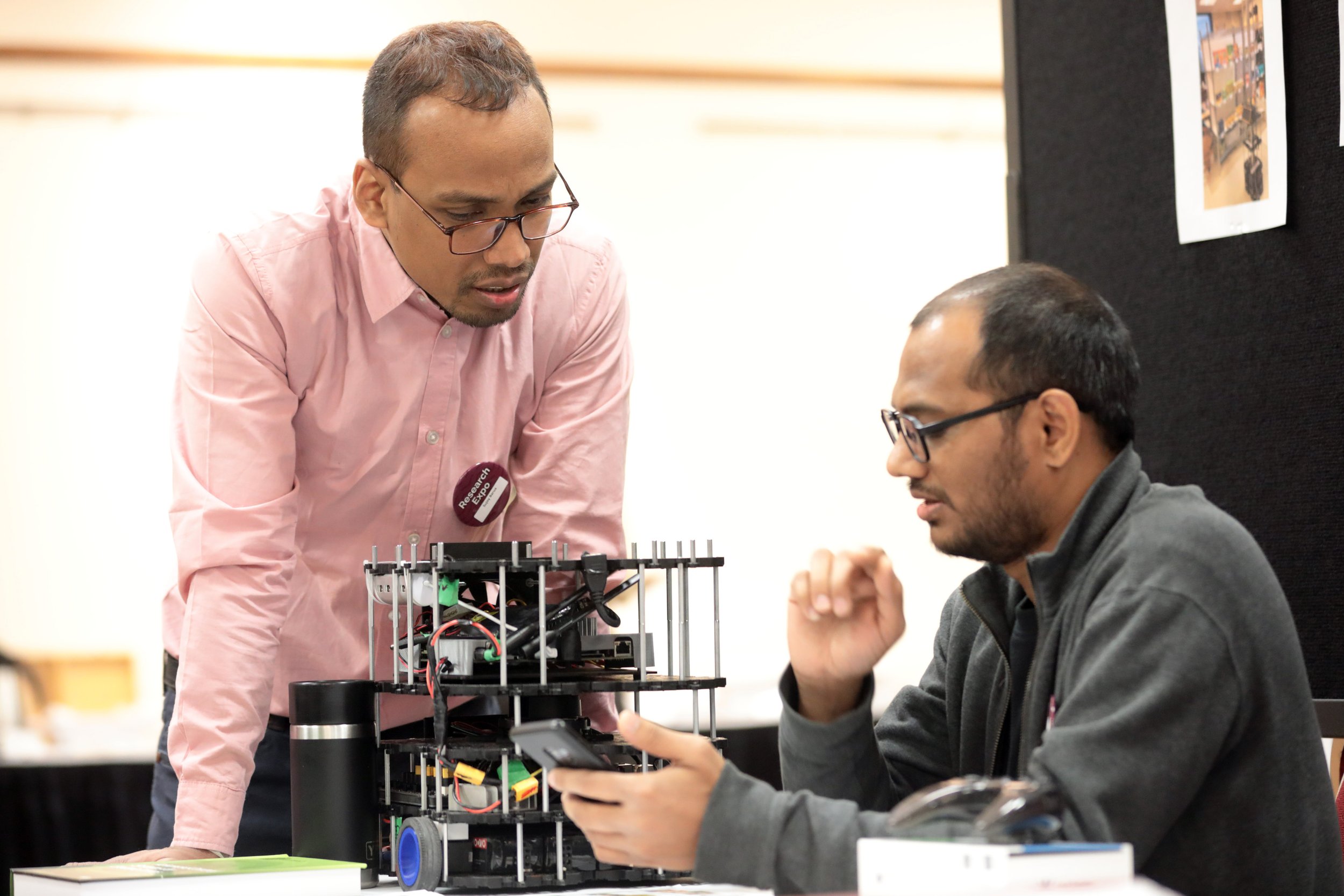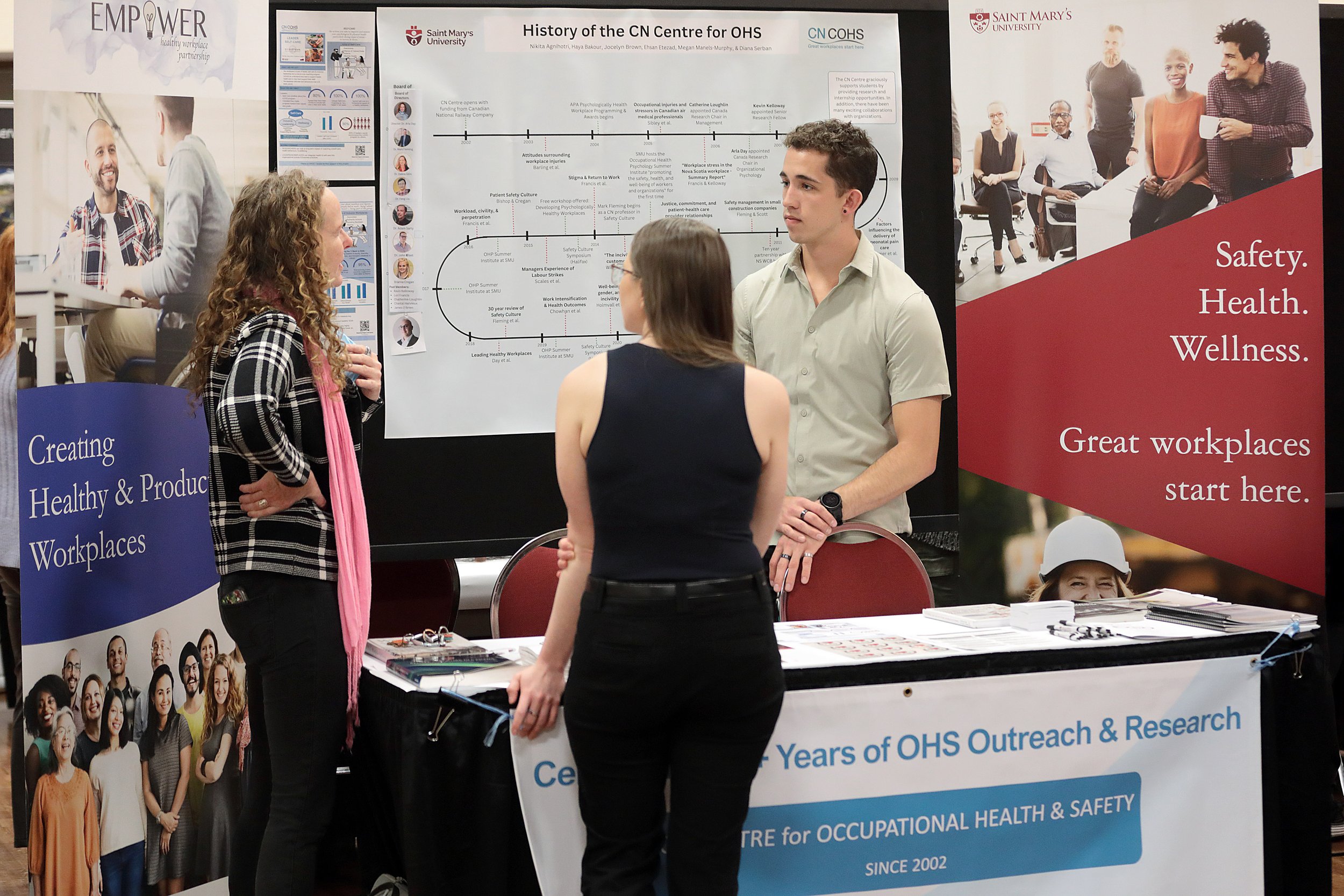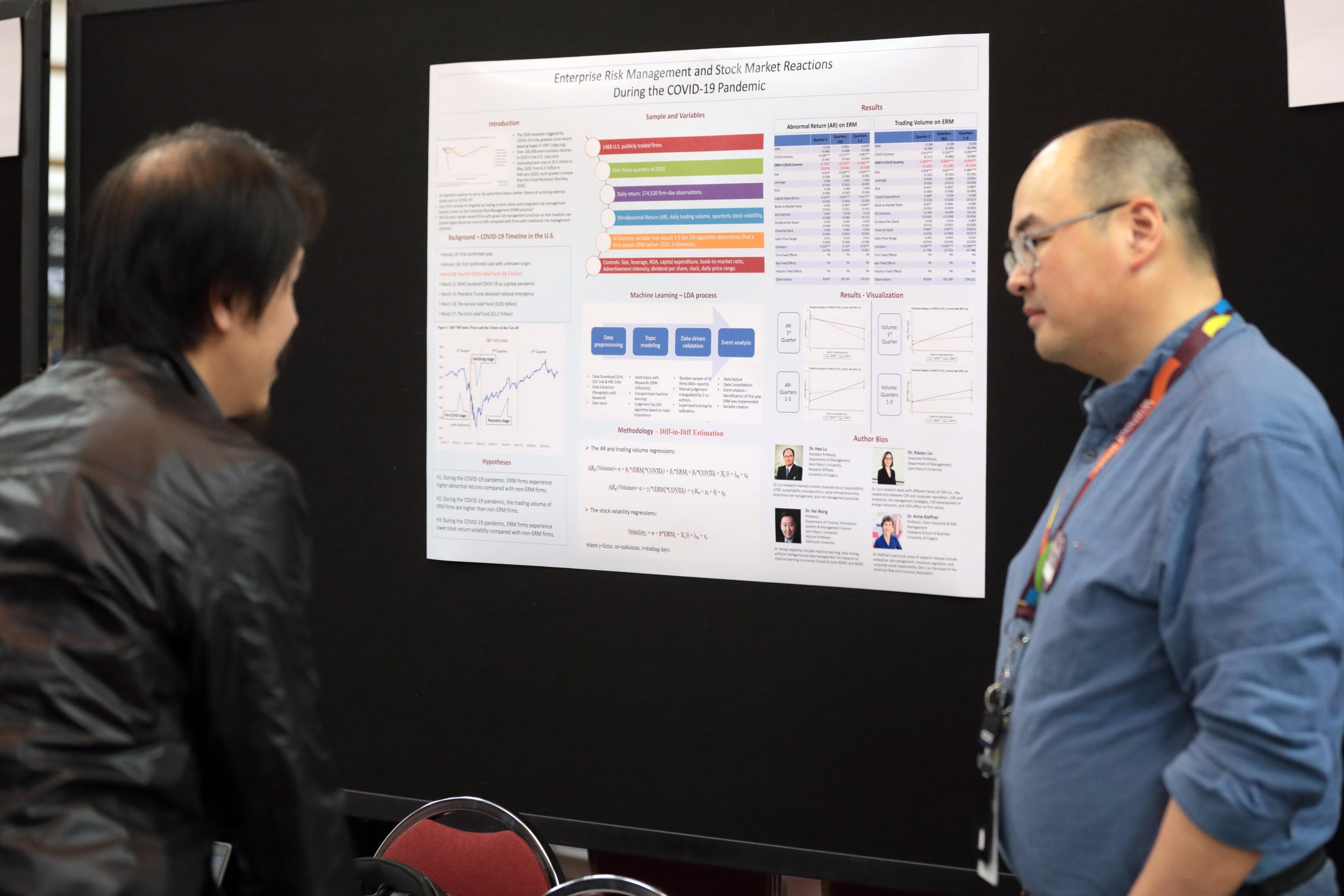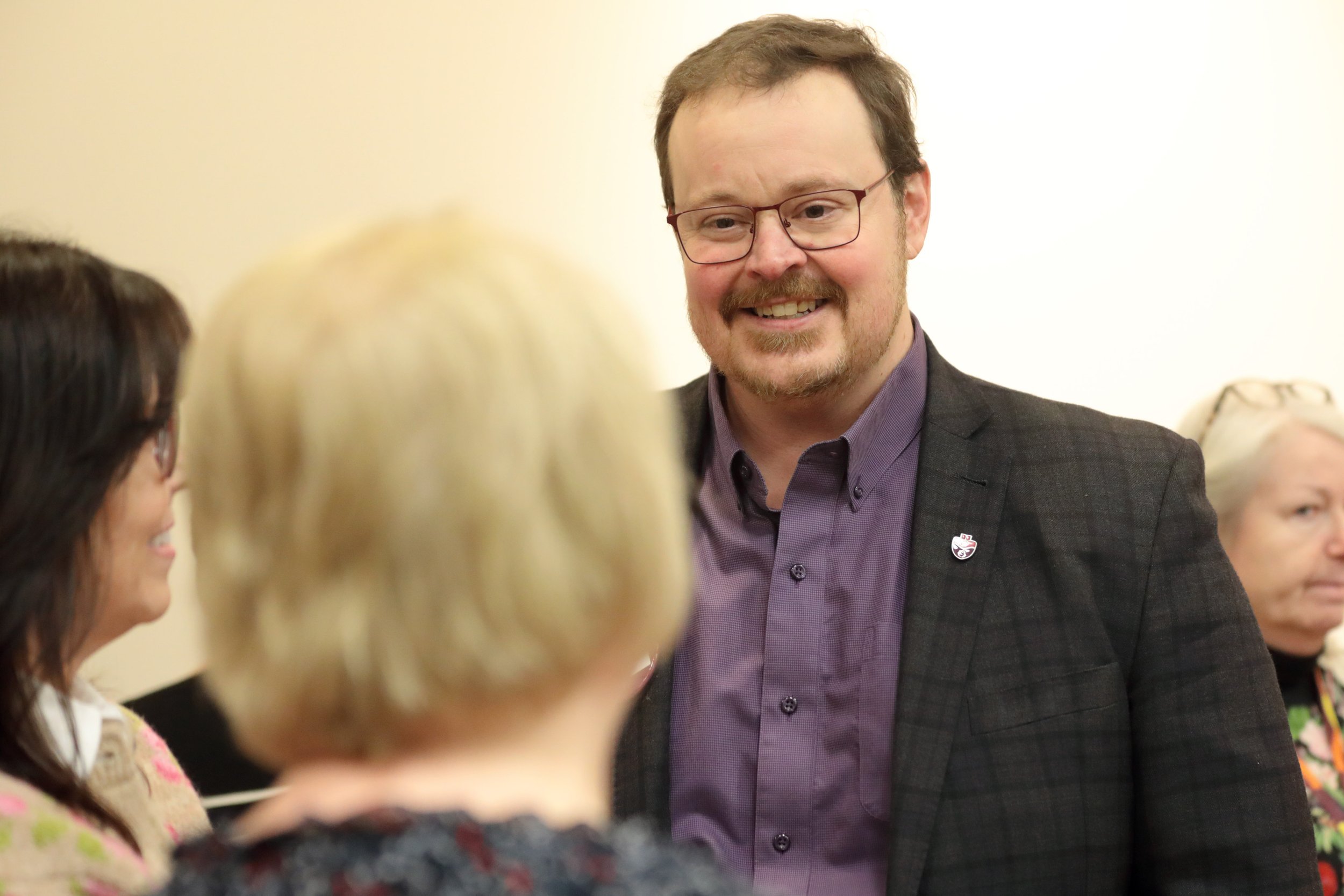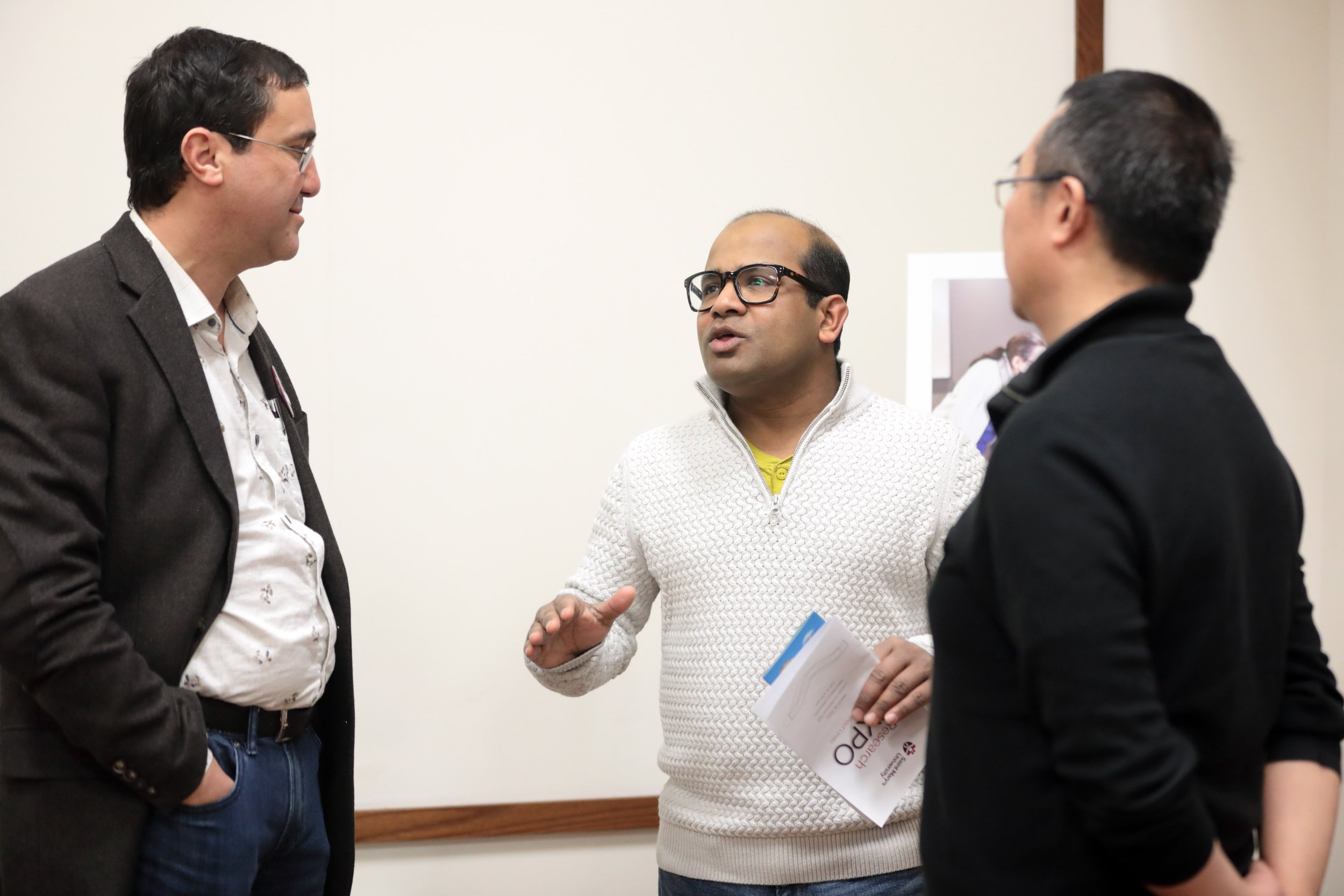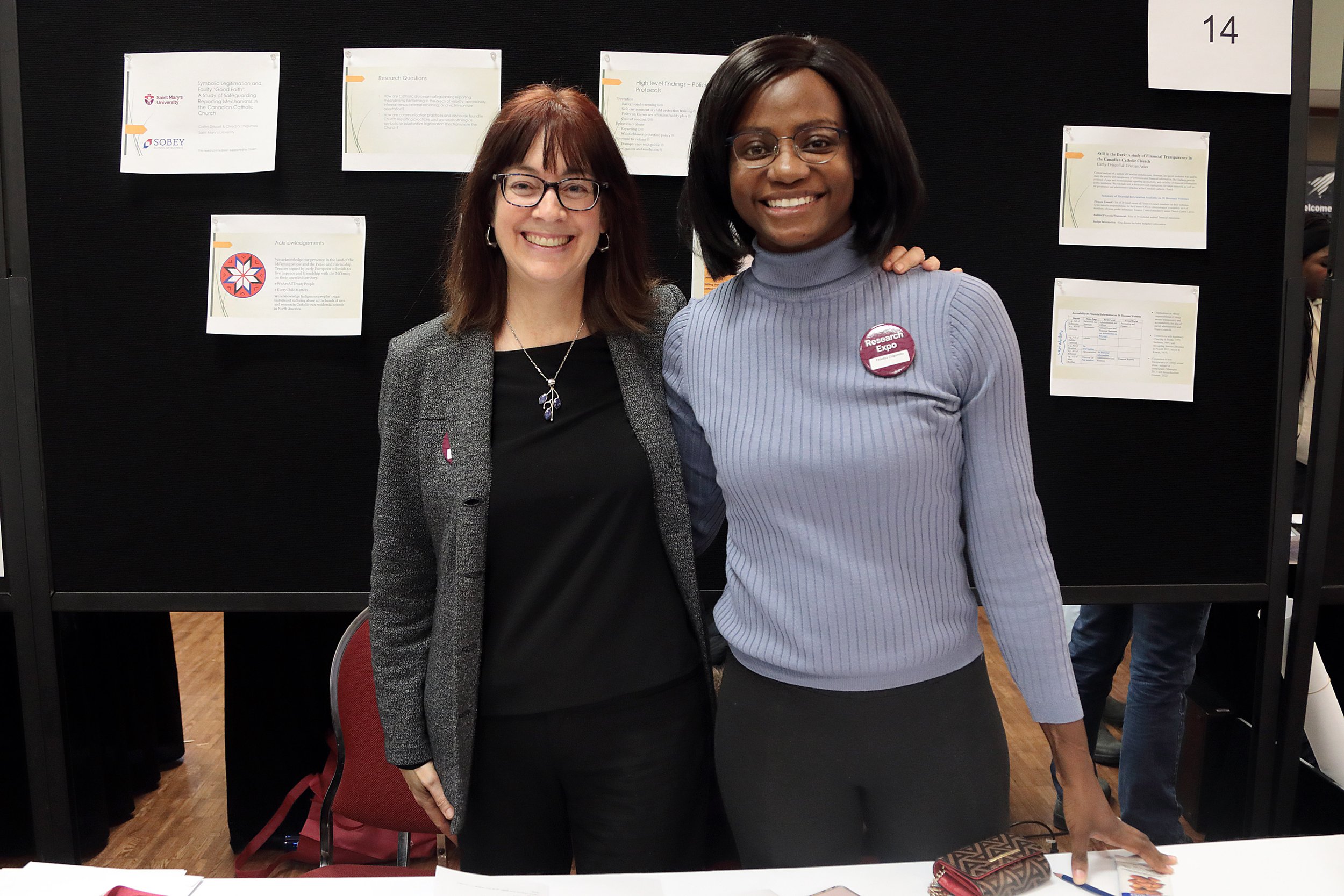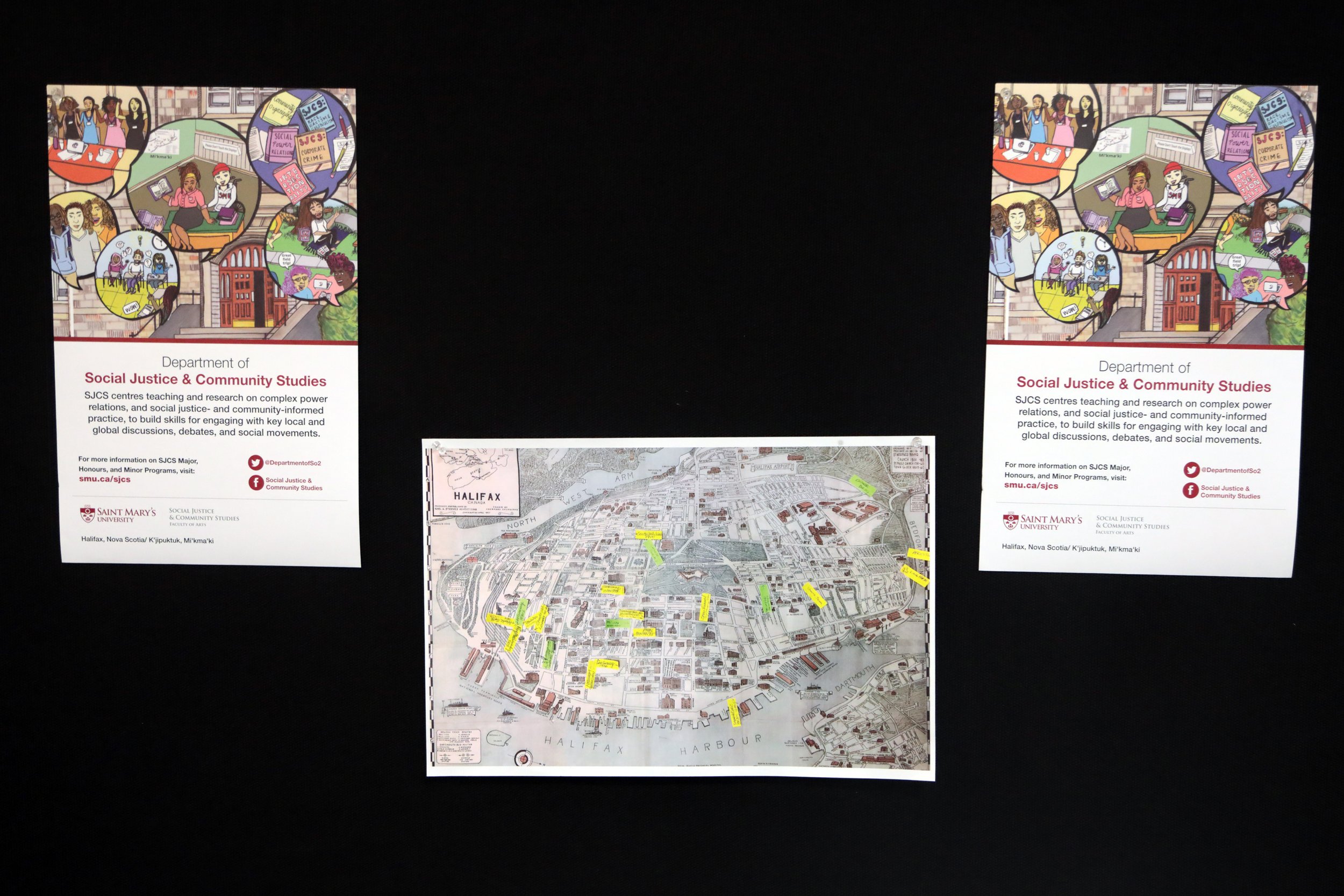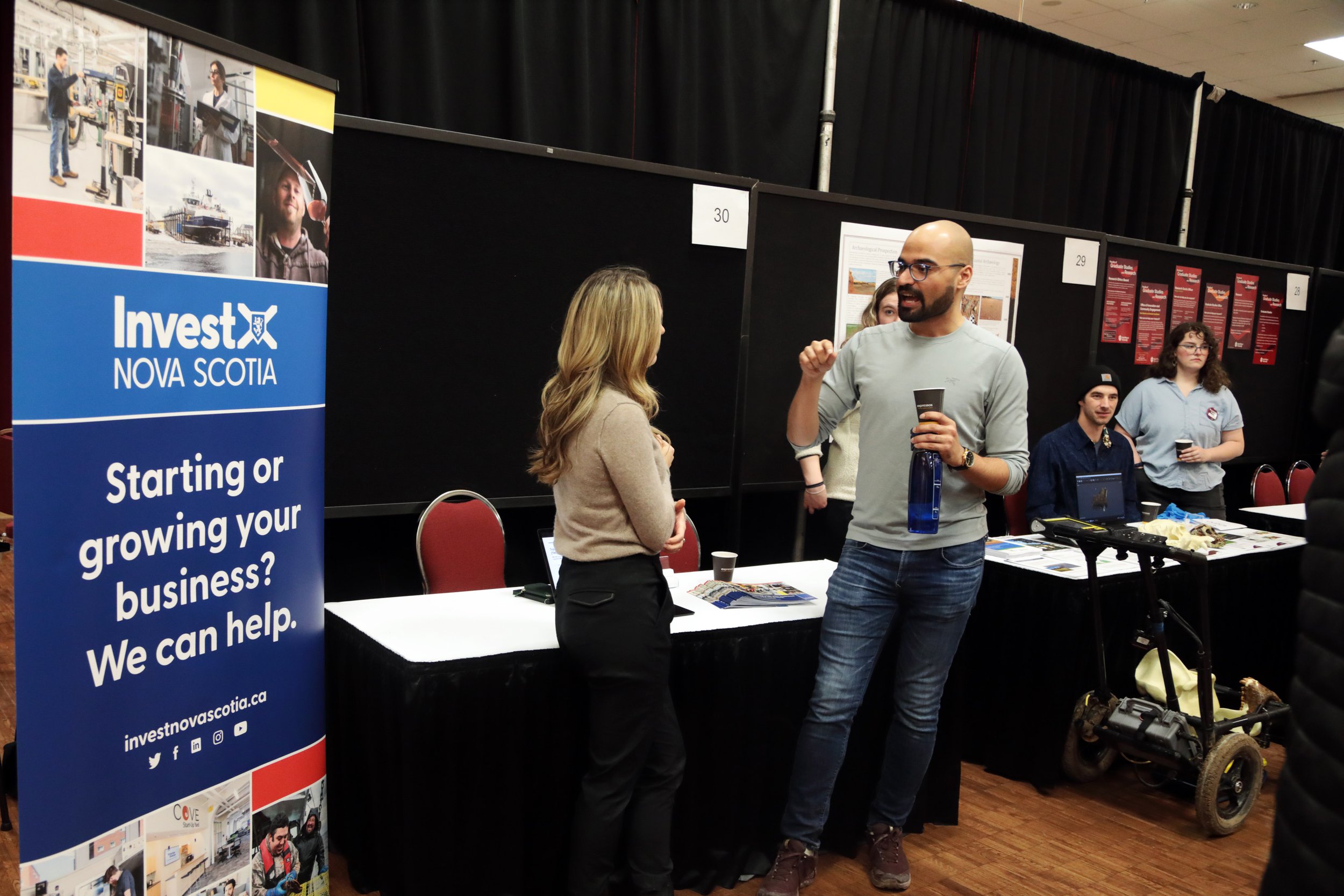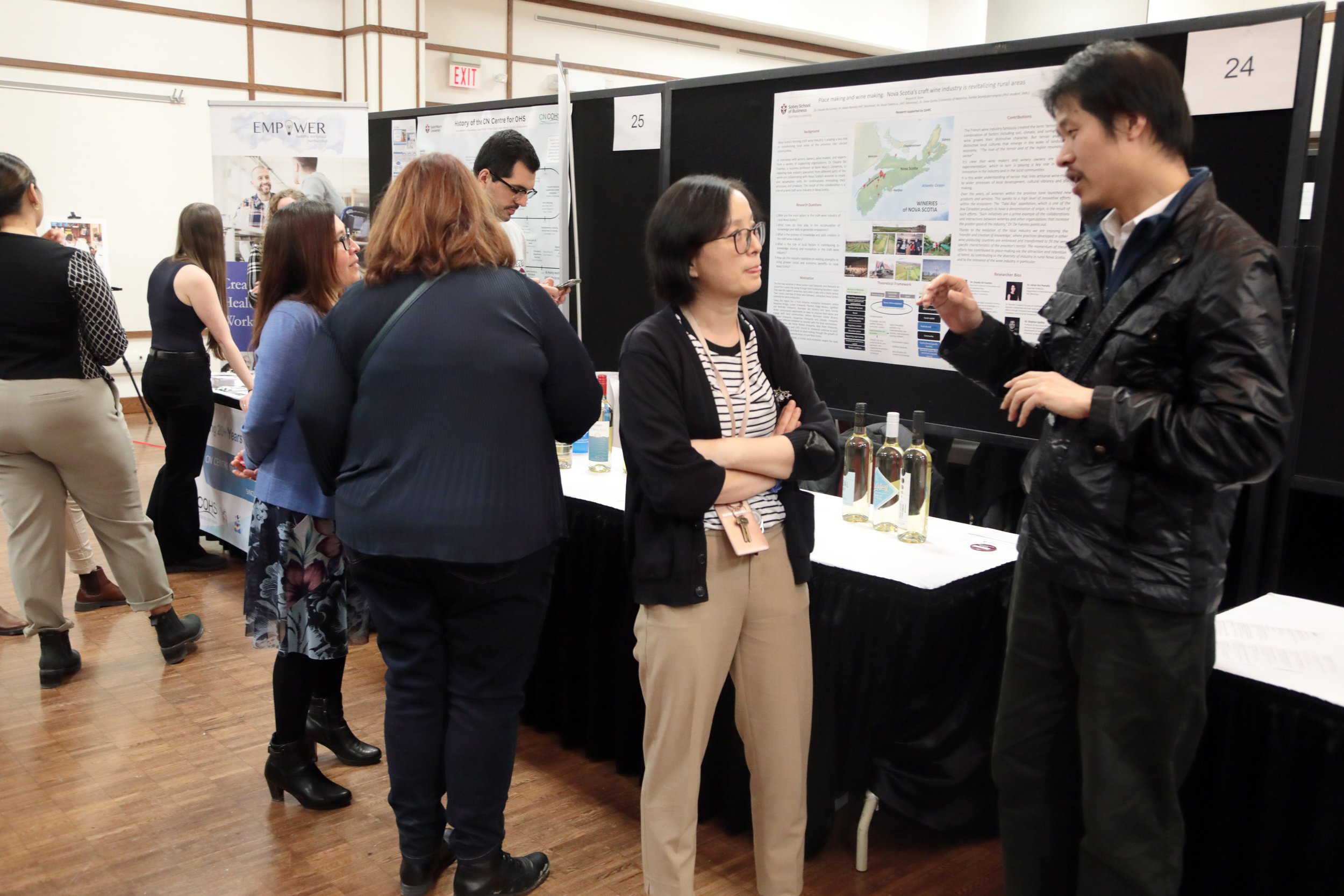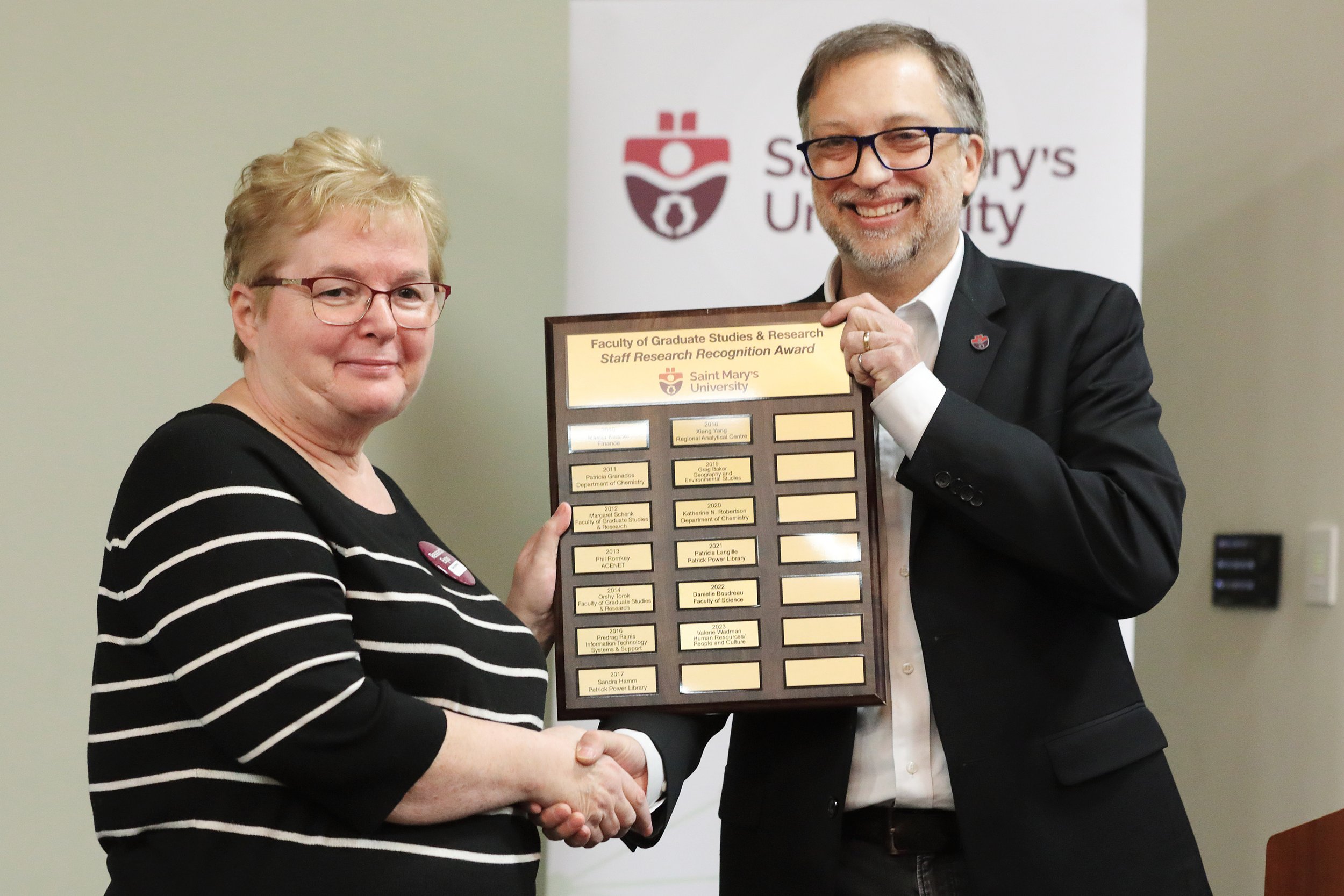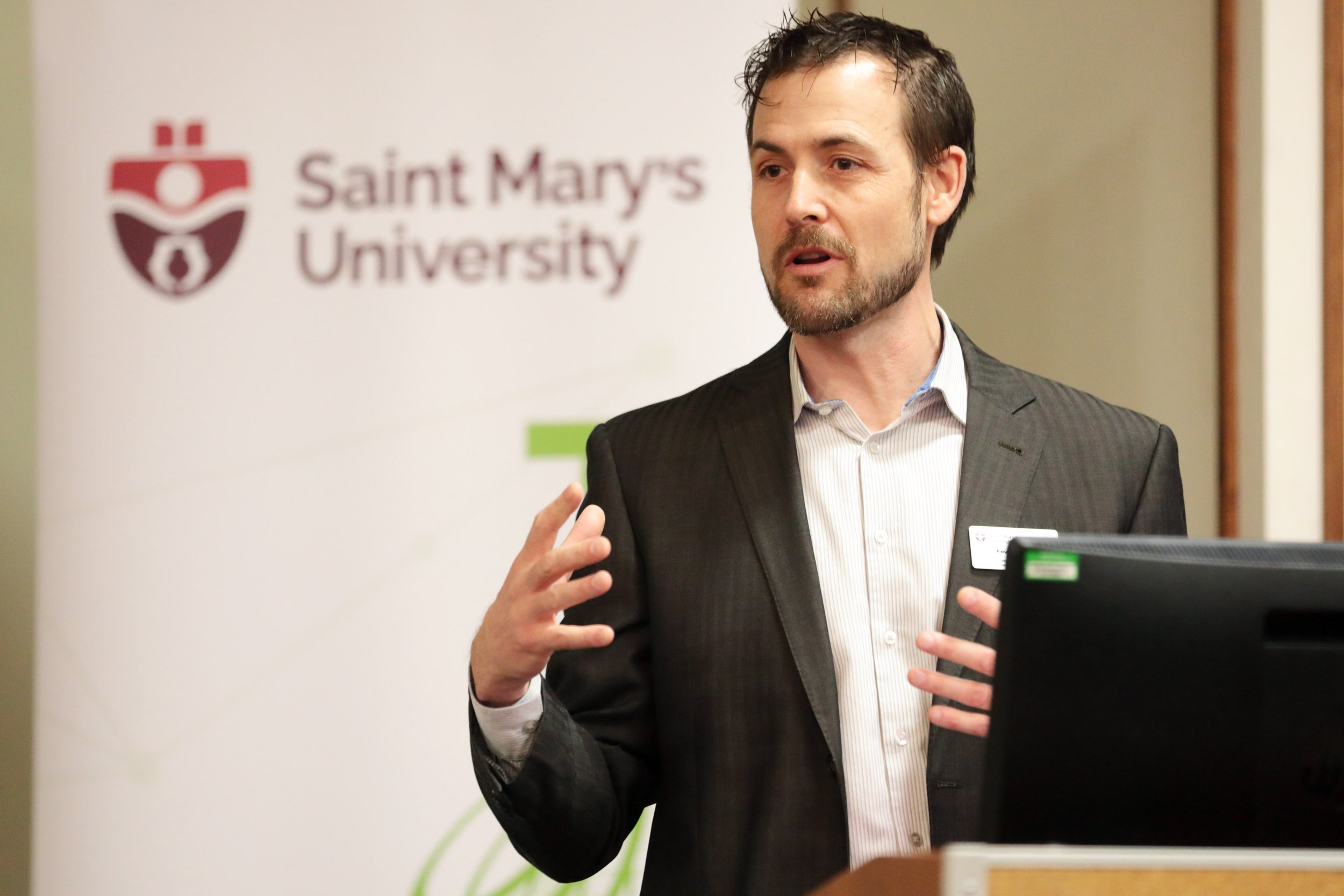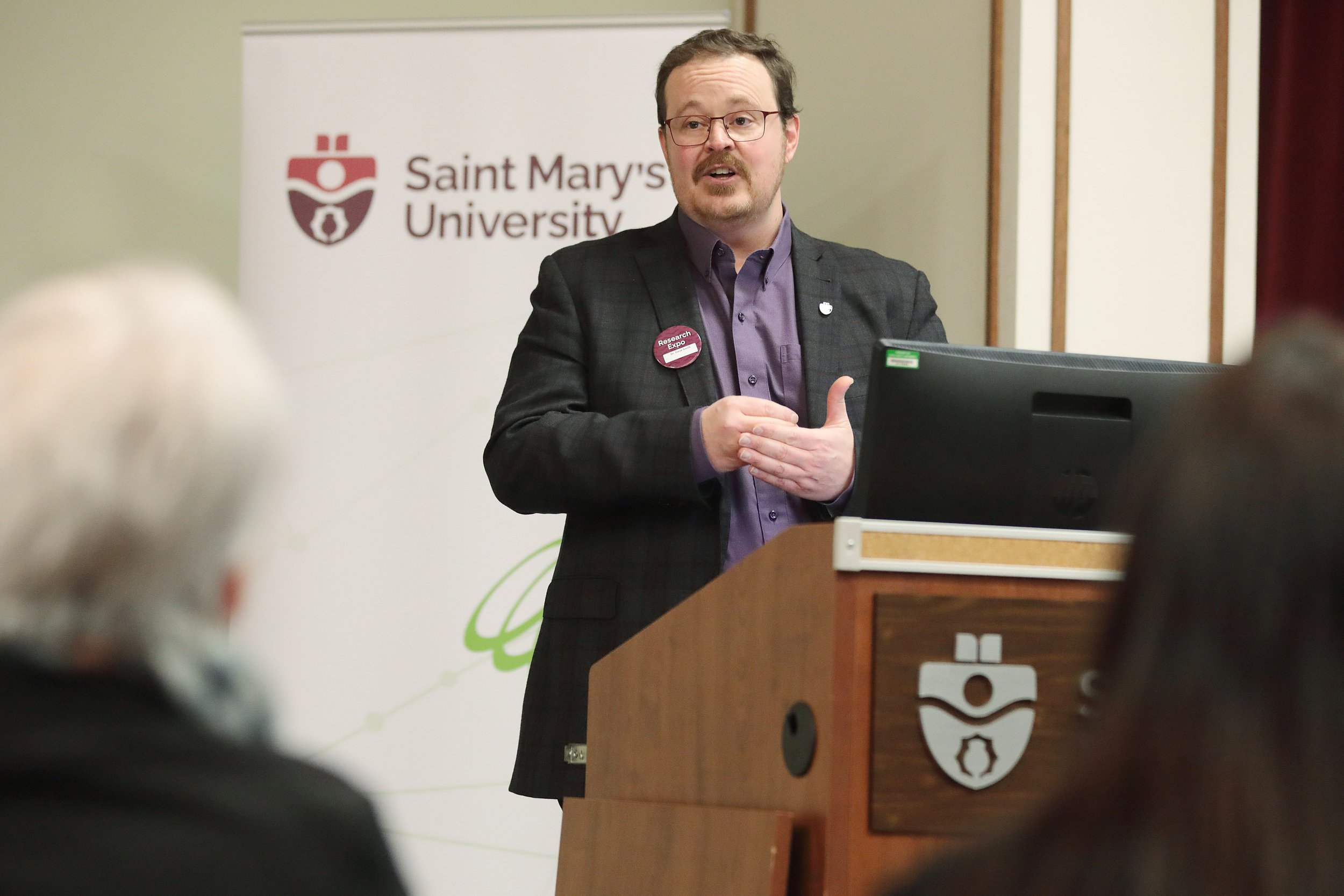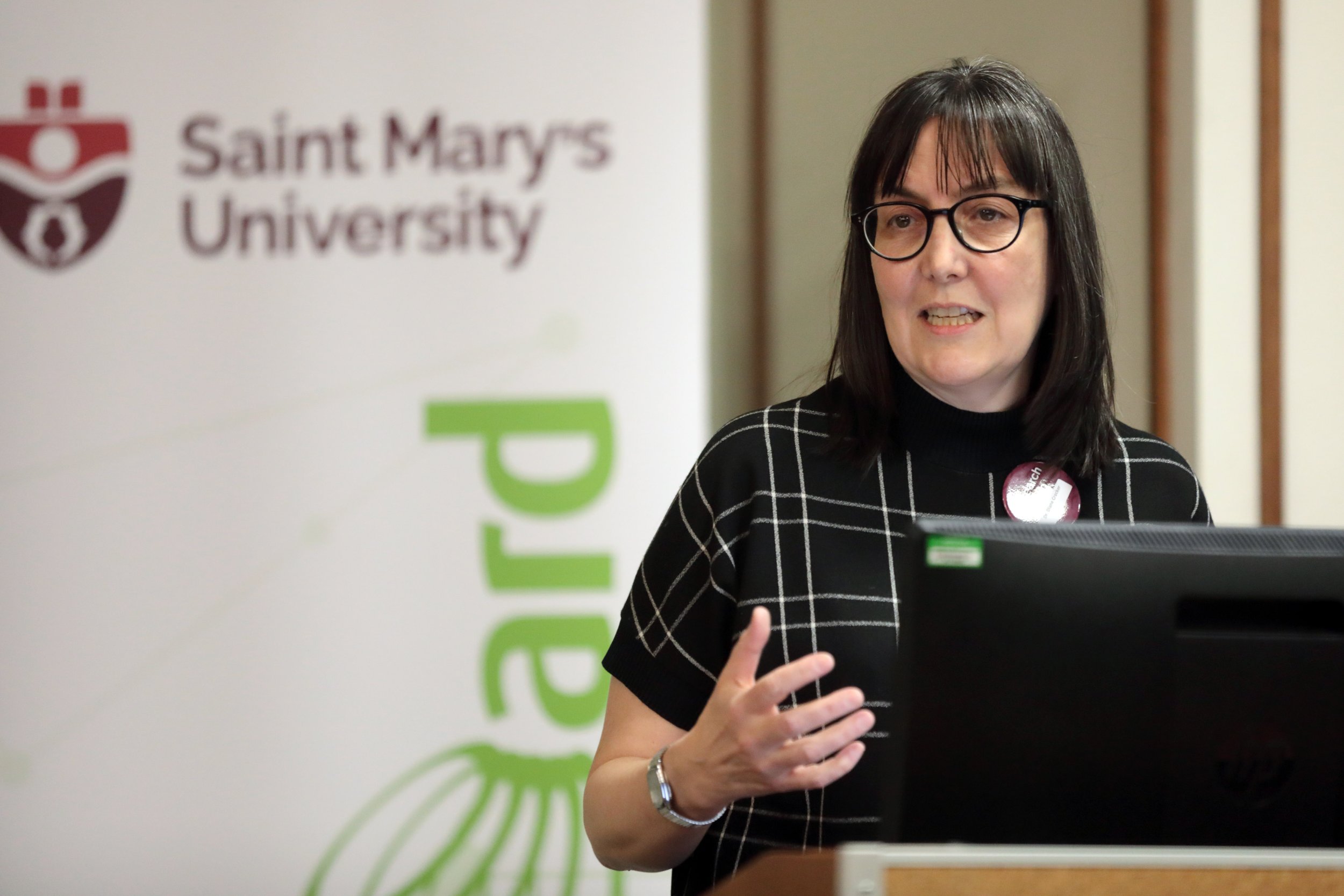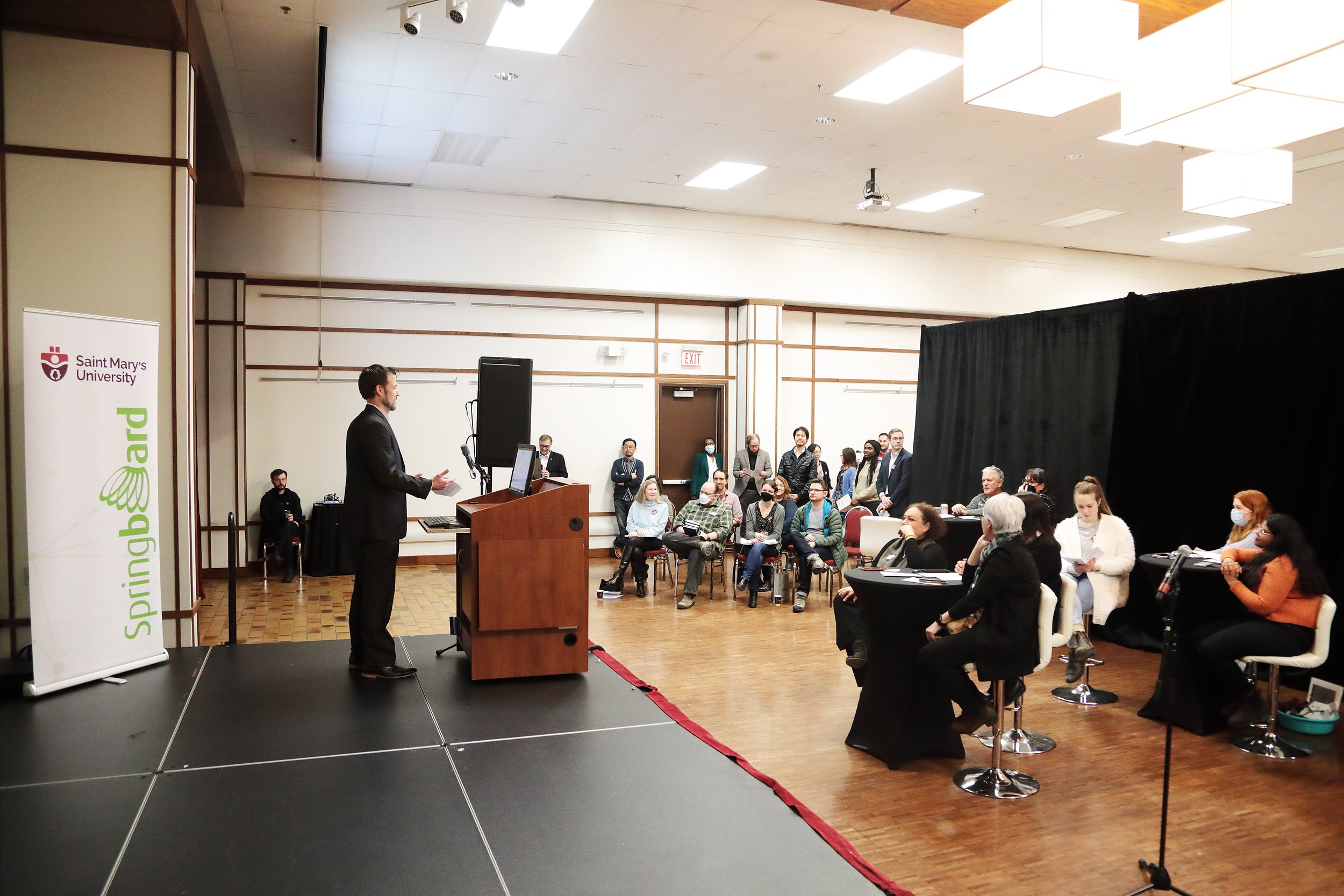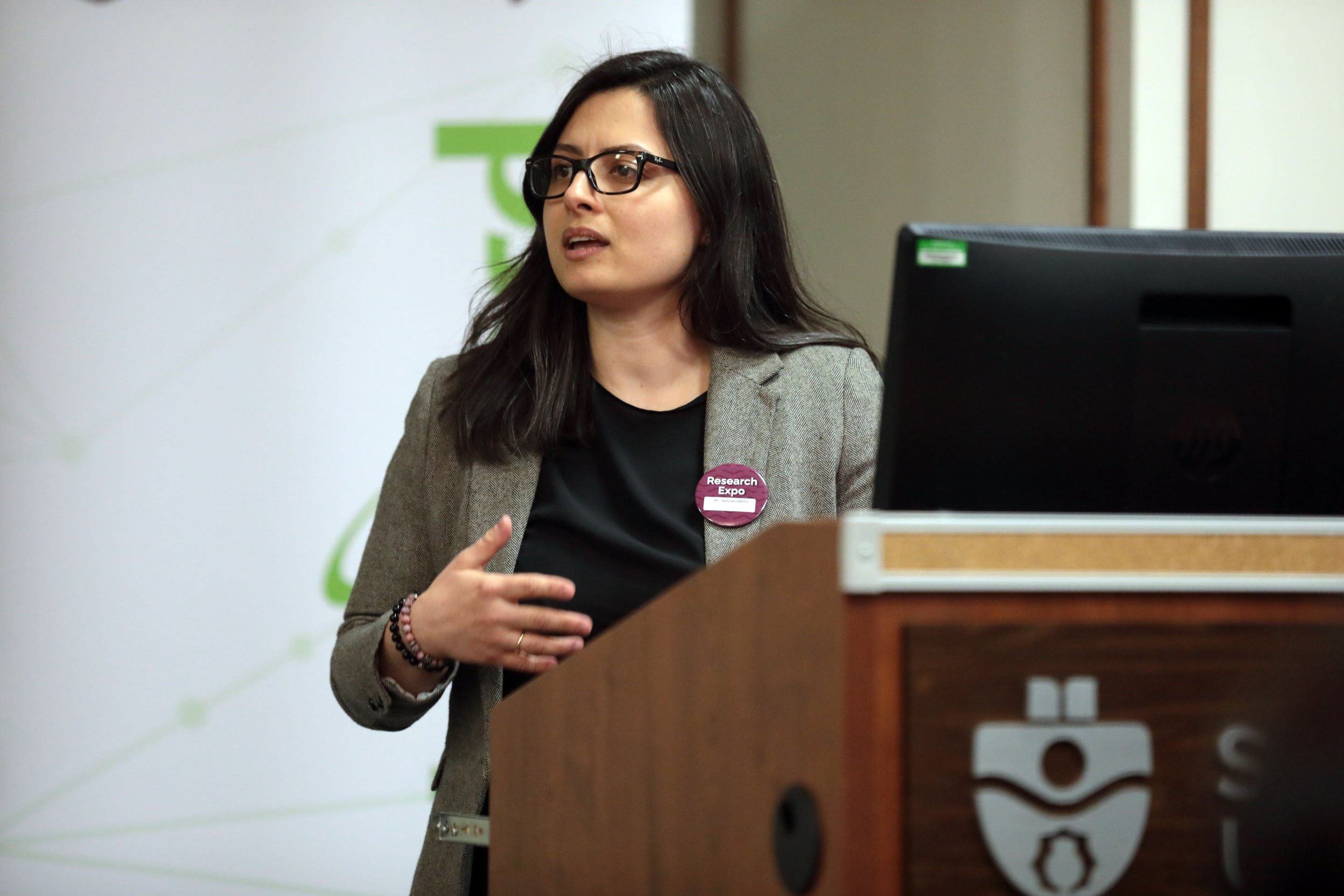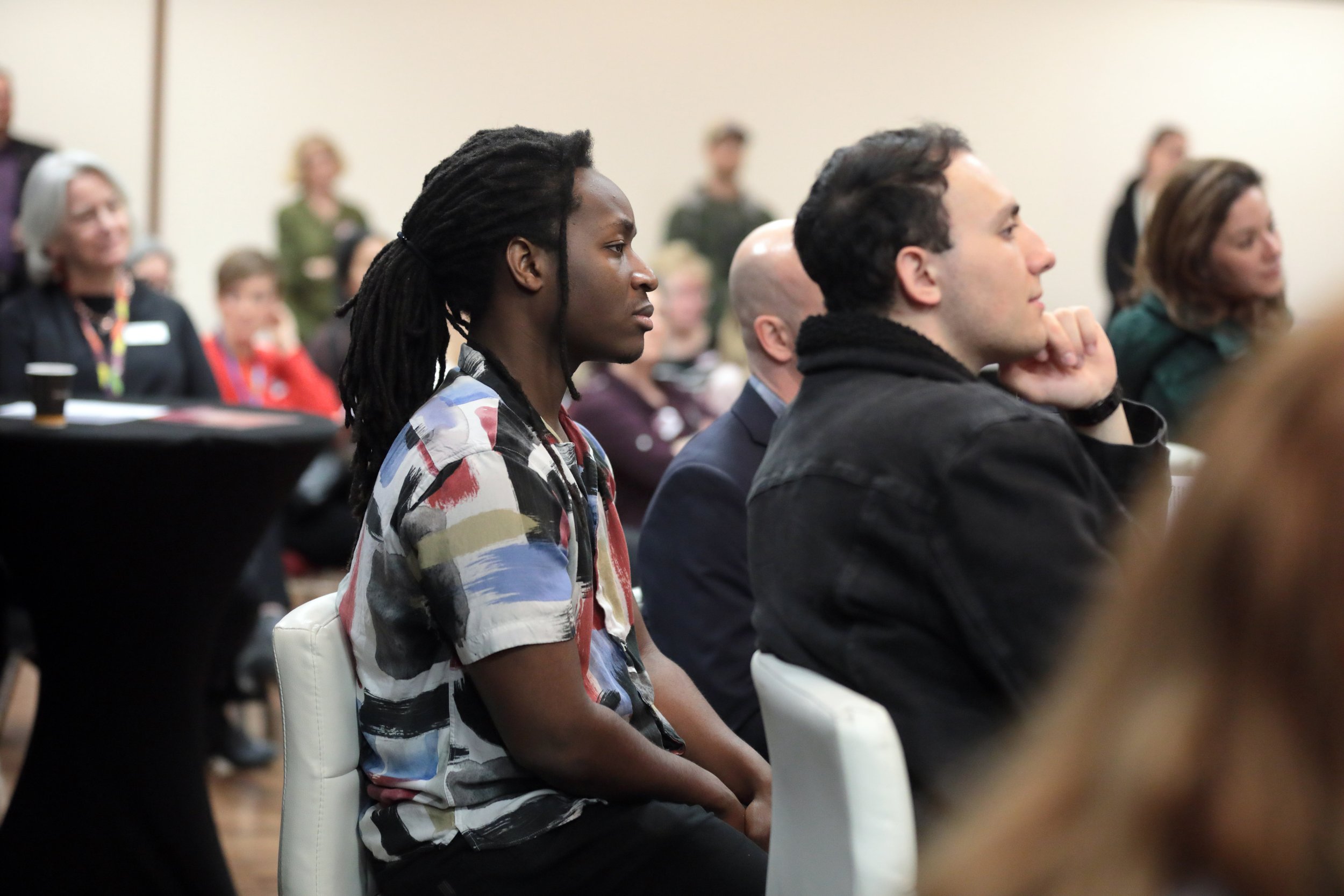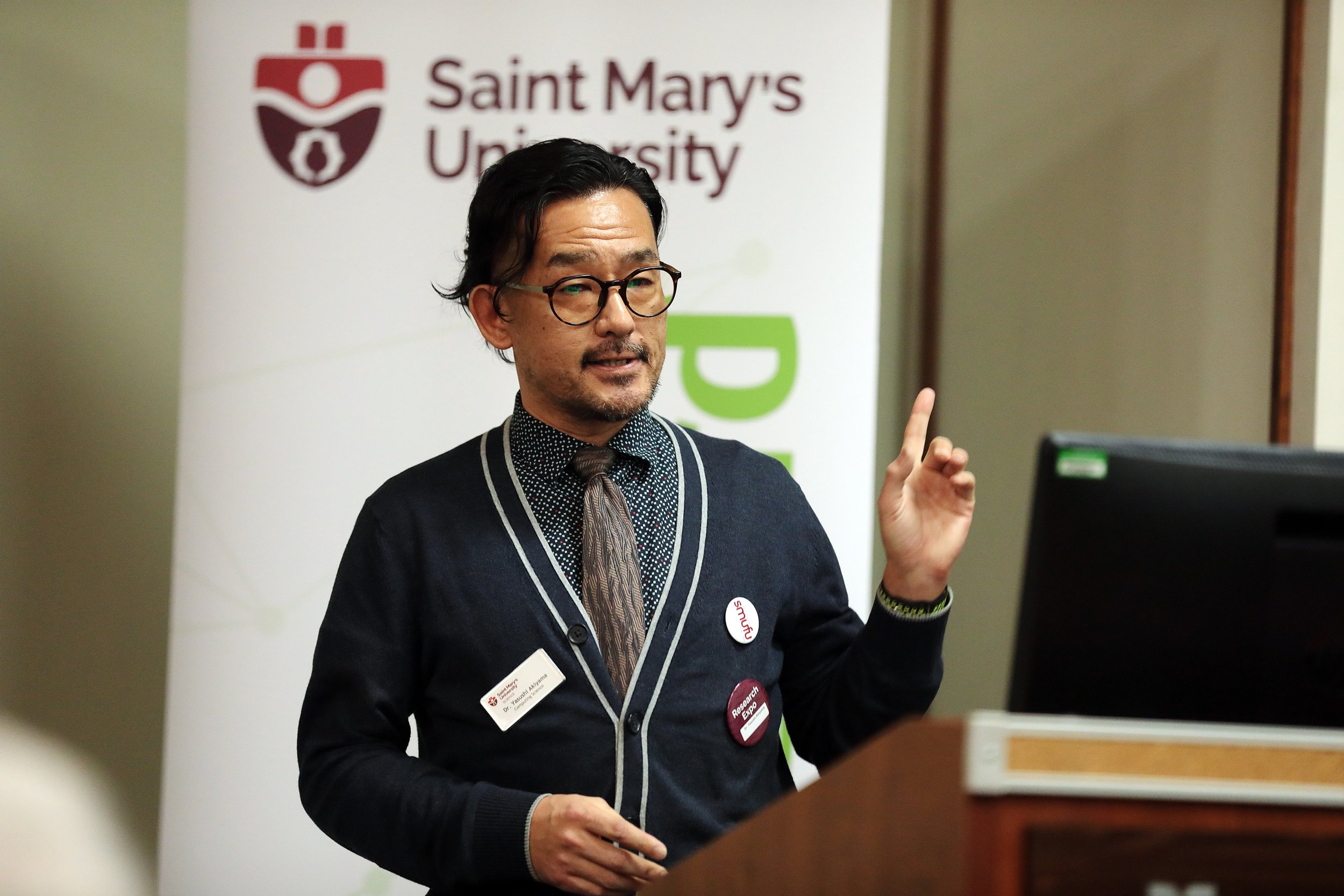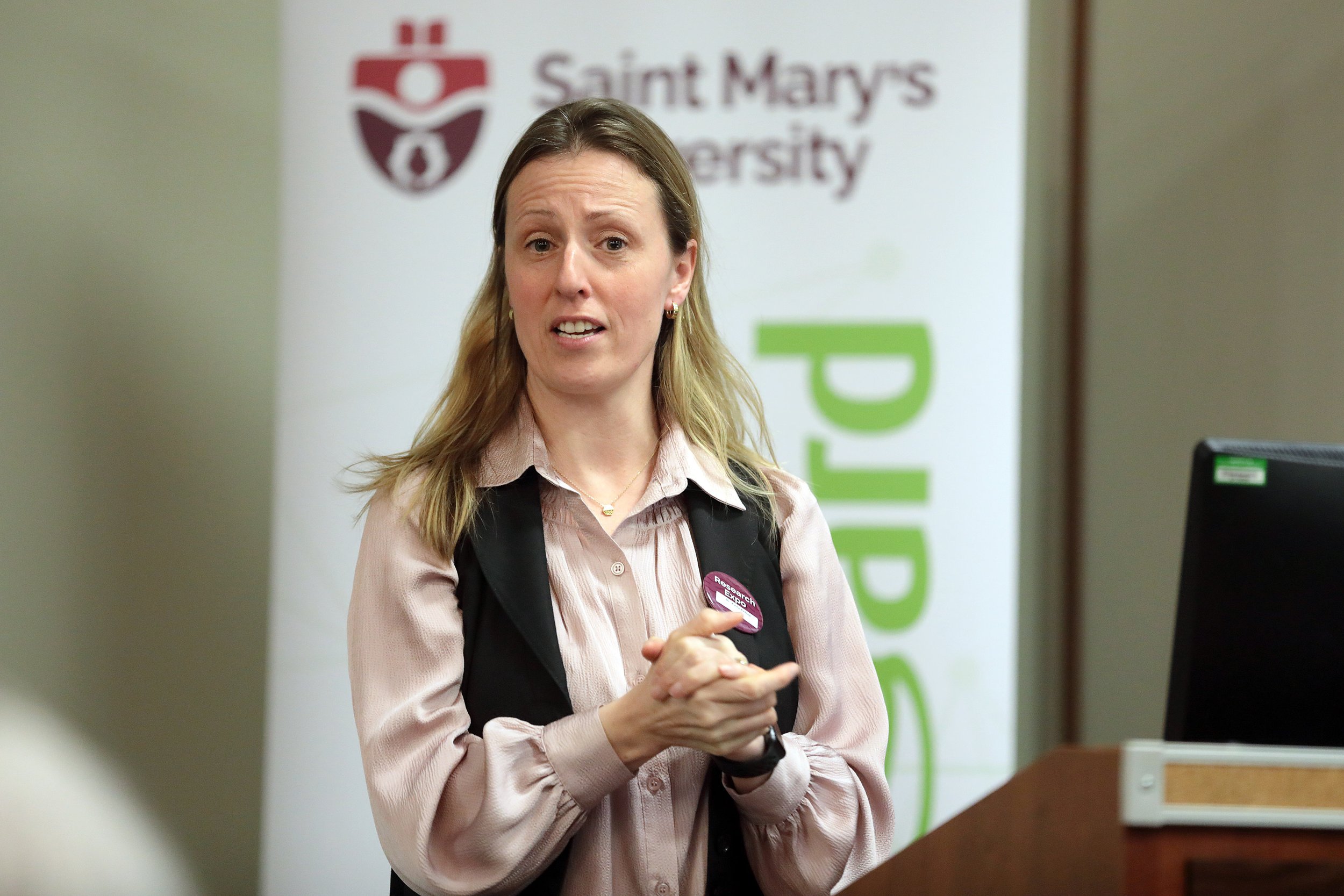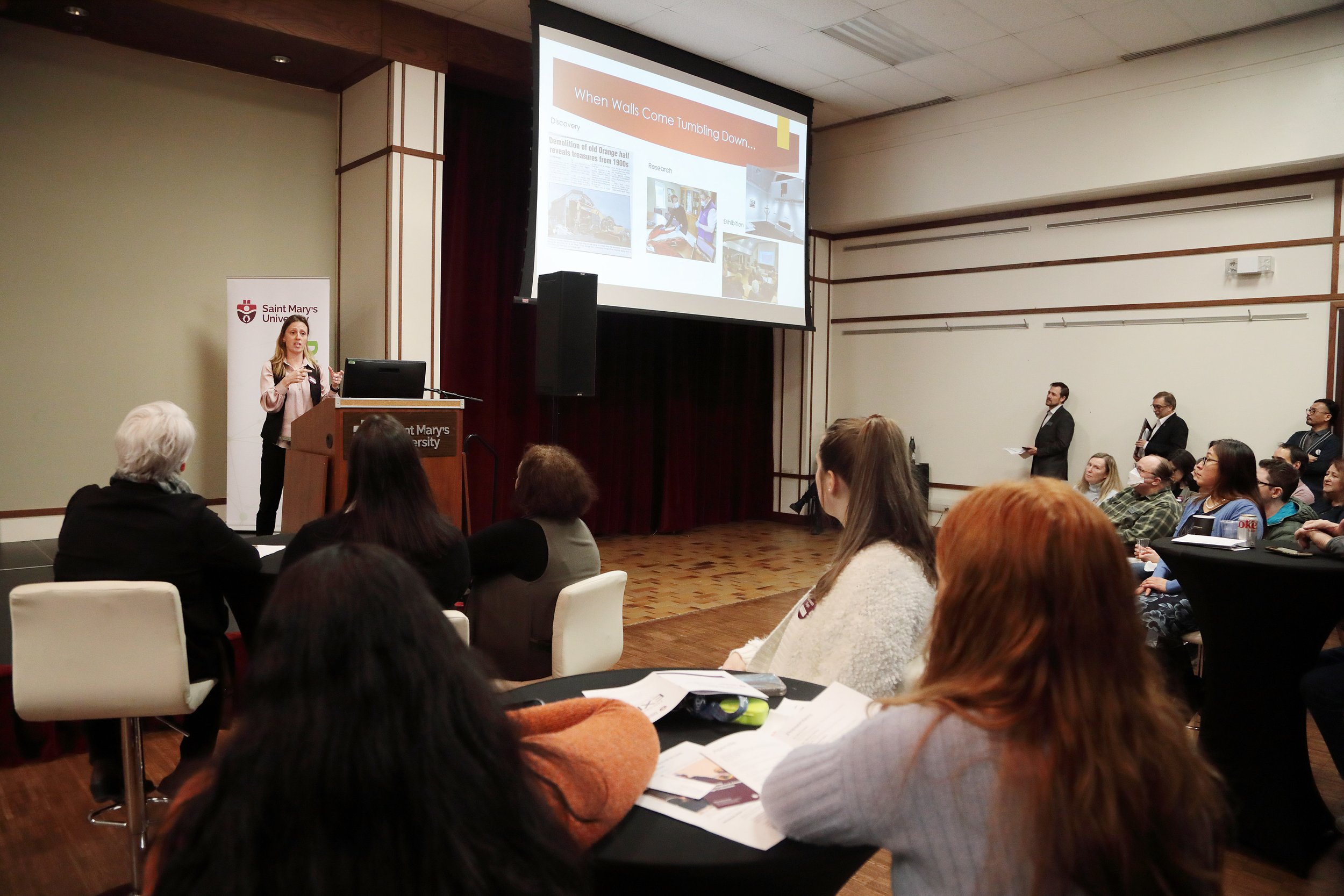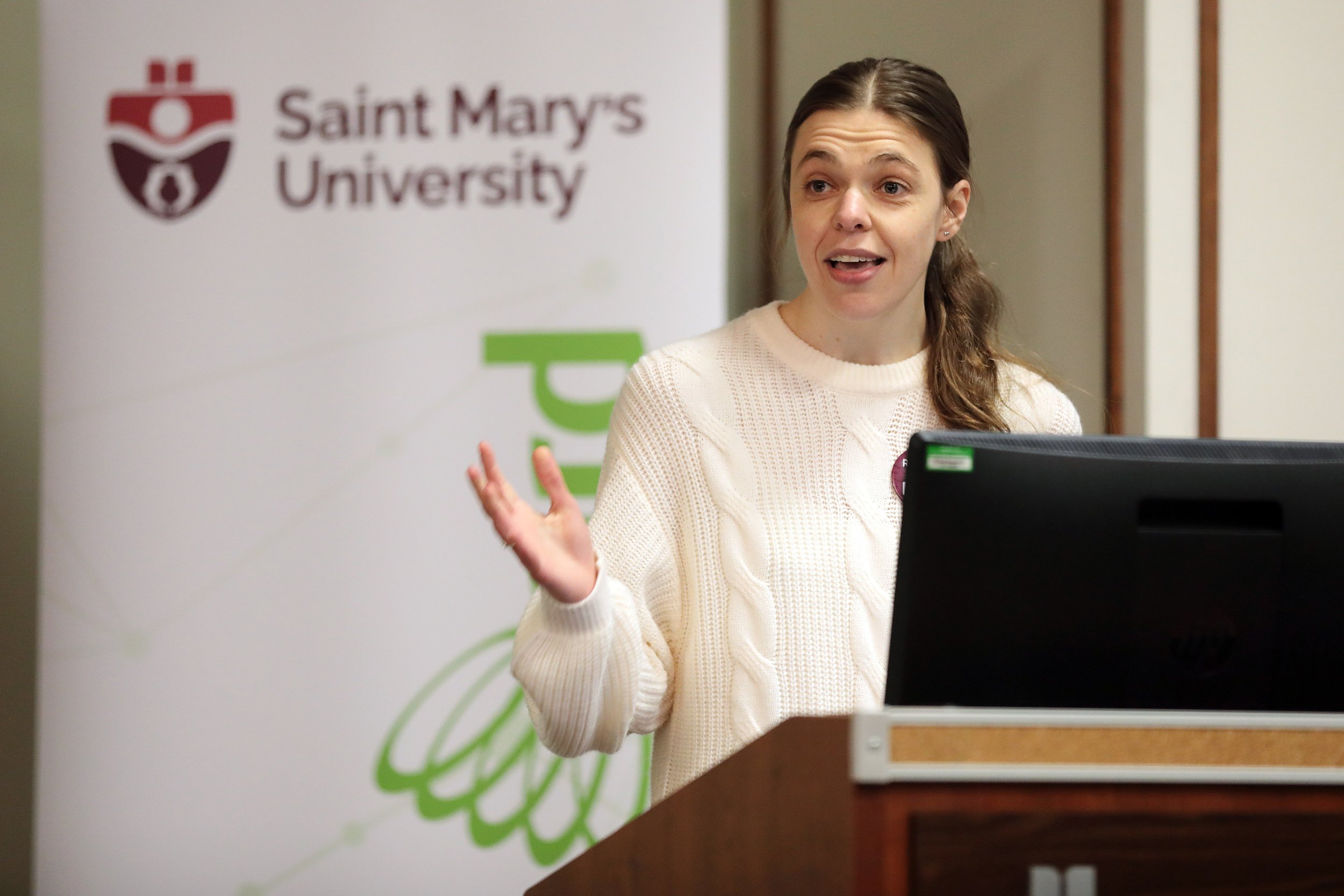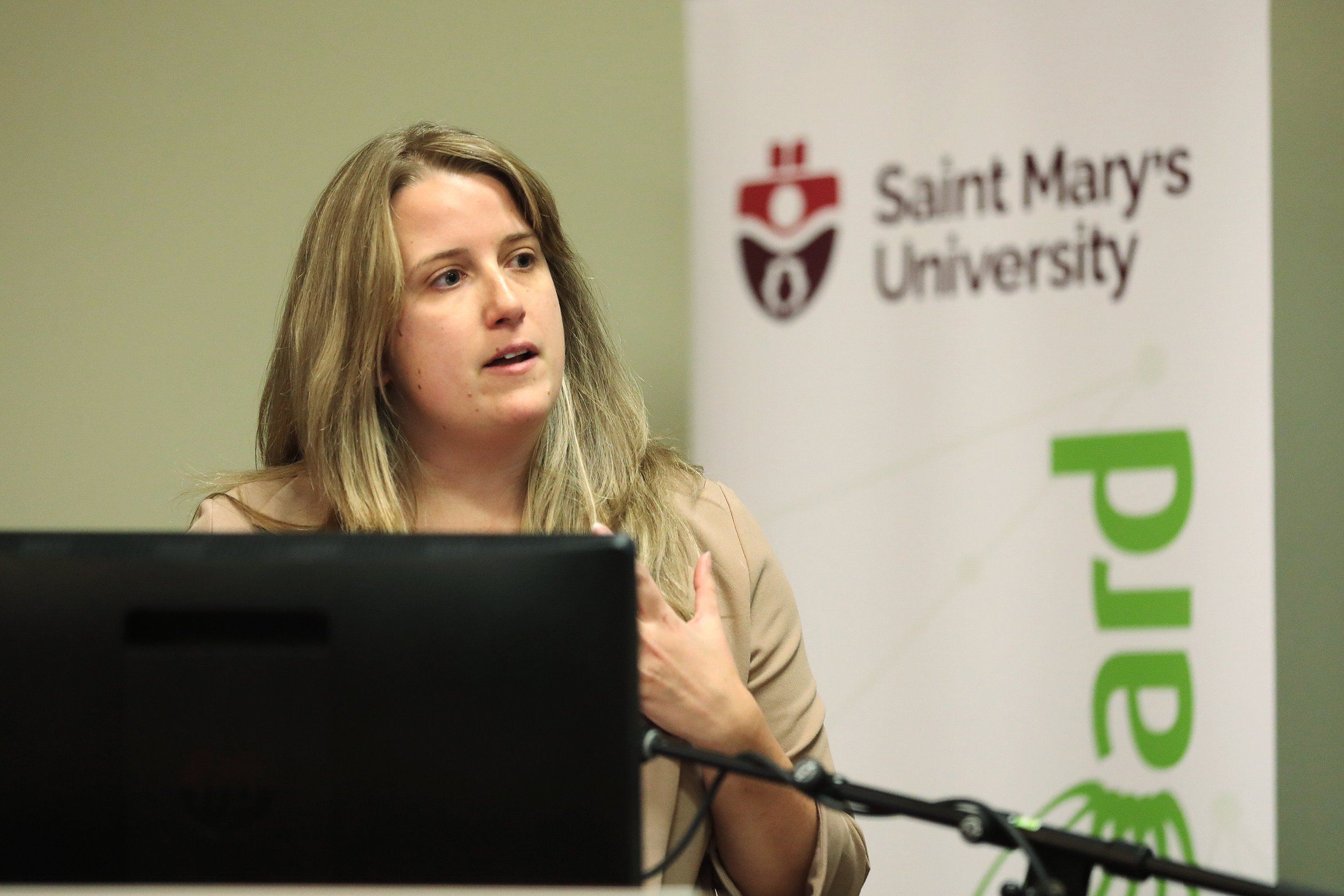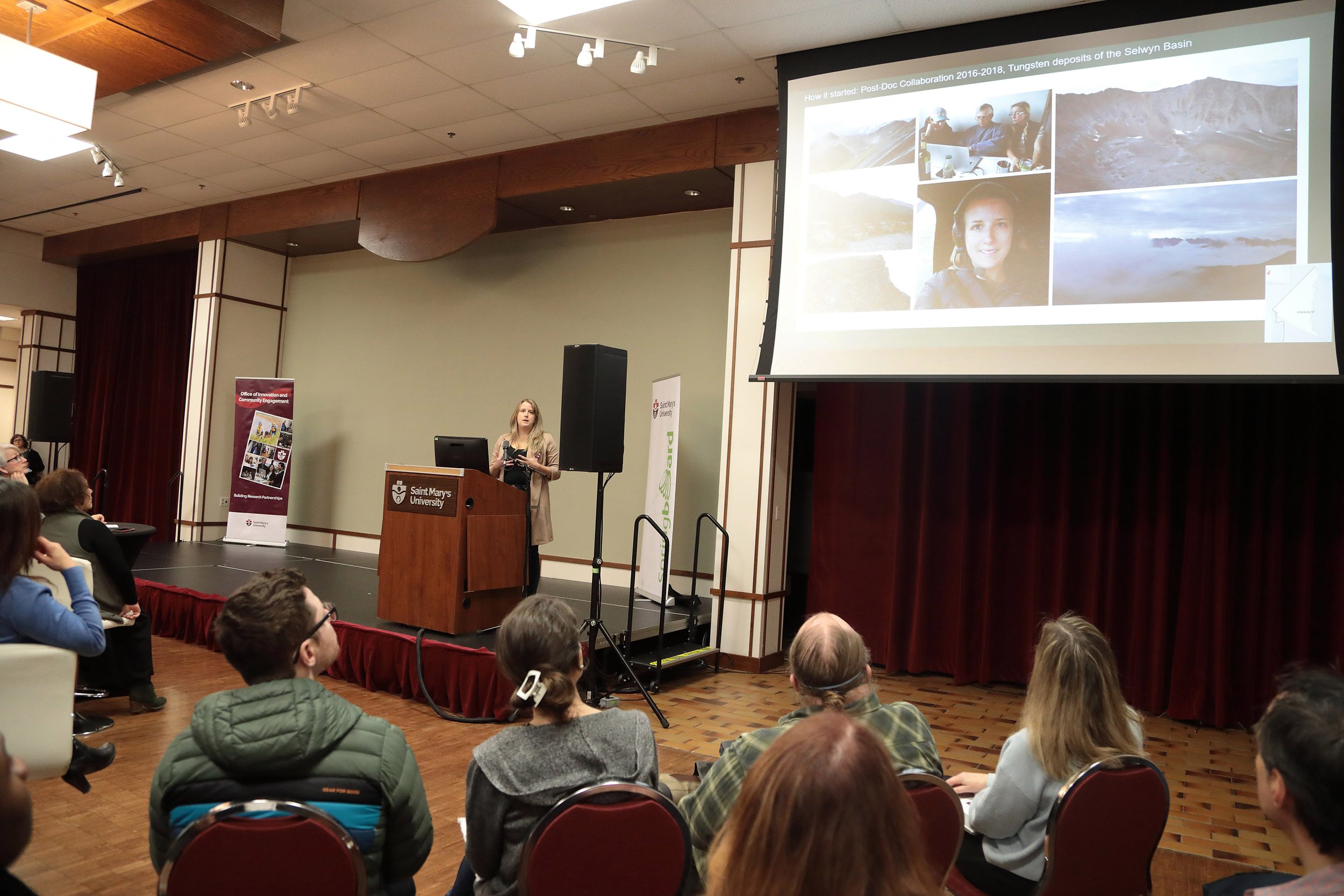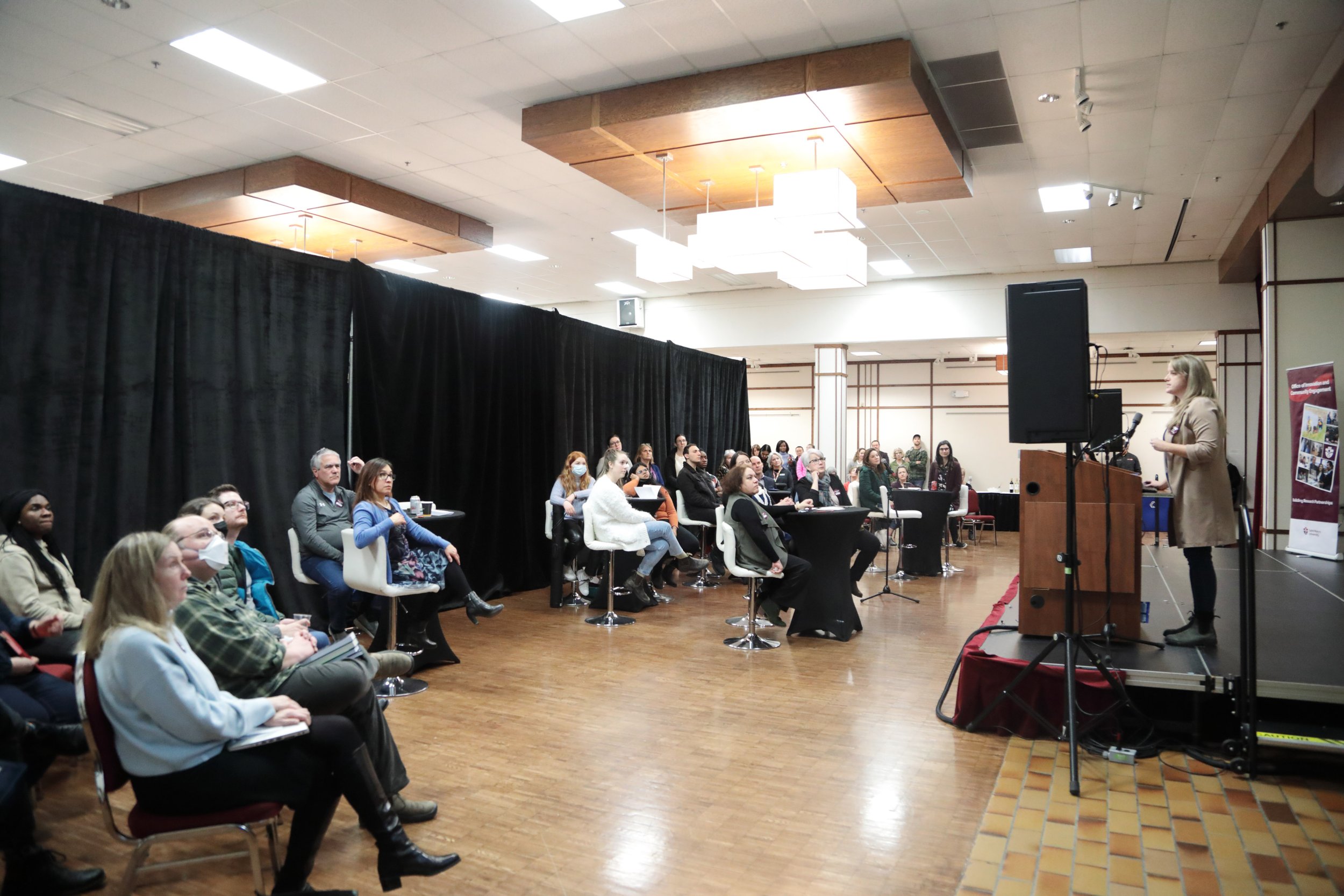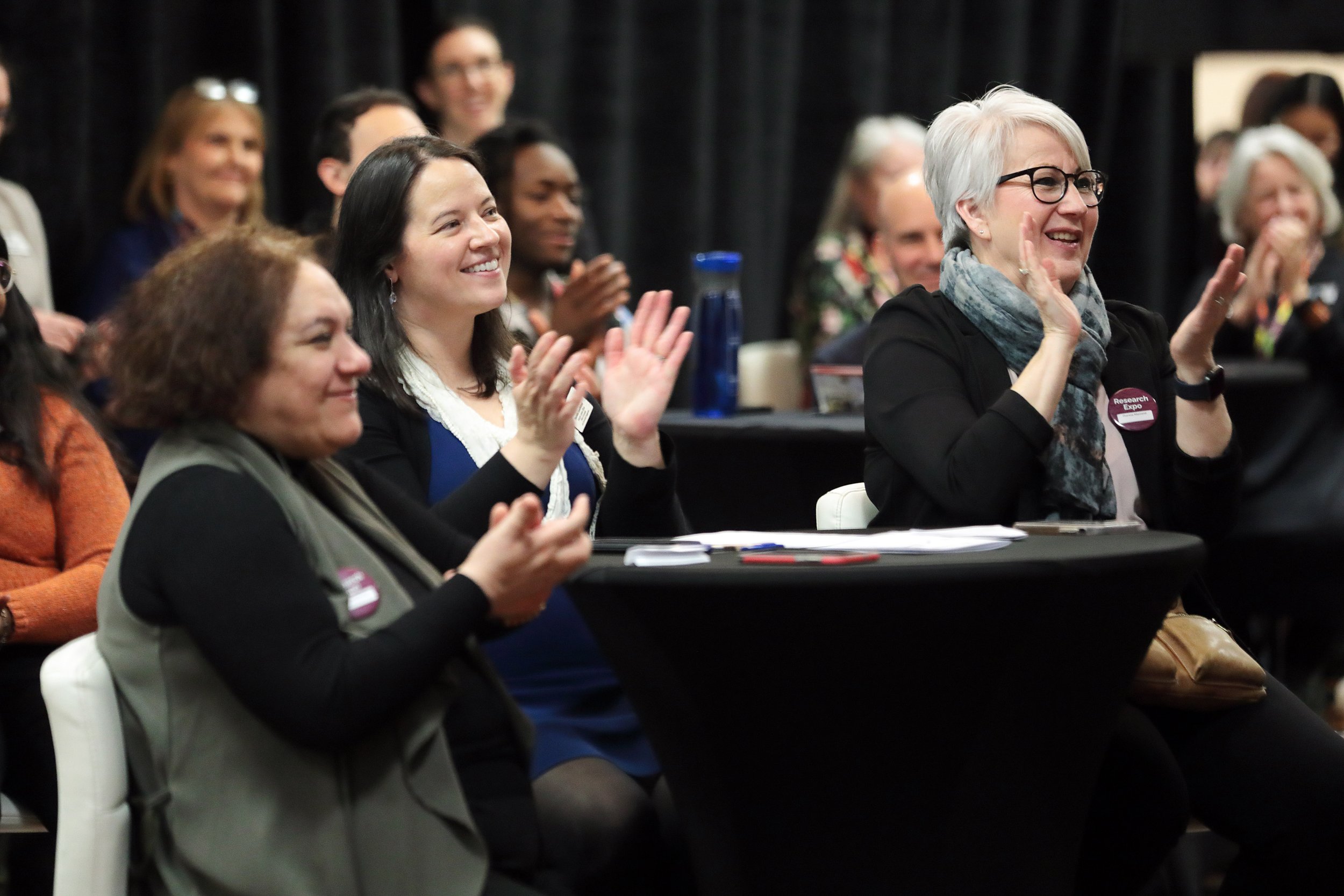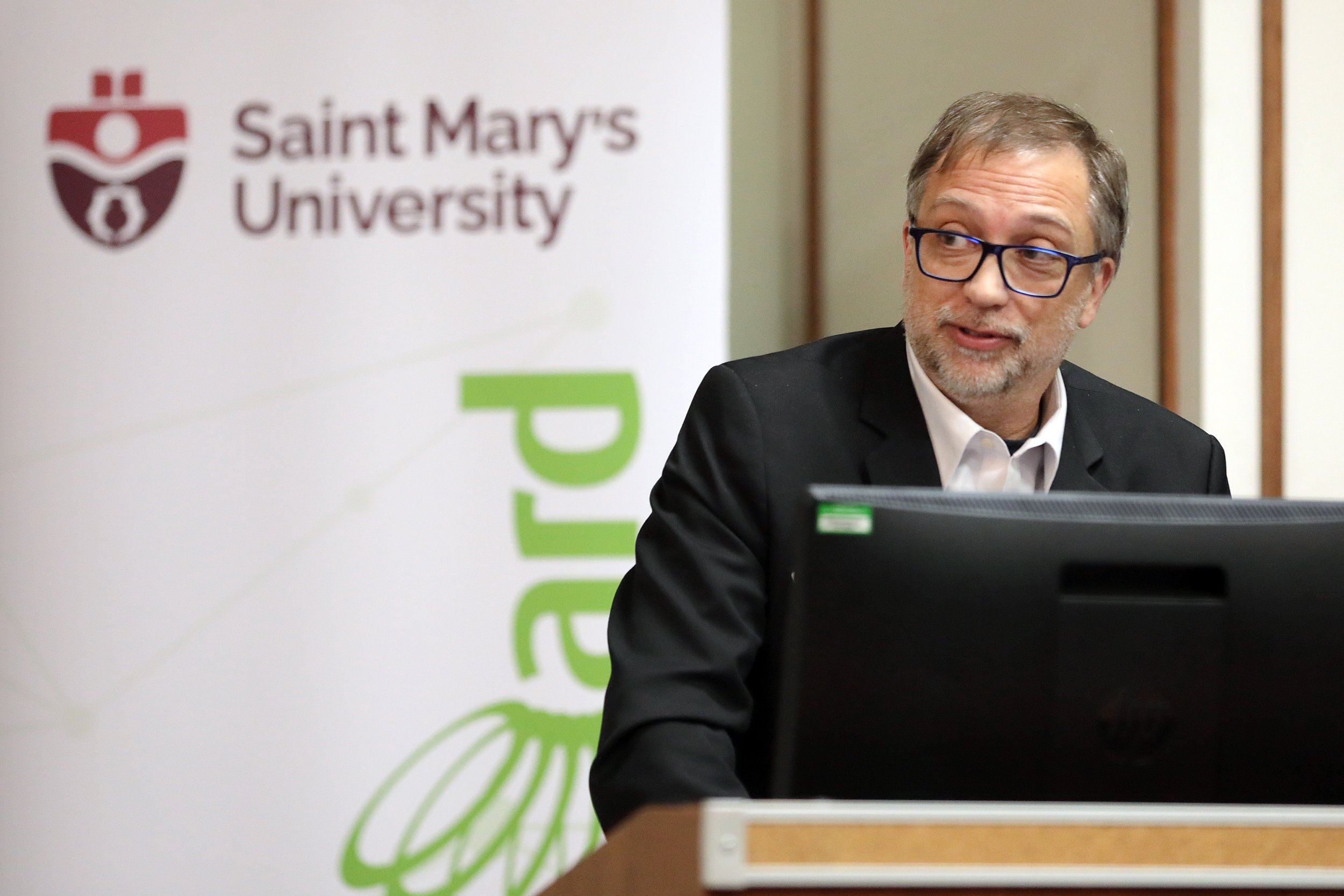
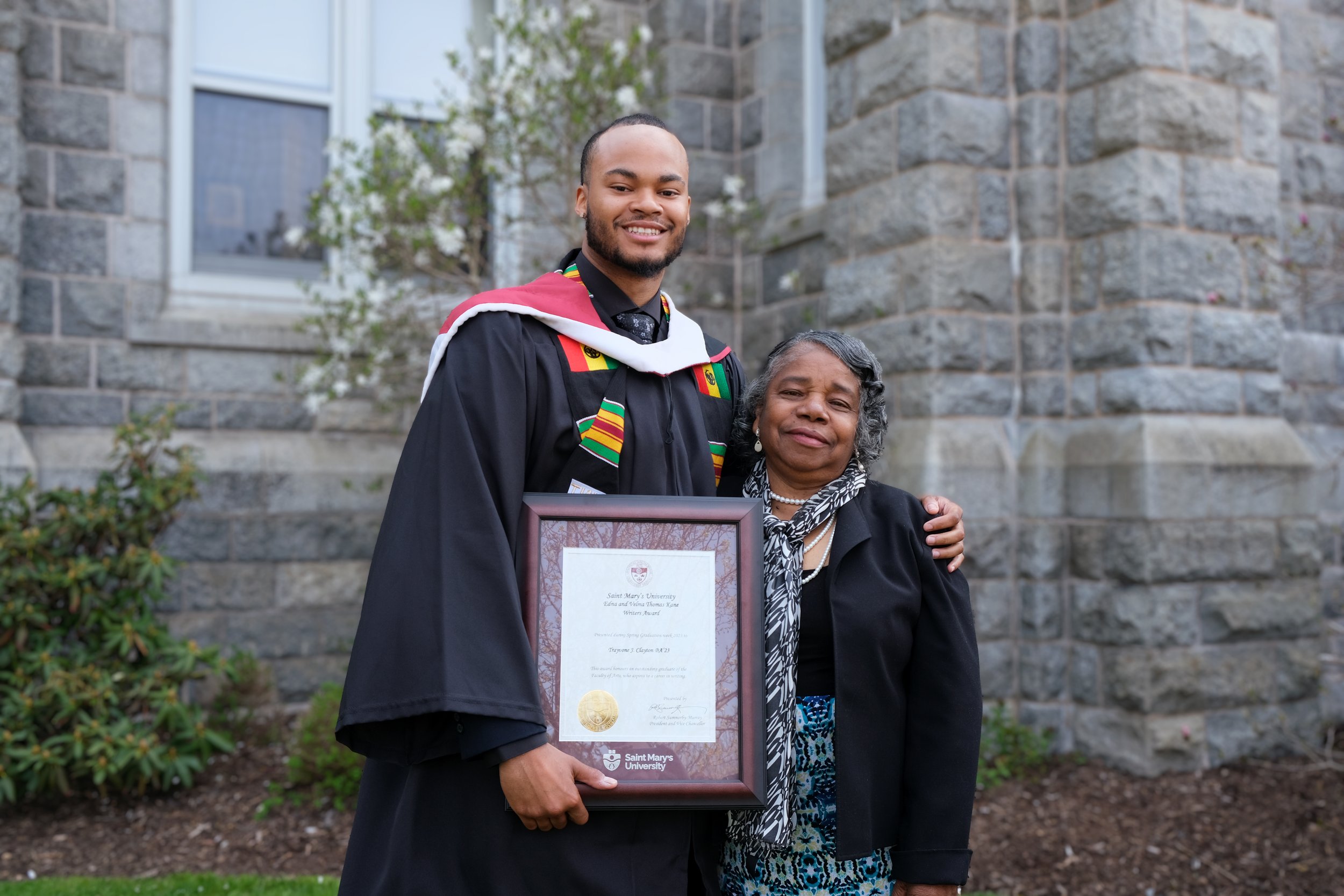

Trayvone Clayton BA’23 is well versed in the power and impact of words as a young leader in his Halifax community of Uniacke Square. During his time as a student at Saint Mary’s University, he also discovered the power of writing as tool for healing, self-reflection and mental health. So it means the world to him to be the first recipient of the university’s new Edna and Velma Thomas Kane Writers Award.
“Writing keeps me balanced,” says Clayton, who carries a notebook around much of the time. “Just writing down daily thoughts and ideas, things that have been on my mind all day. It takes so much pressure off and gets the negative thoughts out of your head. If you ever want to look back, it’s all right there in the book.”
He got a rousing standing ovation upon receiving the inaugural Kane Writers Award during the spring graduation ceremony for the Faculty of Arts. Valued at $30,000, it’s one of the most substantial student awards in the university’s history. Launched in the fall of 2021, it was created through the generosity of donor Floyd Kane BA’92, a writer, filmmaker, lawyer and TV producer from East Preston.
Stephanie Johnson BComm’93 and Edna Kane
Kane’s mother Edna and his cousin Stephanie Johnson BComm’93 (daughter of his late aunt Velma) were on campus to take part in the May 19 award presentation. Kane was away but watched the graduation live stream.
“I’m really proud of my son Floyd,” Edna Kane said after the ceremony. “He went through a lot but he’s a super guy, that’s all I can say. He’s a super son.”
Johnson, a self-described “Husky for life,” added that her cousin is best known for his creative work but his spirit of philanthropy is just as strong. “To be able to give someone in the community this type of opportunity that will help them live their life and pursue their dream, it’s brilliant. So I’m proud to be part of it. It’s a legacy for my mom and my auntie here, and we’re just really proud of Floyd,” she said.
Trayvone Clayton is the first recipient of the Edna and Velma Thomas Kane Writers Award
Clayton hopes to go on to law school for his next chapter, the same path Kane took after Saint Mary’s. A former SMU Huskies basketball player, Clayton majored in Criminology with a minor in Social Justice and Community Studies, themes that reverberate throughout Kane’s hit TV series, Diggstown. Shot largely in Nova Scotia, the legal drama wrapped last year after four seasons. Since then, Kane has been hard at work developing another legal show, shooting two movies and filming a documentary about Black music in Canada.
The two men had a chance to meet each other for the first time on June 2. In many ways, Clayton is the type of student Kane had in mind with his gift to the university, which aims to remove financial barriers to education for African Nova Scotian students.
“I identified with a lot of his story,” Kane said after their lunch meeting on campus. “Although I grew up in the country and he grew up in the city, we both grew up with relatively modest economic means. We both grew up in African Nova Scotian communities where there wouldn’t be a lot of Black men going to university and pursuing post-secondary education, mainly because of economic circumstances.”
Working several jobs to pay his tuition while he was a full-time student, athlete and volunteer, Clayton faced other big hurdles along the way, including learning to live with epilepsy. He was devastated by the 2019 shooting death of his younger cousin Triston Reece, who was also a promising athlete. Processing his grief from that loss prompted Clayton to start carrying the notebook around.
Said Kane: “We talked about loss, the commonalities of experiencing significant losses early in life. I kind of always reverted to fiction. When I try to write something personal, I have a hard time doing anything autobiographical. But telling a story, that’s way easier for me. Writing got me through some tough times.”
Another life-changing experience in 2019 cemented Clayton’s commitment to social change and the movement against anti-Black racism and discrimination. He was in Ottawa attending the National Black Canadians Summit, and his group encountered racial profiling by an employee in the Parliament buildings. That’s when he started speaking out; the incident made national headlines and led to a meeting with Prime Minister Justin Trudeau.
“I guess I always had it in me about doing the right things, and it took off from there,” Clayton says. “With GameChangers902, we’ve built a platform and we’re trying to create opportunities for youth. My whole purpose in wanting to go to law school is to lead by example. I want to build a legacy for other young people. When they see I can do it, they’ll realize they can do it too.”
Clayton in his community of Uniacke Square
Clayton feels a responsibility to be a good role model, coach and mentor. Last December, he helped organize a community Christmas for African Nova Scotian youth, which raised more than $20,000 so that each youngster at the event received a $500 gift card. “It just made me feel like you can do anything you really put your mind to,” he says.
His community work has seen him honoured with other awards, including the 2019 Peace Medal from the YMCA of Greater Halifax/Dartmouth, and two 2019 Nova Scotia Human Rights Awards. The advocacy work gave Clayton the confidence to work hard at his academic studies, “to show people in my community that we belong here, that we do have something to say and that our voice matters.”
Edna and Velma Thomas Kane Writers Award
Students planning to graduate in 2024 have until November 30 to apply for the Edna and Velma Thomas Kane Writers Award. Kane stressed that the term ‘writer’ can mean everything from poetry or screenwriting to wanting to write a master’s thesis.
“This award keeps ‘writing’ broadly defined because writing is the foundation to so many things,” said Kane. “We’re all writers in some way, it’s a key part of what you do and learn in a Bachelor of Arts degree. I had a great time at law school but Saint Mary’s is where my path was first taken. I had amazing professors who gave me the confidence to embrace the power of writing.”





